Winter Term Courses
BIOSTAT512: Analyzing Longitudinal and Clustered Data Using Statistical Software
- Graduate level
- Residential
- Winter term(s) for residential students;
- 3 credit hour(s) for residential students;
- Instructor(s): Wei Hao (Residential);
- Prerequisites: BIOSTAT 501 or 521
- Description: Longitudinal data sets occur often in a Public Health setting. This course will introduce students to methods for analyzing both clustered and longitudinal data using the statistical software packages SAS and Stata. Models for both continuous and discrete (e.g., binary, count) outcomes will be discussed and illustrated. The course will have one session of lecture and one session of lab per week. The course will be driven primarily by using both software packages to analyze real data sets.
- Syllabus for BIOSTAT512

BIOSTAT522: Biostatistical Analysis For Health-related Studies
- Graduate level
- Residential
- Winter term(s) for residential students;
- 3 credit hour(s) for residential students;
- Instructor(s): Gen Li (Residential);
- Prerequisites: BIOSTAT521; PUBHLTH 500
- Advisory Prerequisites: Calculus; R programming
- Description: A second course in applied biostatistical methods and data analysis. Concepts of data analysis and experimental design for health-related studies. Emphasis on categorical data analysis, multiple regression, analysis of variance and covariance.
- Learning Objectives: not applicable
- Syllabus for BIOSTAT522

BIOSTAT602: Biostatistical Inference
- Graduate level
- Residential
- Winter term(s) for residential students;
- 4 credit hour(s) for residential students;
- Instructor(s): Fan Bu (Residential);
- Prerequisites: Biostat 601
- Description: Fundamental theory that is the basis of inferential statistical procedures. Point and interval estimation, sufficient statistics, hypothesis testing, maximum likelihood estimates, confidence intervals, criteria for estimators, methods of constructing test and estimation procedures.
- Syllabus for BIOSTAT602

| Department | Program | Degree | Competency | Specific course(s) that allow assessment | BIOSTAT | MS | Derive the theoretical mathematics of statistical inferences | BIOSTAT602 |
|---|
BIOSTAT610: Readings in Biostatistics
- Graduate level
- Residential
- Fall, Winter term(s) for residential students;
- 1-4 credit hour(s) for residential students;
- Instructor(s): Staff (Residential);
- Prerequisites: One of Biostat 503, Biostat 524, Biostat 553 or Biostat 601/Biostat 602
- Description: Independent study in a special topic under the guidance of a faculty member. May be elected more than once. Enrollment is limited to biostatistics majors.
BIOSTAT612: Grad School And Professional Success Skills
- Graduate level
- Residential
- Winter term(s) for residential students;
- 1 credit hour(s) for residential students;
- Instructor(s): Kelley Kidwell (Residential);
- Prerequisites: None
- Description: This course complements the Biostatistics curriculum in providing more tailored content to succeed as a student, on the job market, and professionally on the job. This discussion includes didactic lectures and activities led by instructors and guest speakers.
- Learning Objectives: Continuation of Biostat 611: Learn skills to survive and thrive as a Biostatistics MS student. Discuss the variety of career opportunities for biostatisticians. Prepare for internship and job opportunities. Learn skills to be a successful professional across a variety of fields.
- Syllabus for BIOSTAT612

BIOSTAT617: Theory and Methods of Sample Design (Soc 717 and Stat 580 and SurvMeth 617)
- Graduate level
- Residential
- Winter term(s) for residential students;
- 3 credit hour(s) for residential students;
- Instructor(s): Trivellore Raghunathan (Residential);
- Prerequisites: Three or more courses in statistics, and preferably a course in methods of survey sampling
- Description: Theory underlying sample designs and estimation procedures commonly used in survey practice.
- This course is cross-listed with Stats 580 Soc 717 SurvMeth617 in the Rackham department.
- Syllabus for BIOSTAT617

BIOSTAT620: Introduction to Health Data Science
- Graduate level
- Residential
- Winter term(s) for residential students;
- 3 credit hour(s) for residential students;
- Instructor(s): Dylan Cable (Residential);
- Prerequisites: BIOSTAT 607, BIOSTAT 601, BIOSTAT 650
- Advisory Prerequisites: No other courses
- Description: This course offers a systematic introduction to the scope and contents of health data arising from public health and the biomedical sciences. It focuses on rules and techniques for handling health data. Through both regular lectures and guest lectures, this course covers a broad range of health data.
- Learning Objectives: (a) To understand the foundation and rules for handling big health data. (b) To develop a practical knowledge and understanding of important statistical issues and relevant data analytics for health big data analysis. (c) To learn and master basic software and programming skills for data cleaning and data processing.
- Syllabus for BIOSTAT620
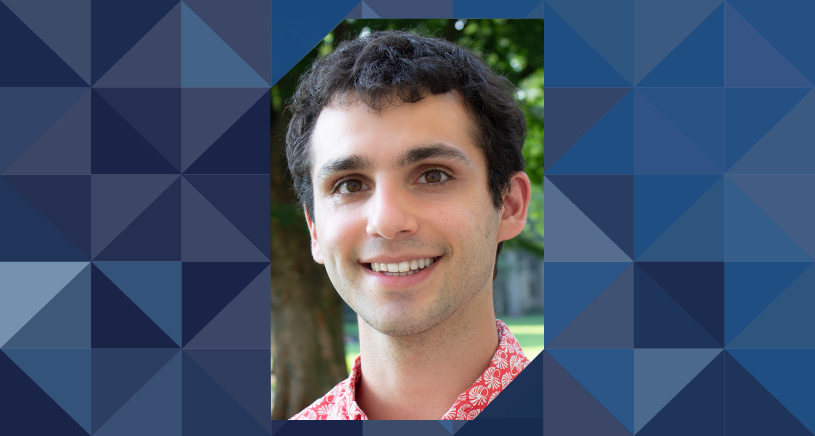
| Department | Program | Degree | Competency | Specific course(s) that allow assessment | BIOSTAT | Health Data Science | MS | Understand the roles and principles when a biostatistician conducts the analysis of biomedical or public health data | BIOSTAT620 | BIOSTAT | Health Data Science | MS | Distinguish among the different measurement scales and data quality, as well as their implications for selection of statistical methods and algorithms to be used based on these distinctions | BIOSTAT620 |
|---|
BIOSTAT626: Machine Learning For Health Sciences
- Graduate level
- Residential
- Winter term(s) for residential students;
- 3 credit hour(s) for residential students;
- Instructor(s): William Wen (Residential);
- Prerequisites: BIOSTAT 601
- Description: This is a 3-credit course introducing modern machine learning algorithms and data analytics for prediction, classification and data pattern recognition, with an emphasis on their applications in health data sciences.
- Learning Objectives: (a) To understand the foundation and rules to use machine learning techniques for handling data from the health sciences (b) To develop practical knowledge and understanding of modern machine learning techniques for health big data analysis. (c) To learn and master basic software and programming skills to apply machine learning algorithms in analyzing data arising from the health sciences.
- Syllabus for BIOSTAT626

BIOSTAT629: Case Studies In Health Big Data
- Graduate level
- Residential
- Winter term(s) for residential students;
- 3 credit hour(s) for residential students;
- Instructor(s): Erin Craig, Nicholas Henderson, (Residential);
- Prerequisites: Biostatistics or Health Data Science students only
- Description: Being a project-based course, it integrates all competencies learned in HDS MS program to provide a culminating research experience. Students will work on two to three health big data projects, through which they learn to identify scientific objectives and analytical strategies and report findings through oral presentation and written documents.
- Learning Objectives: Students will learn how to identify a scientific goal of the project and to develop analytic strategies. Students will learn to integrate and apply quantitative skills to handle real-world health big data, including data modification and cleaning, data visualization and scalable computing. From presentations, students will improve their communication skills.
- Syllabus for BIOSTAT629


| Department | Program | Degree | Competency | Specific course(s) that allow assessment | BIOSTAT | Health Data Science | MS | Apply quantitative techniques commonly used to summarize and display big public health data | BIOSTAT629 | BIOSTAT | Health Data Science | MS | Apply descriptive and inferential methodologies according to the type of study design or sampling technique for answering a particular public health question | BIOSTAT629 |
|---|
BIOSTAT646: High Throughput Molecular Genetic and Epigenetic Data Analysis
- Graduate level
- Residential
- Winter term(s) for residential students;
- 3 credit hour(s) for residential students;
- Instructor(s): Stephen CJ Parker, Alex Tsoi, (Residential);
- Prerequisites: Graduate Standing and STAT400, BIOSTAT522, or BIOSTAT521 or permission of instructor
- Description: The course will cover statistical methods used to analyze data in experimental molecular biology. The course will primarily cover topics relating to gene expression data analysis, but other types of data such as genome sequence and epigenomics data that is sometimes analyzed in concert with expression data will also be covered.
- Syllabus for BIOSTAT646


BIOSTAT651: Theory and Application of Generalized Linear Models
- Graduate level
- Residential
- Winter term(s) for residential students;
- 3 credit hour(s) for residential students;
- Instructor(s): Menggang Yu (Residential);
- Prerequisites: BIOSTAT601 and BIOSTAT650
- Description: Introduction to maximum likelihood estimation; exponential family; proportion, count and rate data; generalized linear models; link function; logistic and Poisson regression; estimation; inference; deviance; diagnosis. The course will include application to real data.
- Syllabus for BIOSTAT651

| Department | Program | Degree | Competency | Specific course(s) that allow assessment | BIOSTAT | MS | Perform generalized linear regression model fitting and diagnosis | BIOSTAT651 | BIOSTAT | PhD | Perform generalized linear regression model fitting and diagnosis | BIOSTAT651 |
|---|
BIOSTAT664: Special Topics in Biostastics
- Graduate level
- Residential
- Winter term(s) for residential students;
- 1-4 credit hour(s) for residential students;
- Instructor(s): Fan Bu (Residential);
- Prerequisites: Permission of instructor
- Description: Master's level seminar designed to provide an extensive review of a number of substantive and methods and skill areas in biostatistics. Readings, discussion, and assignments are organized around issues of mutual interest to faculty and students. Reviews and reports on topics required in the areas selected. May be elected more than once.
- Syllabus for BIOSTAT664

BIOSTAT665: Statistical Population Genetics
- Graduate level
- Residential
- Winter term(s) for residential students;
- 3 credit hour(s) for residential students;
- Instructor(s): Staff (Residential);
- Not offered 2025-2026
- Prerequisites: None
- Description: The first half of the course concentrates on classical population genetics. We introduce topics such as Hardy-Weinberg equilibrium, models of selection for populations of infinite size and population subdivision. The second half of the course focuses on coalescent theory, covering migration, changes in population size and recombination. We provide guidelines how these models can be used in to infer population genetic parameters. Finally, some recent results and methods from the population genetic literature are discussed.
- Syllabus for BIOSTAT665
BIOSTAT666: Statistical Models and Numerical Methods in Human Genetics
- Graduate level
- Residential
- Winter term(s) for residential students;
- 3 credit hour(s) for residential students;
- Instructor(s): Sebastian Zoellner (Residential);
- Prerequisites: Biostat 602 or Perm. Instr.
- Description: Introduction to current statistical methods used in human genetics. Topics will include sampling designs in human genetics, gene frequency estimation, the coalescent method for simulation of DNA sequences, linkage analysis, tests of association, detection of errors in genetic data, and the multi-factorial model. The course will include a simple overview of genetic data and terminology and will proceed with a review of numerical techniques frequently employed in human genetics.
- Syllabus for BIOSTAT666

BIOSTAT675: Survival Time Analysis
- Graduate level
- Residential
- Winter term(s) for residential students;
- 3 credit hour(s) for residential students;
- Instructor(s): Yi Li (Residential);
- Prerequisites: Biostat 602 and Biostat 650
- Description: Concepts and methods for analyzing survival time data obtained from following individuals until occurrence of an event or their loss to follow-up. Survival time models, clinical life tables, survival distributions, mathematical and graphical methods for evaluating goodness of fit, comparison of treatment groups, regression models, proportional hazards models, censoring mechanisms.
- Syllabus for BIOSTAT675

BIOSTAT685: Elements of Nonparametric Statistics
- Graduate level
- Residential
- Winter term(s) for residential students;
- 3 credit hour(s) for residential students;
- Instructor(s): Thomas Braun (Residential);
- Prerequisites: Biostat 602 or STAT 511, and Biostat 650 or Perm. Instr
- Description: First half covers theory and applications of rank and randomization tests: sampling and randomization models, randomization t-test, Wilcoxon rank sum and signed rank tests, Kruskal-Wallis test, asymptotic result under randomization, relative efficiency; second half covers theory and applications of nonparametric regression: smoothing methods, including kernel estimators, local linear regression, smoothing splines, and regression splines, methods for choosing the smoothing parameter, including unbiased risk estimation and cross-validation, introduction to additive models.
- Syllabus for BIOSTAT685

BIOSTAT690: Health Applications of Multivariate Analysis
- Graduate level
- Residential
- Fall, Winter term(s) for residential students;
- 3 credit hour(s) for residential students;
- Instructor(s): Staff (Residential);
- Not offered 2025-2026
- Prerequisites: Biostat 650 and Biostat 651 and Math 417 or Perm. Instr.
- Description: Techniques of multivariate analysis related to health and biomedical problems. Emphasis on computational techniques and programs with health examples. Tests of significance for one, two or more populations; general linear model; multivariate analyses of variances and covariances; correlation procedures; principal components and discriminant analyses.
- Syllabus for BIOSTAT690
BIOSTAT695: Analysis Of Categorical Data
- Graduate level
- Residential
- Winter term(s) for residential students;
- 3 credit hour(s) for residential students;
- Instructor(s): Timothy Johnson (Residential);
- Prerequisites: Biostat 602, 650. Biostat 651 corequisite
- Description: Regression models for the analysis of categorical data: logistic, probit and complementary log-log models for binomial random variables; log-linear models for cross-classifications of counts; regression models for Poisson rates; and multinomial response models for both nominal and ordinal responses. Model specification and interpretation are emphasized, and model criticism, model selection.
- Syllabus for BIOSTAT695

BIOSTAT696: Spatial Statistics
- Graduate level
- Residential
- Winter term(s) for residential students;
- 3 credit hour(s) for residential students;
- Instructor(s): Michele Peruzzi (Residential);
- Prerequisites: BIOSTAT 601, BIOSTAT 602, BIOSTAT 650, BIOSTAT 653
- Description: This course will introduce the theory and methods of spatial and spatio-temporal statistics. It will present spatial and spatio-temporal statistical models and will discuss methods for inference on spatial processes within a geostatistical and a hierarchical Bayesian framework.
- Syllabus for BIOSTAT696

BIOSTAT699: Analysis of Biostatistical Investigations
- Graduate level
- Residential
- Winter term(s) for residential students;
- 4 credit hour(s) for residential students;
- Instructor(s): Menggang Yu, Jean Morrison, Jeremy Taylor, Philip Boonstra, (Residential);
- Prerequisites: Registration for last term of studies to complete MS or MPH
- Description: Identifying and solving design and data analysis problems using a wide range of biostatistical methods. Written and oral reports on intermediate and final results of case studies required.
- Syllabus for BIOSTAT699




| Department | Program | Degree | Competency | Specific course(s) that allow assessment | BIOSTAT | MS | Interpret the results of statistical analysis in a variety of health-related areas (e.g. public health, medicine, genetics, biology, psychology, economics, management and policy, nursing, or pharmacy) for the broad scientific community | BIOSTAT699 | BIOSTAT | MS | Communicate statistical analysis through written scientific reporting for public health, medical, and basic scientists, and/or educated lay audiences | BIOSTAT699 | BIOSTAT | PhD | Communicate through written and oral presentation based on statistical analysis for audience from a variety of health-related areas (e.g. public health, medicine, genetics, biology, psychology, nursing, or pharmacy) and for the broad scientific community | BIOSTAT699 |
|---|
BIOSTAT800: Seminar in Biostatistics
- Graduate level
- Residential
- Fall, Winter term(s) for residential students;
- 0.5 credit hour(s) for residential students;
- Instructor(s): Bingkai Wang, Dylan Cable, (Residential);
- Prerequisites: Graduate level Biostatistics students only
- Description: Presentations and discussions of current consulting and research problems. Enrollment limited to biostatistics majors. Students must attend 2/3 of all seminars offered during the semester to receive credit. Maximum credit is 0.5 per semester. No more than 1 credit total allowed. May only be taken a maximum of 2 semesters.


BIOSTAT802: Advanced Inference Ii
- Graduate level
- Residential
- Winter term(s) for residential students;
- 3 credit hour(s) for residential students;
- Instructor(s): Alexander Tsodikov (Residential);
- Prerequisites: Biostat 601, Biostat 602, and MATH 451 or equivalent
- Description: This sequence covers advanced topics in probability theory, theory of point estimation, theory of hypothesis testing, and related large sample theory.
- Syllabus for BIOSTAT802

| Department | Program | Degree | Competency | Specific course(s) that allow assessment | BIOSTAT | PhD | Derive the advanced theoretical mathematics of statistical inferences | BIOSTAT802 |
|---|
BIOSTAT815: Advanced Topics in Computational Statistics
- Graduate level
- Residential
- Winter term(s) for residential students;
- 3 credit hour(s) for residential students;
- Instructor(s): Michele Peruzzi (Residential);
- Prerequisites: BIOSTAT601, BIOSTAT602 and BIOSTAT615 or equiv and proficiency in C++ and R
- Description: Modern numerical analysis for statisticians. Combination of theory and practical computational examples illustrating the current trends in numerical analysis relevant to probability and statistics. Topics choose from numerical linear algebra, optimization theory, quadrature methods, splines, and Markov chains. Emphasis on newer techniques such as quasi-random methods of integration, the EM algorithm and its variants, and hidden Markov chains. Applications as time permits to areas such as genetic and medical imaging.
- Syllabus for BIOSTAT815

BIOSTAT820: Readings in Biostatistics
- Graduate level
- Residential
- Fall, Winter, Spring-Summer term(s) for residential students;
- 1-4 credit hour(s) for residential students;
- Instructor(s): Staff (Residential);
- Prerequisites: None
- Description: Students assigned special topics for literature study under guidance of individual faculty members. May be elected more than once. Enrollment limited to biostatistics majors.
BIOSTAT834: Pedagogical Methods For Biostatistics Courses
- Graduate level
- Residential
- Winter term(s) for residential students;
- 2 credit hour(s) for residential students;
- Instructor(s): Matt Zawistowski (Residential);
- Prerequisites: None
- Advisory Prerequisites: Biostatistics PhD Candidacy or permission of instructor
- Description: Biostatistics faculty teach a wide range of courses over diverse student backgrounds, presenting distinct challenges and considerations. This course will develop ideas and skills for building biostatistics courses tailored for specific student groups and course levels. It will prepare PhD students for their first teaching assignment in a faculty position.
- Learning Objectives: 1. Understand how the audience of a specific course impacts course design, content and learning objectives. 2. Implement the concepts of the Guidelines for Assessment and Instruction in Statistics Education (GAISE) College Report into course planning. 3. Become familiar with technology resources to increase active learning techniques (e.g. Poll Everywhere) and improve course management (Canvas). 4. Develop teaching skills that transcend biostatistics: inclusive teaching practices, mentoring and conflict resolution.

BIOSTAT840: Advanced Topics in Data Analysis
- Graduate level
- Residential
- Fall, Winter, Spring-Summer term(s) for residential students;
- 3 credit hour(s) for residential students;
- Instructor(s): Staff (Residential);
- Not offered 2025-2026
- Prerequisites: Biostat 650 and Biostat 651
- Description: Alternate methods of data analysis useful when data do not fulfill unusual assumptions of statistical tests. Using articles from the literature, students learn methods of data analysis more robust than usual methods and how to choose among them. Focuses on comparison of groups, ANOVA and regression.
BIOSTAT845: Advanced Topics in Times Series Analysis
- Graduate level
- Residential
- Winter term(s) for residential students;
- 3 credit hour(s) for residential students;
- Instructor(s): Staff (Residential);
- Not offered 2025-2026
- Prerequisites: Biostat 645, Stat 531 or Perm. Instr.
- Description: Advanced theory of stationary univariate and multivariate time series. Additional advanced topics such as analysis of non-stationary, non-linear, and/or categorical time series; time-frequency analysis; and statistical methods based on the wavelet transform or related transforms. Application of methods to time series data sets from health research.
BIOSTAT850: Research in Biostatistics
- Graduate level
- Residential
- Winter, Spring-Summer term(s) for residential students;
- 2-4 credit hour(s) for residential students;
- Instructor(s):
- Not offered 2025-2026
- Prerequisites: None
- Description: Research on selected topics involving the application of statistical methods to health problems. May be elected more than once. Enrollment limited to biostatistics majors.
BIOSTAT865: Advanced Statistical Population Genetics
- Graduate level
- Residential
- Winter term(s) for residential students;
- 3 credit hour(s) for residential students;
- Instructor(s): Sebastian Zoellner (Residential);
- Not offered 2025-2026
- Prerequisites: None
- Description: It is an exciting time for research in population genetics. Technological advances are making it increasingly possible to obtain large numbers of genotypes from individuals in a population, and theoretical and algorithmic advances are improving the prospects for obtaining detailed inferences about populations and their evolutionary history. To make use of these dramatic advances in the field, it is important to understand the processes that act on populations and affect the properties of the genotypes that will eventually be drawn from these populations. In this course, by learning the mathematical models used in population genetics, students will learn how various population-genetic phenomena influence the properties of genetic variation. Students will also gain an understanding of the statistical methods used for analysis of population-genetic data. The course is split into two major sections. The first section covers classical population genetics, including subjects first introduced by RA Fisher and S Wright. We cover Hardy-Weinberg equilibrium, natural selection in infinite and finite populations, stochastic effects in finite populations (drift), recombination and linkage disequilibrium, and admixture and population subdivision. Moreover, we cover the most commonly used models of mutation, such as the infinite sites model and the infinite alleles model. The goal of this section is to give students a broad understanding of the statistical principles underlying population genetics and to provide a connection between these classical results and modern challenges in statistical genetics. In the second section of the course we cover coalescent theory. We introduce the basic coalescent model for constant Wright-Fisher populations. We then introduce commonly used extensions of this model to scenarios with recombination, population expansion and population subdivision. We introduce methods of parameter inference based on these models, including both simple method-of-moments estimates as well as more sophisticated Monte-Carlo based estimation methods. The goal of this section is to give students the ability to design realistic simulation algorithms and perform population genetic inference. Classes on population structure and population admixture (~4) will be taught by Noah Rosenberg. In the biweekly homeworks, we expect the students to be able to apply and extend the presented theory. Early in the course, each student will select a topic for a project; the student is expected to work on this project throughout the semester and to give at the end of the semester a written project report and a 20-minute presentation on the results of his analysis. Typical projects are " Simulate a model of rare variants under mutation-selection balance and estimate power for rare variants testing methods. " Calculate the contribution of low frequency variants to heritability in structured populations " Perform a principal components analysis on genetic data " Explore recent resequencing data for signs of natural selection.
- Learning Objectives: See course description

BIOSTAT866: Advanced Topics in Genetic Modeling
- Graduate level
- Residential
- Winter term(s) for residential students;
- 3 credit hour(s) for residential students;
- Instructor(s): Hyun Min Kang (Residential);
- Not offered 2025-2026
- Prerequisites: Biostat 601, Biostat 602, Biostat 666 or Perm. Instr.
- Description: Advanced topics in quantitative genetics with emphasis on models for gene mapping, pedigree analysis, reconstruction of evolutionary trees, and molecular genetics experiments, computational mathematics, and statistical techniques such as Chen-Stein Poisson approximations, hidden Markov chains, and the EM algorithm introduced as needed.
- Syllabus for BIOSTAT866

BIOSTAT870: Analysis of Repeated Measurements
- Graduate level
- Residential
- Winter term(s) for residential students;
- 3 credit hour(s) for residential students;
- Instructor(s): Peisong Han (Residential);
- Not offered 2025-2026
- Prerequisites: Math 417, Biostat 602, Biostat 651 and one of Biostat 690, Biostat 851, or Biostat 890
- Description: Mixed model analysis of variance; multivariate profile analysis; linear mixed effects models with unbalanced designs, time-varying covariates, and structured covariance matrices; maximum likelihood (ML), restricted maximum likelihood (REML), and Bayes estimation and inference; nonlinear mixed effects models.
- Syllabus for BIOSTAT870

BIOSTAT881: Topics In Advanced Causal Inference
- Graduate level
- Residential
- Winter term(s) for residential students;
- 3 credit hour(s) for residential students;
- Instructor(s): Jean Morrison (Residential);
- Prerequisites: BIOSTAT 601, BIOSTAT 602, BIOSTAT 650, BIOSTAT 651, BIOSTAT 653, BIOSTAT 801, and BIOSTAT 802 (concurrent also accepted).
- Description: This course covers statistical theory and methodology for drawing causal conclusions from observational and experimental data. We will cover theoretical foundations including DAGs and SEMs, followed by special topics, which may include instrumental variable analysis, causal inference in high dimensions, and causal inference with longitudinal data.
- Learning Objectives: At the end of the course the students will be able to: 1. Translate a scientific question into a causal contrast to be estimated. 2. Derive graphical models for investigating the conditions under which the causal contrasts of interest are identified from data collected under specific study designs. 3. Formulate adequate structural models for making inference about the causal contrasts of interest. 4. Implement simulations appropriate for investigating the properties of causal estimators.
- Syllabus for BIOSTAT881

BIOSTAT882: Advanced Bayesian Inference
- Graduate level
- Residential
- Winter term(s) for residential students;
- 3 credit hour(s) for residential students;
- Instructor(s): Timothy Johnson (Residential);
- Prerequisites: N/A
- Advisory Prerequisites: Biostatistics 682 or an equivalent course covering the basic Bayesian methods and theory. Previous experience in programming in R or C/C++ is required.
- Description: This course focuses on advanced Bayesian theory and nonparametric Bayes methods including Gaussian processes, Dirichlet processes, deep neural networks, variable selection, and shrinkage priors, along with modern posterior computation algorithms including gradient based Markov chain Monte Carlo and variational Bayesian methods.
- Learning Objectives: This course focuses on the advanced Bayesian inference methods including modeling, theory and computation. The target audience is the PhD candidates in Biostatistics who are interested in working on their research topics related to Bayesian statistics. R and C++ will be used for illustrations and practices.
- Syllabus for BIOSTAT882

BIOSTAT890: Multivariate Statistical Models (Stat 640)
- Graduate level
- Residential
- Winter term(s) for residential students;
- 3 credit hour(s) for residential students;
- Instructor(s): Staff (Residential);
- Not offered 2025-2026
- Prerequisites: Math 417 and either Stat 511 or Biostat 602 and Perm. Instr.
- Description: Derivation of multivariate techniques: multivariate estimation, T, criteria for testing linear hypothesis, test for additional information, testing covariance matrices, factor analysis, growth curves and elementary time series.
- Syllabus for BIOSTAT890
BIOSTAT896: Spatial Statistics
- Graduate level
- Residential
- Winter term(s) for residential students;
- 3 credit hour(s) for residential students;
- Instructor(s): Michele Peruzzi (Residential);
- Prerequisites: BIOSTAT 601, BIOSTAT 602, BIOSTAT 650, BIOSTAT 653
- Description: This course will introduce the theory and methods of spatial and spatio-temporal statistics. It will present spatial and spatio-temporal statistical models and will discuss methods for inference on spatial processes within a geostatistical and a hierarchical Bayesian framework.
- Syllabus for BIOSTAT896

BIOSTAT990: Dissertation/Pre-Candidacy
- Graduate level
- Residential
- Fall, Winter, Spring-Summer term(s) for residential students;
- 1-8 credit hour(s) for residential students;
- Instructor(s): Staff (Residential);
- Prerequisites: (1-8 Full term, 1-4 Half term)
- Description: Election for dissertation work by doctoral student not yet admitted to status as a candidate.
BIOSTAT995: Dissertation Research for Doctorate in Philosophy
- Graduate level
- Residential
- Fall, Winter, Spring-Summer term(s) for residential students;
- 1-8 credit hour(s) for residential students;
- Instructor(s): Staff (Residential);
- Prerequisites: Admission to Doctoral Program(1-8 Full term, 1-4 Half term)
- Description: Election for dissertation work by doctoral student who has been admitted to status as a candidate.
EHS576: Biological Agents
- Graduate level
- Residential
- Winter term(s) for residential students;
- 2 credit hour(s) for residential students;
- Instructor(s): Chuanwu Xi (Residential);
- Last offered Winter 2023
- Prerequisites: Biology, Chem, Grad Standing or Perm. Instr.
- Undergraduates are allowed to enroll in this course.
- Description: Biological agents in the environment that have a substantial impact on human health.
- Syllabus for EHS576

EHS578: Practical Projects
- Graduate level
- Residential
- Fall, Winter, Spring, Spring-Summer, Summer term(s) for residential students;
- 1-4 credit hour(s) for residential students;
- Instructor(s): Staff (Residential);
- Prerequisites: None
- Description: Practical Projects in the application of theory and principles of Environmental Health Sciences in public health settings. Course requirements include an approved practical work experience related to Environmental Health Sciences in consultation with a faculty advisor. May be elected more than once. Enrollment limited to Environmental Health Sciences majors with at least two full terms of prior registration.
EHS582: Principles of Community Air Pollution
- Graduate level
- Residential
- Winter term(s) for residential students;
- 3 credit hour(s) for residential students;
- Instructor(s): Tim Dvonch (Residential);
- Not offered 2025-2026
- Prerequisites: None
- Description: Discussion of economic, nuisance, and health aspects, emphasizing sources, causes, effects, control measures, and the organization and administration of community control programs.

| Department | Program | Degree | Competency | Specific course(s) that allow assessment | EHS | Environmental Quality, Sustainability, and Health | MPH | Evaluate environmental quality and health, including environmental standards on air and water quality, and their effects on individual, community and global health | EHS582, EHS570 |
|---|
EHS588: Environmental Law (SNRE 475)
- Graduate level
- Residential
- Winter term(s) for residential students;
- 3 credit hour(s) for residential students;
- Instructor(s): Staff (Residential);
- Offered Every winter semester
- Last offered Winter 2024
- Prerequisites: None
- Description: Introduces students to Environmental Law and the impact of the legal process on decisions that affect the environment. Topics include common law tort actions, toxic tort actions, statutory controls of pollution and other environmentally harmful activities. Additional areas include administrative agency structure and performance, Constitutional rights to environmental quality and more.
EHS594: Global Environment And Health
- Graduate level
- Both Residential and Online MPH
- This is a second year course for Online students
- Winter, Spring-Summer term(s) for residential students; Winter term(s) for online MPH students;
- 2 credit hour(s) for residential students; 2 credit hour(s) for online MPH students;
- Instructor(s): Stuart Batterman (Residential); Stuart Batterman, Stuart Batterman, (Online MPH);
- Prerequisites: Successful completion of PUBHLTH 514 or PUBHLTH 501, or permission of instructor
- Description: Minimize environmental risks, and promote health and sustainability. This course introduces the sources, transport and fate processes, and risks associated with pollutants in air, water and soil, describes sampling and assessment techniques, and presents mechanisms for management, including legal and regulatory approaches, markets and partnerships, and technological innovations.
- Learning Objectives: 1. Describe characteristics of pollutants and pollutant sources in all environmental media, including ambient air, indoor air, surface water, groundwater and soil, that are essential to understanding the potential for pollutant exposure and toxicity. 2. Obtain and analyze relevant data pertinent to environmental pollutant transport and fate, cross-media transfer, bioaccumulation, multimedia exposure pathways, and human exposure. 3. Describe and utilize concepts, terminology and models for mass balance approaches used in environmental modeling and assessments. 4. Specify monitoring needs, sampling approaches, and data quality objectives needed to characterize contaminants in air, water and soil 5. Obtain, describe and use standards and guidelines that pertain to exposure and risk-based limits for pollutants in air, water and soil. 6. Describe the rationale and assess the feasibility, applicability and performance of alternative management approaches to controlling environmental pollutants and promoting environmental health. 7. Utilize and interpret results of selected models that describe pollutant sources, transport and fate processes, and human exposure and risk, including the use of spreadsheet tools for modeling and data management.
- Syllabus for EHS594

EHS596: Climate, Justice, Health & Sustainability
- Graduate level
- Online MPH only
- This is a second year course for Online students
- Winter term(s) for online MPH students;
- 2 credit hour(s) for online MPH students;
- Instructor(s): Simone Charles, Simone Charles, Marie O'Neill, Marie O'Neill, (Online MPH);
- Prerequisites: Successful completion of PUBHLTH 514 or PUBHLTH 501 or permission of instructor
- Description: Effective climate action that simultaneously acts to reduce inequalities must focus on climate justice if climate action is to result in resilient communities. We will focus on the science of climate change and health impacts through the lens of climate justice and environmental justice (EJ) for disproportionately impacted communities.
- Learning Objectives: Learning objectives for this course are: a. Explain key features of the phenomenon of climate change (and the associated climate justice) including major drivers, time course, uncertainties, impact and distribution of associated risks b. Describe the major health-relevant exposures, specific to disparate communities, that are sensitive to climate change c. Describe the major anticipated health effects associated with exposures to disparate communities affected by climate change d. Discuss the health impacts of climate change specific to vulnerable populations e. Explain important tools used for assessing vulnerability of disparate communities to climate change impacts f. Discuss prevention, adaptation, and mitigation actions, with considerations of climate justice, to prevent and control anticipated exposures due to climate change g. Evaluate policy options for climate change resilience, mitigation and adaptation at the global, national, institutional and individual scales h. Discuss public health responses to anticipated climate change-related health outcomes in disparate communities


EHS597: Environmental Health And Policy
- Graduate level
- Online MPH only
- This is a first year course for Online students
- Winter term(s) for online MPH students;
- 2 credit hour(s) for online MPH students;
- Instructor(s): Tim Dvonch, Tim Dvonch, (Online MPH);
- Offered Every winter semester
- Last offered Winter 2024
- Prerequisites: Successful completion of PUBHLTH 514 or PUBHLTH 501 or permission of instructor
- Advisory Prerequisites: None
- Undergraduates are allowed to enroll in this course.
- Description: This course will provide the knowledge and skills necessary to assess policies and their impact on environmental health and sustainability issues, and understand the role that governmental and organizational bodies play in the development, implementation, and oversight of these policies.
- Learning Objectives: The students taking this class are expected to be able to: 1) Analyze environmental health policies, considering stakeholder engagement and the role of state, federal, and international agencies; 2) Understand the role of bodies and agencies in environmental health policies at local, state, federal, and international levels; 3) Evaluate policies for their impact on public health and health equity; 4) Recognize the challenges to successful development and implementation of environmental health policies.

EHS603: Occupational and Environmental Disease
- Graduate level
- Residential
- Winter term(s) for residential students;
- 3 credit hour(s) for residential students;
- Instructor(s): Laurie Svoboda (Residential);
- Offered Every winter semester
- Last offered Winter 2024
- Prerequisites: None
- Undergraduates are allowed to enroll in this course.
- Description: This course will focus on selected topics in occupational and environmental disease, including an understanding of causation and assessing the scientific literature. The goal will be to cover major toxins/exposures and also key organ systems and/or disease categories, reviewing conditions of historical significance as well as current relevance, all within the concepts and contexts of occupational and environmental epidemiology. Major health effects and disease categories to be covered include: lung diseases related to asbestos and other pneumoconiotic dusts; immunologic lung diseases such as asthma and hypersensitivity pneumonitis; illness caused by organic solvents and persistent organics; pesticide related diseases; occupational skin disease; occupational hearing loss; occupational infectious diseases; illness caused by metals such as lead, mercury, arsenic, and cadmium; environmental and occupational carcinogens; health effects of ionizing radiation including radon; health issues related to outdoor air pollution and indoor air quality including building related illness and mold; health effects of shift work and the built environment; issues of reproductive health; disparities in occupational and environmental health; and other selected topics.
- Syllabus for EHS603

| Department | Program | Degree | Competency | Specific course(s) that allow assessment | EHS | Environmental Health Promotion and Policy | MPH | Recognize adverse health consequences of common environmental and occupational exposures | EHS603 | EHS | Environmental Health Sciences | MPH | Recognize adverse health consequences of common environmental and occupational exposures to chemical, physical, and biological hazards | EHS603 | EHS | Environmental Health Sciences | MS | Recognize adverse health consequences of common environmental and occupational exposures to chemical, physical, and biological hazards | EHS603 | EHS | Industrial Hygiene | MS | Explain the physiological, toxicological, and/or biomechanical interactions of physical, chemical, biological, mechanical, and ergonomic agents, factors, and/or stressors found in the workplace with the human body | EHS603, EHS556, EHS602 |
|---|
EHS608: Occupational and Environmental Epidemiology
- Graduate level
- Residential
- Winter term(s) for residential students;
- 3 credit hour(s) for residential students;
- Instructor(s): Alexis Handal (Residential);
- Offered Every winter semester
- Last offered Winter 2024
- Prerequisites: None
- Description: Introduces topics in environmental and occupational epidemiology, methods to evaluate health effects of exposures in environment and workplace, and policy and public health applications. Lectures cover key environmental and occupational epidemiology research; student-led discussions critique current literature. Students learn about scope, limitations, applications and future of environmental and occupational epidemiology.
- This course is cross-listed with EPID 608 in the Epidemiology department.
- Syllabus for EHS608

EHS614: Water and Global Health
- Graduate level
- Residential
- Winter term(s) for residential students;
- 2 credit hour(s) for residential students;
- Instructor(s): Chuanwu Xi (Residential);
- Last offered Winter 2021
- Not offered 2025-2026
- Prerequisites: None
- Description: Poor water quality, insufficient quantity and inadequate access to water are among the most serious threats to human health worldwide. This course analyzes the historical and contemporary roles that water plays on global health. Key drivers that affect water quality and quantity (with linkages to human health impacts) are investigated, including agriculture, climate change, population growth and urbanization, natural resources, international trade, and regional conflicts. Both theoretical and practical methods are used to examine real world cases. A systems framework is used to develop sustainable and appropriate solutions that consider individual, social, technological, and institutional factors.
- Learning Objectives: L1 - the historical role of water in shaping the growth and development of humans and societies L2 - similarities and differences of human health and disease issues across the world (e.g., developed versus developing nations, region X versus region Y) that are water-related L3 - how key drivers (e.g., population growth, agriculture, international trade, biodiversity, resource exploitation) exacerbate water supply, security, sanitation and waste L4 - the key biological, chemical, and physical stressors in water systems around the world L5 - systems approaches and how these may be used to tackle complex environmental health issues L6 -the roles of individuals, scientists, organizations (non-governmental, governmental), and nations in the management and sustainability of water resources L7 - sustainable solutions and evaluative schemes/metrics to 'water and global health' at the individual-, technological-, and institutional-levels

EHS616: Introduction to Toxicological Pathology
- Graduate level
- Residential
- Winter term(s) for residential students;
- 2 credit hour(s) for residential students;
- Instructor(s): Ingrid Bergin (Residential);
- Offered Every other year (next offering: Winter 2025)
- Last offered Fall 2022
- Prerequisites: Physiology and EHS 511 or equivalent.
- Description: This course will provide and introduction to the histologic damage produced by chemical toxicants. A combination of lectures, student-led discussions and slide-reading sessions will be used to integrate concepts of toxicological mechanism, physiology and pathologic outcome. Emphasis will be place on molecular methods and mechanisms used for the diagnosis and investigative toxicological pathology. The pathology associated with chemicals that damage the major organ systems of humans and mammals will be discussed. During the two credit hours of didactic class presentations student will lead discussions on the pathologic effects of chemicals on cells, tissues and organs and the pathophysiologic outcome. This course is intended for advanced graduate students in the life sciences.
- Syllabus for EHS616
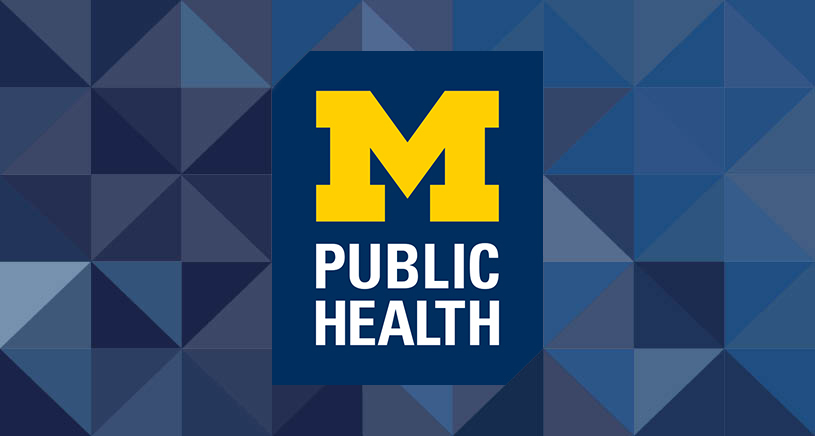
| Department | Program | Degree | Competency | Specific course(s) that allow assessment | EHS | Toxicology | MS | Explain how molecular mechanisms, biological processes, and chemical reactivity influence possible toxicant targets at the molecular, cellular, organ, and physiological level | EHS616 |
|---|
EHS651: Occupational Health, Safety And Environmental Program Management
- Graduate level
- Residential
- Winter term(s) for residential students;
- 3 credit hour(s) for residential students;
- Instructor(s): Jan Lach, Richard Neitzel, Simone Charles, (Residential);
- Offered Every other year (next offering: Winter 2025)
- Last offered Winter 2023
- Prerequisites: None
- Advisory Prerequisites: None
- Description: This course introduces students to the breadth of functions and activities routinely performed by OHSE managers. Topics include: OHSE organization structure, management systems, program content, metrics, budgeting, risk management, incident investigation, emergency preparedness and response, regulatory compliance, legal systems, health and safety culture, and prevention through design processes.
- Learning Objectives: Students will gain a fundamental understanding of: (1) How OHSE programs are typically organized, the roles and responsibilities of OHSE managers, and expectations of other OHSE stakeholders in the organization. (2) Challenges associated with managing personnel and processes, including dealing with ethical issues, setting goals and measuring performance, hiring and training professionals, and managing consultants. (3) Financial aspects of program management, such as risk management and insurance, budgeting, workers compensation, and legal liability for both corporate activities and products. (4) Incident investigation and management, as well as emergency planning and response management. (5) Regulatory rulemaking, inspections, and compliance management processes.
- Syllabus for EHS651



| Department | Program | Degree | Competency | Specific course(s) that allow assessment | EHS | Industrial Hygiene | MPH | Describe the relevance of business and managerial practices to workplace health and safety | EHS651 |
|---|
EHS653: Environmental Sampling And Analysis Laboratory
- Graduate level
- Both Residential and OJOC
- Winter term(s) for OJOC and residential students;
- 1-3 credit hour(s) for OJOC and residential students;
- Instructor(s): Katherine Manz
- Offered Every winter semester
- Last offered Winter 2024
- Prerequisites: EHS 652 or permission of instructor
- Description: This course explores environmental physical, chemical and biological contaminant exposure assessment for regulatory compliance and epidemiologic risk estimation for public health. It focuses on theory, equipment use, instrumentation, methodologies, and strategies used for measuring and analyzing environmental contaminants, including chemical, physical and biological agents. Emphasis is placed on air monitoring, dermal, surface, noise, soil, water, and wastewater contaminant sampling and data analysis.
- Syllabus for EHS653

EHS654: Control Of Occupational Hazardous Exposures
- Graduate level
- Residential
- Winter term(s) for residential students;
- 2-3 credit hour(s) for residential students;
- Instructor(s): Richard Neitzel (Residential);
- Offered Every other winter (next offering: Winter 2026)
- Last offered Winter 2024
- Prerequisites: Grad status
- Description: This graduate course focuses on controlling workplace hazards using the hierarchy of controls. Students will learn to evaluate and recommend engineering, administrative, and personal protective controls. An optional third credit covers advanced ventilation, including local exhaust ventilation (LEV), for source control in occupational settings.
- Learning Objectives: 2-credit course: After this course, students will be able to: 1. Understand exposure and hazard banding strategies for workplace exposure scenarios 2. Name Federal and State regulation authorities and requirements related to human exposures 3. Describe the criteria for selecting chemical or biological protective clothing 4. Describe criteria for selecting protective equipment for physical agents such as noise 5. List the elements and evaluation of a comprehensive respiratory protection program 6. Recall effective hazard communication strategies in the workplace 3-credit course: After this course, students will additionally be able to: 7. Compute exposure estimates for indoor air quality assuming well-mixed room models 8. Describe HVAC components used for indoor air quality and infection control 9. Assess the airflow characteristics of a ventilation system and apply this data for system diagnostics 10. Select the appropriate type of local exhaust hood for controlling workplace exposures 11. Calculate basic ventilation estimates typically needed in workplaces
- Syllabus for EHS654

| Department | Program | Degree | Competency | Specific course(s) that allow assessment | EHS | Industrial Hygiene | MPH | Recommend and evaluate engineering, administrative, and personal protective controls and/or other interventions to reduce or eliminate workplace hazards | EHS654 |
|---|
EHS655: Human Exposure Analysis
- Graduate level
- Residential
- Winter term(s) for residential students;
- 3 credit hour(s) for residential students;
- Instructor(s): Richard Neitzel (Residential);
- Offered Every winter semester (next offering: Winter 2025)
- Last offered Winter 2024
- Prerequisites: Graduate standing
- Description: Students taking this course will learn how to conduct statistical analyses of human exposures, and will apply these skills to a dataset containing exposure and health outcome data. They will also develop skills for understanding, interpreting, and communicating exposure information and for identifying and communicating evidence-based risk management recommendations.
- Syllabus for EHS655

EHS657: Advanced Exposure Assessment
- Graduate level
- Residential
- Winter term(s) for residential students;
- 3 credit hour(s) for residential students;
- Instructor(s): John Meeker (Residential);
- Last offered Winter 2020
- Not offered 2025-2026
- Prerequisites: EHS507, BIOSTAT503/equivalent, EPID503/equivalent
- Description: The course will introduce classical, contemporary, and cutting-edge approaches to the estimation of human exposure to environmental and occupational agents as it relates to epidemiology studies as well as risk science, regulatory compliance, exposure source/route apportionment, and susceptibility factors. Qualitative and quantitative methods in exposure science will be covered, including surrogate measures, exposure modeling, and biological markers of exposure, in addition to statistical concepts such as exposure measurement error and efficient study design.
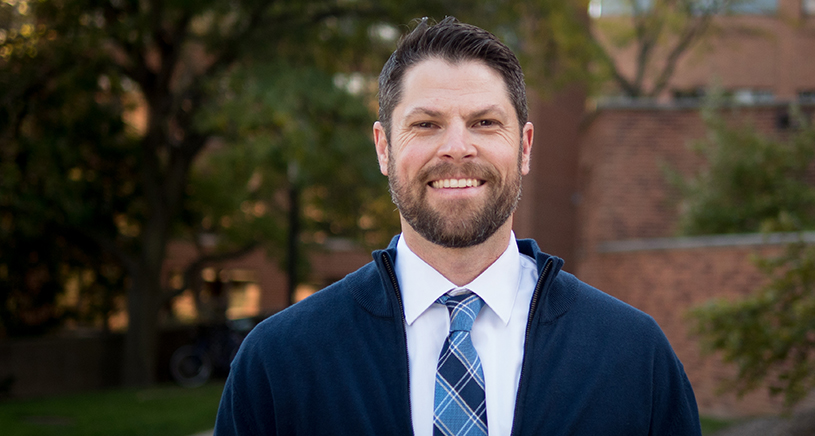
EHS660: Environmental Epigenetics and Public Health
- Graduate level
- Residential
- Winter term(s) for residential students;
- 2 credit hour(s) for residential students;
- Instructor(s): Dana Dolinoy (Residential);
- Offered Every winter semester (next offering: Winter 2025)
- Last offered Winter 2024
- Prerequisites: None
- Undergraduates are allowed to enroll in this course.
- Description: This course examines principles and applications of epigenetics as they relate to human nutrition, environmental exposures and disease etiology, including mechanisms and policy implications. Case studies evaluate processes using animal and human examples drawn from the literature. Students will be introduced to laboratory methods and emerging technologies for examining epigenetics.
- This course is cross-listed with NUTR 660 in the NUTR 660 department.
- Syllabus for EHS660

EHS668: Interprofessional Perspectives In Occupational Health And Safety
- Graduate level
- Residential
- Winter term(s) for residential students;
- 2 credit hour(s) for residential students;
- Instructor(s): Marie O'Neill (Residential);
- Offered Every winter semester (next offering: Winter 2025)
- Last offered Winter 2024
- Prerequisites: None
- Undergraduates are allowed to enroll in this course.
- Description: Seminar in applying interprofessional approaches to occupational health issues. Group case study work and presentations by speakers from industry, labor organizations, governments, and academia.
- Syllabus for EHS668

EHS672: Healthy And Sustainable Foods And Products- Life Cycle Assessment
- Graduate level
- Online MPH only
- This is a second year course for Online students
- Winter term(s) for online MPH students;
- 3 credit hour(s) for online MPH students;
- Instructor(s): Simone Charles (Online MPH);
- Offered Every winter semester (next offering: Winter 2025)
- Last offered Winter 2024
- Prerequisites: Successful completion of PUBHLTH 514 or PUBHLTH 501 or permission of instructor
- Description: This course describes how consumption, products and foods affect impacts on health and environment. After addressing the major health determinants, we assess diets nutritional and sustainable performances. We use LCA to analyze the environmental impact of products, with focus on chemicals in consumer products, discussing the path towards sustainable consumption.
- Learning Objectives: 1. To identify the key factors impacting health and the environment, including the roles played by products. 2. To assess and compare the nutritional and sustainable performances of foods, accounting for both the consumer health and the environment. 3. To provide tools and practice opportunities for Environmental Life Cycle Assessment (LCA) to assess the environmental impact of products and systems over the whole product life cycle 4. To set the fundamentals for comparative risks of chemicals in consumer products. 5. To adequately relate risk and impacts on human health to consumption and production, from single products to sustainable consumption.
- Syllabus for EHS672

EHS675: Data Analysis For Environmental Epidemiology
- Graduate level
- Residential
- Winter term(s) for residential students;
- 3 credit hour(s) for residential students;
- Instructor(s): Sung Kyun Park (Residential);
- Offered Every winter semester (next offering: Winter 2025)
- Last offered Winter 2024
- Prerequisites: (BIOSTAT 522 and EPID 600 (or equivalent)) or PhD standing in Epidemiology
- Advisory Prerequisites: BIOSTAT 523 is recommended
- Description: This course is an applied epidemiologic data analysis using R statistical software, a free software environment for statistical computing and graphics, and especially covers unique features of environmental exposure data. The course will cover important statistical issues in environmental health data, such as log-transformation and standardization of chemical biomarkers. It will introduce parametric and non-parametric smoothing methods, such as natural splines, penalized splines, and locally weighted polynomial regression (LOESS), and how to implement them using generalized linear models (glm) and generalized additive models (gam). The course will also cover data analysis subject to the dependence issue, such as longitudinal data and complex sampling data (e.g., NHANES) and time-series analysis in air pollution health effects that are widely used in environmental epidemiology. This course will provide an opportunity to analyze actual population data to learn how to model environmental epidemiologic data, and is designed particularly for students who pursue environmental epidemiologic research. The course will consist of lectures and hands-on practices in computer labs, homework assignments and final projects.
- Syllabus for EHS675

EHS683: Air pollution and Global Health
- Graduate level
- Residential
- Winter term(s) for residential students;
- 3 credit hour(s) for residential students;
- Instructor(s): Tim Dvonch (Residential);
- Not offered 2025-2026
- Prerequisites: None
- Description: Clean air is considered to be a basic requirement of human health and well-being. However, air pollution continues to pose a significant threat to health worldwide. This course covers air pollutants, their characterization, ambient concentrations, effects on human health and the environment, and international policy-making, guidelines, and governance.

EHS688: Professional Development in Environmental Health Sciences II
- Graduate level
- Residential
- Winter term(s) for residential students;
- 0.5 credit hour(s) for residential students;
- Instructor(s): Staff (Residential);
- Offered Every winter semester
- Last offered Winter 2024
- Prerequisites: None
- Advisory Prerequisites: The course is open to all EHS MPH students who are in the 2nd term of their 1st year in the program. It is expected that enrolled students have completed EHS 687 Environmental Health Sciences Prof. Development, Part I in the 1st term of their 1st year
- Description: This course is designed to introduce students to the Department of Environmental Health Sciences, resources available in School of Public Health and the broader University of Michigan environment, to prepare students for their internship experience, and to introduce students to different types of careers in environmental health.
- This course is cross-listed with .
EHS697: Readings
- Graduate level
- Residential
- Fall, Winter, Spring, Summer term(s) for residential students;
- 1-3 credit hour(s) for residential students;
- Instructor(s): Simone Charles (Residential);
- Prerequisites: Perm. Instr
- Description: Supervised study/review of a selected topic in environmental health, occupational health, nutrition and/or toxicology. May be elected more than once for a maximum of six credits.

EHS698: Research
- Graduate level
- Both Residential and OJOC
- Fall, Winter, Spring, Summer term(s) for OJOC and residential students;
- 1-6 credit hour(s) for OJOC and residential students;
- Instructor(s): Staff
- Prerequisites: Perm. Instr.
- Description: Original research investigation of a special topic in environmental health, occupational health, nutrition and/or toxicology. May be elected more than once for a maximum of six credits.
EHS699: Master's Thesis
- Graduate level
- Residential
- Fall, Winter, Spring, Summer term(s) for residential students;
- 1 credit hour(s) for residential students;
- Instructor(s): Staff (Residential);
- Prerequisites: Perm of Thesis Advisor
- Description: This course shall be elected by students enrolled in Master's degree programs that require a formal written thesis as a condition of program completion. The thesis shall be defended in front of the student's thesis committee. The course grade will reflect the student's accomplishments relative to the thesis and its defense. The course is to be elected only once.
EHS717: Toxicological Pathology Laboratory
- Graduate level
- Residential
- Winter term(s) for residential students;
- 1 credit hour(s) for residential students;
- Instructor(s): Ingrid Bergin (Residential);
- Offered Every other year (next offering: Winter 2025)
- Last offered Fall 2022
- Prerequisites: EHS 616 or Perm. Instr.
- Description: This laboratory course will provide an introduction to the histopathology associated with chemical exposures. Students will perform routine histological maneuvers on tissues from rats treated with "unknown" chemicals. Following microscopic inspection of tissues, students will describe the pathological process produced in each tissue and will identify the class of (or specific) chemical to which the organism was exposed.
- Syllabus for EHS717

EHS796: Special Topics in Environmental Health Sciences
- Graduate level
- Residential
- Fall, Winter term(s) for residential students;
- 1-3 credit hour(s) for residential students;
- Instructor(s): Staff (Residential);
- Prerequisites: None
- Description: Lecture, seminars and readings selected on a current or emerging topic or theme in the environmental health sciences. The specific material and format will vary by semester and instructor.
- Syllabus for EHS796
| Department | Program | Degree | Competency | Specific course(s) that allow assessment | EHS | Environmental Health Promotion and Policy | MPH | Analyze policies addressing environmental health issues | EHS796 |
|---|
EHS850: Research Design And Proposal Development In Environmental Health Sciences
- Graduate level
- Residential
- Winter term(s) for residential students;
- 2 credit hour(s) for residential students;
- Instructor(s): Stuart Batterman (Residential);
- Offered Every winter semester
- Last offered Winter 2024
- Prerequisites: None
- Advisory Prerequisites: None
- Description: Students will be able to understand all parts of the research process including conceptualization of a research question, formulation of hypotheses, development of a research plan, selection of appropriate methods from a variety of data collection strategies, development of an appropriate data analysis plan, and preparation of a research proposal.
- Learning Objectives: 1. Differentiate between key funding agencies for public health and understand their mandates 2. Review and evaluate the quality of scientific literature including identifying knowledge gaps 3. Develop a scientific idea by conducting a critical assessment of current literature and preliminary results 4. Develop hypotheses to test in a scientific study 5. Differentiate between research strategies pertinent to proposed hypotheses 6. Describe selected research strategies to test outlined hypotheses 7. Design a plan for analyzing data pertinent to scientific study 8. Construct a mock grant proposal around research topic of interest (specifically specific aims, significance, innovation, and approach sections of a grant application)
- Syllabus for EHS850

EHS899: Advanced Research
- Graduate level
- Residential
- Fall, Winter, Spring, Summer term(s) for residential students;
- 1-6 credit hour(s) for residential students;
- Instructor(s): Staff (Residential);
- Prerequisites: Perm. Instr.
- Description: Original investigations of a specific topic in environmental health, occupational health, nutrition and/or toxicology. Designed for doctoral students performing research prior to passing their qualifying exam. May be elected more than once.
EHS990: Dissertation/Pre-Candidacy
- Graduate level
- Residential
- Fall, Winter, Spring, Summer term(s) for residential students;
- 1-8 credit hour(s) for residential students;
- Instructor(s): Staff (Residential);
- Prerequisites: None
- Description: Election for dissertation work by doctoral students not yet admitted to status as candidate.
EHS995: Dissertation Research for Doctorate in Philosophy
- Graduate level
- Residential
- Fall, Winter, Spring, Summer term(s) for residential students;
- 8 credit hour(s) for residential students;
- Instructor(s): Staff (Residential);
- Prerequisites: None
- Description: Election for dissertation work by doctoral students who have been admitted to status as candidate.
EPID299: Independent Research for Undergraduates
- Graduate level
- Residential
- Fall, Winter term(s) for residential students;
- 1-3 credit hour(s) for residential students;
- Instructor(s): Sara Adar (Residential);
- Offered Every semester
- Prerequisites: Perm. Instr.
- Description: Students do an independent microbiology research project under the supervision of afaculty member in the Hospital and Molecular Epidemiology program.
- Learning Objectives: Students learn both specific laboratory techniques and in general how to carryout independent research.

EPID399: Independent Research for Undergraduates
- Graduate level
- Residential
- Fall, Winter term(s) for residential students;
- 1-3 credit hour(s) for residential students;
- Instructor(s): Staff (Residential);
- Offered Every semester
- Prerequisites: Perm. Instr. and at least Junior status
- Description: Students do an independent microbiology research project under the supervision of a faculty member in the Hospital & Molecular Epidemiology program.
EPID512: Biologic Basis Of Disease
- Graduate level
- Residential
- Winter term(s) for residential students;
- 3 credit hour(s) for residential students;
- Instructor(s): Kelly Bakulski (Residential);
- Offered Every Fall
- Last offered Fall 2021
- Prerequisites: None
- Description: This course is taught from an epidemiologic perspective and emphasizes the application of biologic knowledge for public health. Specifically, students will practice skills to develop biology-informed research questions, evaluate physiology-informed approaches to measure health outcomes, and interpret epidemiologic study results in the context of disease pathways.
- Learning Objectives: 1. You will be able to relate the structure and function of organ systems in the human body. 2. You will be able to evaluate biomarker measures of physiologic function, disease, and treatment response for use in epidemiologic studies. 3. You will be able to understand physiologic mechanisms of major diseases to inform research, treatment, and prevention. 4. You will be able to characterize the biologic links between risk factors and major diseases and explain biologic factors that affect a population’s health. 5. You will apply knowledge to develop novel and testable epidemiologic research questions in the context of physiology. 6. You will be able to interpret results from epidemiologic studies in the context of the physiology of that system. 7. You will be able to discuss the science of primary, secondary and tertiary prevention in population health.
- Syllabus for EPID512

EPID516: Genomics in Epidemiology
- Graduate level
- Residential
- Winter term(s) for residential students;
- 4 credit hour(s) for residential students;
- Instructor(s): Jennifer Smith (Residential);
- Offered Every Winter
- Prerequisites: Epid 503 or equivalent; Epid 515 or equivalent; Biostat 503 or equivalent
- Description: This course relates genomics to the core public health discipline of epidemiology emphasizing the use of genomics to help describe disease frequency and distribution and to gain insights into biological etiologies. Topics include genetic material in disease, in families and in populations; the investigation of multifactorial traits; model-based linkage analysis; model-free linkage analysis; segregation analysis; allele association and linkage disequilibrium; and gene-gene interactions and gene-environment interactions. Issues related to implementing studies are considered.
- Syllabus for EPID516

EPID521: Introduction to Geographic Information Systems for Public Health Research
- Graduate level
- Residential
- Winter term(s) for residential students;
- 1 credit hour(s) for residential students;
- Instructor(s): Peter Larson (Residential);
- Offered Every Winter
- Prerequisites: EPID600
- Description: This course is a practical guide for how to use GIS in your work as a public health professional and will provide an understanding for why incorporating geography into study design is critical to the translation of research findings into effective health policy.
- Learning Objectives: Foundational Learning Objective: Explain the critical importance of evidence in advancing public health knowledge.
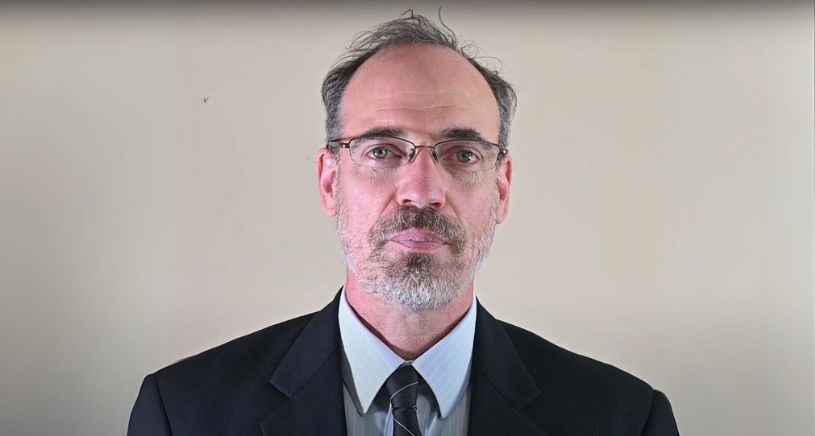
EPID525: Clinical and Diagnostic Microbiology
- Graduate level
- Residential
- Winter term(s) for residential students;
- 3 credit hour(s) for residential students;
- Instructor(s): Paul Lephart (Residential);
- Prerequisites: At least 1 prior microbiology course or permission of the instructor
- Description: This course describes methods used by clinical and public health microbiologists to detect clinically relevant microorganisms in patient specimens, and how this information is used in patient management. Students will gain an understanding of processes by which microbiology data is generated and its relevance to clinicians and epidemiologists.
- Syllabus for EPID525
EPID543: Epidemiology of Viral Diseases
- Graduate level
- Residential
- Fall, Winter term(s) for residential students;
- 3 credit hour(s) for residential students;
- Instructor(s): Emily Martin (Residential);
- Prerequisites: Graduate Standing or BIO 207 & BIO 305
- Undergraduates are allowed to enroll in this course.
- Description: The nature of viruses including replication, transmission, pathogenesis, pathology, antigenic relationships and preventive measures
- Syllabus for EPID543

EPID565: Research in Hospital and Molecular Epidemiology
- Graduate level
- Residential
- Fall, Winter, Spring, Summer term(s) for residential students;
- 1-6 credit hour(s) for residential students;
- Instructor(s): Emily Martin (Residential);
- Offered every year
- Prerequisites: Perm. Instr.
- Description: Investigation of a selected problem planned and carried out by each student. Pertinent literature, investigational approaches, and progress in the investigations are discussed in seminars. May be taken more than once for up to six credits. Usually taken first for one credit. This is the Capstone Course for Hospital and Molecular Epidemiology Students.
- Syllabus for EPID565

EPID582: Molecular Epidemiology And Pathogen Genomics
- Graduate level
- Residential
- Winter term(s) for residential students;
- 3 credit hour(s) for residential students;
- Instructor(s): Evan Snitkin (Residential);
- Offered Every Winter
- Prerequisites: None
- Description: Provides applied training in the generation, analysis, and interpretation of pathogen genomic data in the context of infectious disease outbreaks. Lectures will be reinforced with group projects, journal clubs and extensive hands-on training. Familiarity with the command-line and R basics is a plus, but course will assume no prior background.
- Learning Objectives: Not applicable
- Syllabus for EPID582
| Department | Program | Degree | Competency | Specific course(s) that allow assessment | EPID | Hospital and Molecular Epidemiology | MPH | Evaluate the use of different molecular tools in an outbreak investigation | EPID582 | EPID | Hospital and Molecular Epidemiology | MPH | Appropriately interpret the results of a molecular measure used in an epidemiologic study | EPID582 |
|---|
EPID594: Key Concepts in Spatial Analysis
- Graduate level
- Online MPH only
- This is a second year course for Online students
- Winter term(s) for online MPH students;
- 2 credit hour(s) for online MPH students;
- Instructor(s): Peter Larson, Jonathan Zelner, (Online MPH);
- Prerequisites: EPID592
- Description: In this course, students will gain familiarity with the key issues and statistical and theoretical tools for asking and answering epidemiological questions using spatial data.
- Learning Objectives: 1. Identify challenges to causal inference using spatial data. 2. Evaluate and employ appropriate analytic methods for diverse public health questions. 3. Fit basic regression models to spatial data and evaluate model fit.


EPID595: Applied Spatial Modeling
- Graduate level
- Online MPH only
- This is a second year course for Online students
- Winter term(s) for online MPH students;
- 3 credit hour(s) for online MPH students;
- Instructor(s):
- Prerequisites: EPID 592 and EPID 594
- Description: The large availability of geographically indexed health data, along with advances in computing, have enabled the development of statistical methods for the analysis of spatial epidemiological data. This course will introduce students to the most commonly used statistical models used to understand spatial variation in disease risk.
- Learning Objectives: By the end of the course students will be able to: (i) Recognize different types of spatial data. (ii) Formulate research questions and determine the appropriate spatial statistical model to analyze the data. (iii) Understand the concept of spatial correlation and how to estimate it in point-level spatial data. (iv) Include spatial random effect in generalized linear models for the analysis of spatial data. (v) Interpret the results of a spatial generalized linear model. (vi) Perform spatial interpolation of point-referenced data over space to predict missing data at unsampled locations. (vii) Smooth disease rates and disease counts over space using multilevel hierarchical models. (viii) Understand the definition of a (disease) cluster. (ix) Obtain a kernel density estimate of the intensity function representing the likelihood of observing a disease case at a given location. (x) Identify clusters of disease cases via appropriate statistical methods. (xi) Formulate statistical models to characterize spatial variation in the distribution of disease cases.

EPID600: Introduction To Epidemiology
- Graduate level
- Residential
- Fall, Winter term(s) for residential students;
- 3 credit hour(s) for residential students;
- Instructor(s): Carrie Karvonen-Gutierrez (Residential);
- Offered Every Fall
- Prerequisites: Current SPH Student
- Advisory Prerequisites: None
- Undergraduates are allowed to enroll in this course.
- Description: This is an introductory Epidemiology course that is required for Epidemiology MPH students and offered as an elective to others. This course provides students with in-depth foundations of epidemiologic theory and practice. The course will cover conceptual and practical issues around the design and conduct of epidemiologic research and the analysis and interpretation of data.
- Syllabus for EPID600

| Department | Program | Degree | Competency | Specific course(s) that allow assessment | EPID | General Epidemiology | MPH | Describe population patterns of health-related risk factors and health-related outcomes in terms of person, place, and time | EPID600, EPID602 | EPID | General Epidemiology | MPH | Compare the relative strengths and weaknesses of common epidemiologic study designs (e.g., cross-sectional, cohort, case-control, randomized experiments) | EPID600, EPID602 | EPID | General Epidemiology | MPH | Interpret the impact of bias, confounding, and effect modification on causal inference in epidemiologic research | EPID600, EPID602 | EPID | General Epidemiology | MPH | Critically evaluate epidemiological findings from published research studies | EPID600 |
|---|
EPID602: Epidemiologic Data Analysis
- Graduate level
- Online MPH only
- This is a second year course for Online students
- term(s) for online MPH students;
- 0 credit hour(s) for online MPH students;
- Instructor(s):
- Offered Every Year
- Prerequisites: Epid 600, and EPID 639, or permission of the instructor.
- Description: A practicum in epidemiologic data analysis designed to integrate and apply concepts learned in previous biostatistics and epidemiologic methods courses. Students learn practical skills to analyze and interpret epidemiologic data with continuous and dichotomous outcome variables through lectures and hands-on exercises.
- Syllabus for EPID602

| Department | Program | Degree | Competency | Specific course(s) that allow assessment | EPID | General Epidemiology | MPH | Describe population patterns of health-related risk factors and health-related outcomes in terms of person, place, and time | EPID600, EPID602 | EPID | General Epidemiology | MPH | Compare the relative strengths and weaknesses of common epidemiologic study designs (e.g., cross-sectional, cohort, case-control, randomized experiments) | EPID600, EPID602 | EPID | General Epidemiology | MPH | Interpret the impact of bias, confounding, and effect modification on causal inference in epidemiologic research | EPID600, EPID602 |
|---|
EPID604: Applications Of Epidemiology
- Graduate level
- Residential
- Fall, Winter, Spring, Spring-Summer, Summer term(s) for residential students;
- 1-6 credit hour(s) for residential students;
- Instructor(s): Ella August, James Buskiewicz, Sara Adar, Matthew Boulton, Andrew Brouwer, Melissa Beck, Kelly Bakulski, Miatta Buxton, Joseph Eisenberg, Marisa Eisenberg, Nancy Fleischer, Betsy Foxman, Aubree Gordon, Alexis Handal, Jennifer Head, Jihyoun Jeon, Spruha Joshi, Sharon Kardia, Carrie Karvonen-Gutierrez, Lindsay Kobayashi, Peter Larson, Aleda Leis, Elizabeth Levin-Sparenberg, Lynda Lisabeth, Juan Marquez, Emily Martin, Briana Mezuk, Alison Mondul, Lewis Morgenstern, Belinda Needham, Marie O'Neill, Sung Kyun Park, C. Leigh Pearce, Laura Power, Alex Rickard, Jennifer Smith, Eduardo Villamor, Abram Wagner, Xin Wang, Douglas Wiebe, Zhenhua Yang, Jonathan Zelner, (Residential);
- Prerequisites: Instructor Permission
- Description: Application of epidemiological methods and concepts to analysis of data from epidemiological, clinical or laboratory studies. Introduction to independent research and scientific writing under faculty guidance.
- This course is cross-listed with .
- Syllabus for EPID604






















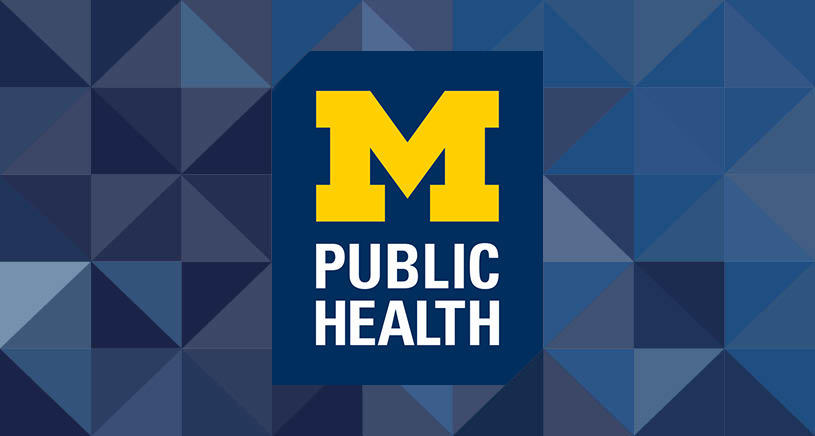

















EPID608: Environmental Epidemiology
- Graduate level
- Residential
- Winter term(s) for residential students;
- 3 credit hour(s) for residential students;
- Instructor(s): Alexis Handal (Residential);
- Offered Every Winter
- Prerequisites: Epid 600 or 503, Biostat 553 or 503
- Description: This course will serve as an introduction to topics in environmental epidemiology, covering major areas of current inquiry in this field. It will convey the basic tools required to critically read the literature and to develop appropriate study designs in light of intended applications. The class meeting will include lectures and student-led discussions. This course will review epidemiologic methods used in evaluating the health effects of physical, biological and chemical agents in the environment and the available evidence on the health effects of such exposures. We will also consider policy and public health applications of the scientific evidence. Topics include lectures on methodology and major environmental exposures, discussions based on review and critiques of current literature, and presentations by outside experts on specific environmental epidemiology issues of current interest. After taking this course, students should have a better understanding of the scope, limitations, applications and future of environmental epidemiology.
- This course is cross-listed with EHS 608 in the Environmental Health Sciences department.
- Syllabus for EPID608

| Department | Program | Degree | Competency | Specific course(s) that allow assessment | EPID | Occupational and Environmental Epidemiology | MPH | Design an epidemiologic study of an environmental or occupational factor and a health outcome that tests one or more specific hypotheses | EPID608 |
|---|
EPID617: Social And Economic Determinants Of Population Health
- Graduate level
- Residential
- Winter term(s) for residential students;
- 3 credit hour(s) for residential students;
- Instructor(s): Lindsay Kobayashi (Residential);
- Prerequisites: EPID 514 or permission of instructor
- Description: The objective of this course is to examine, in depth, some of the key social determinants of health in populations. The course is organized around substantive topic areas (e.g. obesity, disability, mental health, youth and substance abuse, stress and social support, neighborhoods and environments), with a focus on understanding the role of social factors in shaping health. The course draws heavily on epidemiologic perspectives and methods as tools to improve our understanding of population health, and is designed to expose students to different methodological approaches and their strengths/limitations in defining population health, understanding its determinants, and assessing the mechanisms by which these determinants influence population health. The course is a combination of lectures and student discussions, with an emphasis on class participation.
- Syllabus for EPID617

EPID621: Cancer Epidemiology
- Graduate level
- Residential
- Winter term(s) for residential students;
- 3 credit hour(s) for residential students;
- Instructor(s): Alison Mondul (Residential);
- Offered Every Winter
- Prerequisites: EPID 503, EPID 600 or PUBHLTH 512; or PhD standing
- Description: The course will review the socio-demographic magnitude of cancer, basic concepts of cancer biology and the causes of cancer. Methods for evaluating genetic factors, tobacco, alcohol, radiation, chemicals, pharmaceuticals, viruses and nutrition will be reviewed in lectures and by classroom discussion of selected publications.
- Syllabus for EPID621

EPID624: Readings in Epidemiology
- Graduate level
- Residential
- Fall, Winter, Spring, Summer term(s) for residential students;
- 1-2 credit hour(s) for residential students;
- Instructor(s): Laura Power (Residential);
- Offered Every Year
- Prerequisites: Perm. Instr.
- Description: Review of literature on selected subjects under guidance of individual faculty members and through scheduled seminars at which reports are presented. May be elected more than once.

EPID625: Controversial Topics In Nutrition
- Graduate level
- Residential
- Winter term(s) for residential students;
- 3 credit hour(s) for residential students;
- Instructor(s): Ana Baylin (Residential);
- Prerequisites: None
- Advisory Prerequisites: Encouraged to have some introductory knowledge of Epidemiology and Biostatistics
- Undergraduates are allowed to enroll in this course.
- Description: This public health oriented course will provide students the opportunity to advance their knowledge in nutrition and health research from a population perspective and help them to better interpret epidemiologic studies on nutrition
- This course is cross-listed with EPID625/NUTR626 in the Epidemiology and Nutritional Sciences department.
- Syllabus for EPID625

EPID634: Foundations in infectious disease transmission modeling
- Graduate level
- Residential
- Winter term(s) for residential students;
- 3 credit hour(s) for residential students;
- Instructor(s): Joseph Eisenberg (Residential);
- Offered Every Winter
- Prerequisites: EPID 600, BIOSTATS 503, 553, or another course that provides a similar background in probability and statistics
- Description: Infectious disease transmission modeling provides a theoretical framework for the field of infectious disease epidemiology; i.e., it provides a basis for thinking about study design, data analysis, and decision making. This course will serve as an introduction to infectious disease transmission modeling, teaching more quantitative concepts of disease transmission.
- Syllabus for EPID634

EPID637: Systems Modeling Of Behavior, Social Processes And Chronic Disease
- Graduate level
- Residential
- Winter term(s) for residential students;
- 3 credit hour(s) for residential students;
- Instructor(s): Michael Hayashi (Residential);
- Prerequisites: None
- Description: This course covers applications of mathematical and computational modeling to behavior, social processes, and chronic disease. Methods include game theory, agent-based, and network modeling, and natural history models of chronic diseases. Students will learn to develop models in Python. Coursework includes computer lab exercises and a final modeling project.
- Syllabus for EPID637

EPID638: Computer Modeling Of Complex Systems
- Graduate level
- Residential
- Winter term(s) for residential students;
- 3 credit hour(s) for residential students;
- Instructor(s): Marisa Eisenberg (Residential);
- Prerequisites: None
- Undergraduates are allowed to enroll in this course.
- Description: This course is focused on agent-based models (ABMs), applied to a range of social, biological, and epidemiological problems (as well as other systems potentially). We also cover several other modeling areas such as networks, cellular automata, basic probability distributions and statistics, computer programming, and a review of important ABM papers.
- Learning Objectives: Explain the role of quantitative and qualitative methods and sciences in describing and assessing a population's health Explain an ecological perspective on the connections among human health, animal health and ecosystem health (e.g., One Health)
- This course is cross-listed with CMPLXSYS 530 in the Literature, Science and Arts department.
- Syllabus for EPID638

EPID640: SAS for Epidemiological Research
- Graduate level
- Residential
- Winter term(s) for residential students;
- 3 credit hour(s) for residential students;
- Instructor(s): Miatta Buxton (Residential);
- Offered Every Fall
- Last offered Fall 2021
- Prerequisites: BIOSTAT 503 or 553
- Description: This course teaches the fundamentals of data management, processing, manipulation, and critical review of data in SAS for epidemiologic and statistical analysis.
- Learning Objectives: By the end of this course, students should be able to read in raw data, merge files, recode existing variables, create new parameters, critically review data for errors, create graphics to understand data, construct datasets for statistical analysis, and interpret simple statistical output in SAS.

EPID664: Field Methods In Global Health Epidemiology
- Graduate level
- Residential
- Winter term(s) for residential students;
- 3 credit hour(s) for residential students;
- Instructor(s): Alexis Handal (Residential);
- Offered Every Winter
- Prerequisites: Foundations in epidemiology (met by either PH512, PH500, EPID 600 or EPID 601) and foundations in global health (met by EPID506), or permission of the instructor.
- Description: This course is for global health epidemiology students preparing for internships in global settings. Students will learn procedures necessary to conduct epidemiologic studies in international settings, including developing relationships with foreign collaborators, obtaining funding and ethical approval, and managing field operations. Students will discuss case studies in global health ethics.
- Syllabus for EPID664

| Department | Program | Degree | Competency | Specific course(s) that allow assessment | EPID | Global Health Epidemiology | MPH | Apply the steps in developing research infrastructure for population health studies in low- and middle-income countries, including consideration of local ethics and IRB review | EPID506, EPID664 | EPID | Global Health Epidemiology | MPH | Develop strategies and capacity for resolving problems that arise when conducting epidemiology studies in low- and middle-income countries | EPID664, EPID665 |
|---|
EPID666: Health and Socioeconomic Development
- Graduate level
- Residential
- Winter term(s) for residential students;
- 3 credit hour(s) for residential students;
- Instructor(s): Howard Stein (Residential);
- Offered Every Winter
- Prerequisites: Grad Status
- Description: Reviews links between health conditions and socioeconomic development in low-income countries and trends in health and development indicators; socio-economic determinants of health, including poverty and income, education, nutrition, fertility, and culture and behavior; impact of globalization in terms of neo-liberal policies, trade and capital flows and the urbanization and their growth of the informal economy; examines the effects of health changes on economic growth and development.
- This course is cross-listed with 662 in the CAAS department.
- Syllabus for EPID666

EPID668: Professionalism, Practice, And Communication 2
- Graduate level
- Residential
- Winter term(s) for residential students;
- 1 credit hour(s) for residential students;
- Instructor(s): Emily Martin (Residential);
- Prerequisites: Must be a current student in an Epidemiology Program
- Advisory Prerequisites: EPID667
- Description: This course will introduce students to the field of epidemiology including needed professionalism and communication skills. This course will guide students through the Applied Practice Experience (APEx), help them prepare for internship and career opportunities, address responsible, ethical, and respectful engagement, and introduce students to careers in public health.
- Learning Objectives: Introduce a range of formats for professional communication, leading students to be able to identify and/or create effective written and oral arguments within each of the communication formats we cover in this course. Train students in principles of secure data management, data sharing, reproducibility and open science. Familiarize students with regulatory processes in public health research. Provide students with small-group support in finding and completing APEx and other academic and practice opportunities. Provide students the opportunity to engage in real-world public health settings and / or with practicing professionals.

EPID671: Integrated Problem Solving In Epidemiology 2
- Graduate level
- Residential
- Winter term(s) for residential students;
- 3 credit hour(s) for residential students;
- Instructor(s): Abram Wagner (Residential);
- Prerequisites: EPID 670, This course is only for EPID MPH students.
- Description: This class is the second semester of a year-long capstone course for students completing the master’s of public health in epidemiology. The course advances students’ skills in data management, writing, and data visualization. Students will apply concepts into individual data analysis and writing projects.
- Learning Objectives: To apply best practices in data management, including cleaning data and understanding patterns of missingness To develop effective skills and habits in writing about epidemiology studies To create a variety of visualizations for epidemiological findings

| Department | Program | Degree | Competency | Specific course(s) that allow assessment | EPID | General Epidemiology | MPH | Apply core aspects of field methods in epidemiology (e.g., survey design, sampling and power, surveillance) | EPID670, EPID671 | EPID | Occupational and Environmental Epidemiology | MPH | Communicate environmental or occupational epidemiological findings in writing using standards of peer-reviewed journals, including descriptions of design, results, and interpretation | EPID670, EPID671 |
|---|
EPID674: Epidemiologic Data Analysis Using R
- Graduate level
- Online MPH only
- This is a second year course for Online students
- Winter term(s) for online MPH students;
- 2 credit hour(s) for online MPH students;
- Instructor(s): Michael Hayashi (Online MPH);
- Offered Every Year
- Prerequisites: None
- Advisory Prerequisites: (EPID 640, PH 512) or (EPID 600, BIOSTAT 521 or 501)
- Description: This course introduces the R statistical programming language for epidemiologic data analysis. Content focuses on organizing, managing, and manipulating data; basic graphics in R; and descriptive methods and regression models widely used in epidemiology. The 2-credit option includes statistical modeling in R. The 3-credit option adds programming in R.
- Syllabus for EPID674


EPID675: Data Analysis For Environmental Epidemiology
- Graduate level
- Residential
- Winter term(s) for residential students;
- 3 credit hour(s) for residential students;
- Instructor(s): Sung Kyun Park (Residential);
- Offered Every Winter
- Prerequisites: (BIOSTAT 522 and (EPID 600 or EPID 601 or PH 500)) or PhD standing in Epidemiology
- Advisory Prerequisites: BIOSTAT 523 is recommended
- Description: This course is an applied epidemiologic data analysis using R statistical software, a free software environment for statistical computing and graphics, and especially covers unique features of environmental exposure data. The course will cover important statistical issues in environmental health data, such as log-transformation and standardization of chemical biomarkers. It will introduce parametric and non-parametric smoothing methods, such as natural splines, penalized splines, and locally weighted polynomial regression (LOESS), and how to implement them using generalized linear models (glm) and generalized additive models (gam). The course will also cover data analysis subject to the dependence issue, such as longitudinal data and complex sampling data (e.g., NHANES) and time-series analysis in air pollution health effects that are widely used in environmental epidemiology. This course will provide an opportunity to analyze actual population data to learn how to model environmental epidemiologic data, and is designed particularly for students who pursue environmental epidemiologic research. The course will consist of lectures and hands-on practices in computer labs, homework assignments and final projects.
- Syllabus for EPID675

| Department | Program | Degree | Competency | Specific course(s) that allow assessment | EPID | Occupational and Environmental Epidemiology | MPH | Interpret epidemiologic results from higher-order biostatistical techniques applied to these data, such as linear regression, logistic regression, mixed effects models, and graphic techniques | EPID675 |
|---|
EPID678: Applications Of Epidemiology In Governmental Public Health
- Graduate level
- Residential
- Fall, Winter term(s) for residential students;
- 3 credit hour(s) for residential students;
- Instructor(s): Juan Marquez (Residential);
- Prerequisites: None
- Advisory Prerequisites: EPID 600 or EPID 639 or permission of instructor
- Description: Students will learn to apply their epidemiological training in real-world public health settings. The course will focus on teaching the most common communicable diseases and emerging issues likely to be faced by epidemiologists in a governmental public health department through lectures, interactive sessions, and applied projects.
- Learning Objectives: Students should be able to: - Understand role and functions of local, state, and federal public health organizations 1 - Summarize surveillance systems used by public health organizations - Summarize reportable diseases in Michigan and nationally - Understand how to navigate resources for reportable diseases and emerging threats - Describe the epidemiology, clinical characteristics, disease prevention, and control measures for the most common reportable diseases 2 - Understand how to collect data for communicable disease investigations, outbreak investigations, and emerging public health issues 3 - Describe how to import, clean, transform and analyze data to support public health investigations and surveillance - Explain how to effectively communicate findings to an interdisciplinary team - Describe how to translate a general public health question into a SMART applied analysis - Understand how to manage an applied analysis project from concept through delivery
- Syllabus for EPID678

EPID679: Epidemiology of Psychiatric and Substance Use Disorders
- Graduate level
- Residential
- Winter term(s) for residential students;
- 3 credit hour(s) for residential students;
- Instructor(s): Michael Swain (Residential);
- Offered Every Winter
- Prerequisites: None
- Advisory Prerequisites: EPID602
- Description: Introduces the epidemiology of psychiatric and substance use disorders. Addresses conceptual and methodological considerations in psychiatric research, descriptive and analytic epidemiology of common psychiatric and substance use disorders, and issues of classification and measurement for epidemiologic research. Students analyze epidemiologic data pertaining to psychiatric and substance use disorders.
- Learning Objectives: Upon completing this course students will be able to: -Describe the epidemiology of the major psychiatric and substance use disorders of childhood, adulthood, and late adulthood -Understand epidemiologic methods used to assess psychiatric and substance use disorders in the community -Demonstrate the ability to critically assess epidemiologic data and scientific articles pertaining to psychiatric and substance use disorders -Demonstrate ability to obtain and analyze various epidemiologic data sources with information pertaining to psychiatric and substance use disorders -Prepare a scientific paper pertaining to epidemiology of psychiatric or substance use disorders -Improve public communication skills through class presentations and discussions
- Syllabus for EPID679
EPID680: Hospital Epidemiology I
- Graduate level
- Residential
- Winter term(s) for residential students;
- 3 credit hour(s) for residential students;
- Instructor(s): Zhenhua Yang (Residential);
- Offered Every Winter
- Prerequisites: None
- Description: The course provides an overview and essential knowledge in hospital epidemiology. It covers healthcare associated infection surveillance, prevention, and control, healthcare outcome assessment, and healthcare employee health promotion. The course also discusses important emerging issues in healthcare settings, which include antibiotics resistance, emerging infectious diseases, and biological disaster preparedness.

| Department | Program | Degree | Competency | Specific course(s) that allow assessment | EPID | Hospital and Molecular Epidemiology | MPH | Apply epidemiologic principles to the design and implementation of interventions in a healthcare setting | EPID680 | EPID | Hospital and Molecular Epidemiology | MPH | Apply principles of antibiotic stewardship | EPID680 |
|---|
EPID684: Theory and applications of spatial epidemiology
- Graduate level
- Residential
- Winter term(s) for residential students;
- 3 credit hour(s) for residential students;
- Instructor(s): Jonathan Zelner (Residential);
- Offered Every Winter
- Last offered Winter 2022
- Prerequisites: BIOSTAT 501 or BIOSTAT 521
- Advisory Prerequisites: intermediate biostatistics course recommended
- Description: This course provides a survey of spatial problems in epidemiology with a specific focus on public health applications of spatial analysis. Topics covered will include the different types of spatial data, causal inference with spatial data, and specific examples of applications of spatial analysis to epidemiological problems.
- Learning Objectives: 1. Describe the circumstances when spatial analysis is necessary and useful for different types of epidemiological problems and contexts. 2. Understand and describe key issues of causal inference in spatial analysis (e.g. ecological and atomistic fallacies). 3. Become familiar with statistical concepts underlying spatial epidemiological analysis.

EPID685: Measurement And Modeling In Space-time Epidemiology
- Graduate level
- Residential
- Winter term(s) for residential students;
- 3 credit hour(s) for residential students;
- Instructor(s): Douglas Wiebe (Residential);
- Prerequisites: None
- Advisory Prerequisites: None
- Description: Focused on measuring exposure based on where and how people spend time to understand health effects, including intermittent and abrupt-onset events, common in injury epidemiology. Emphasis on the temporal-spatial scale relevant to a given exposure-outcome question. Teaches coding to analyze data to test hypotheses while avoiding pitfalls including autocorrelation.
- Learning Objectives: Recall the features and strategy of Rothman's sufficient cause model. Differentiate early and late occurring risk factors for a given injury or disease. Classify the induction period for an exposure as it related to occurrence of an injury or disease. Classify data collection methods according to their suitability for a given exposure-outcome relation. Recognize which data collection methods (eg, realtime monitoring via wearable devices; responses to prompts received on smartphone in ecologic momentary assessment (EMA)) are feasible for a given research question and epidemiologic study design. Learn basic steps to collect data and learning coding to clean and analyze data that have temporal and spatial components (in R, SAS, or Stata). List the dimensions of Haddon's Matrix. Populate Haddon's Matrix for a given injury or disease prevention effort.

EPID686: Causal Inference In Epidemiology
- Graduate level
- Residential
- Winter term(s) for residential students;
- 3 credit hour(s) for residential students;
- Instructor(s): Eduardo Villamor (Residential);
- Prerequisites: EPID 601
- Description: This course introduces students to modern causal inference concepts applied to epidemiology, primarily based on the potential outcomes paradigm
- Learning Objectives: This course will help students: 1) Recognize the evolution of causal thinking in epidemiology. 2) Become familiar with concepts involving individual vs. average causal effects, counterfactuals, and causal contrasts. 3) Learn the assumptions required to identify causal effects. 4) Formulate causal questions using causal diagrams. 5) Understand sources and effects of bias including confounding, selection, misclassification within a potential outcomes frame. 6) Appreciate the principles underlying approaches to management of bias at the level of data analysis through G methods, including inverse probability weighting. In addition, the course addresses a CEPH-required foundational learning objective: • Explain the role of quantitative and qualitative methods and sciences in describing and assessing a population’s health.

EPID688: Alcohol, Tobacco, And Other Drug Use: People, Populations, And Policies
- Graduate level
- Residential
- Winter term(s) for residential students;
- 3 credit hour(s) for residential students;
- Instructor(s): Spruha Joshi (Residential);
- Prerequisites: PUBHLTH 500 or PUBHLTH 512 or EPID 600 or PhD standing
- Description: This course will cover trends and predictors of substance use at the individual- and population-level. We will discuss methodological challenges related to the study of substance use, substance use disorder, and related health outcomes across populations. We will evaluate the effectiveness of policies implemented to reduce substance use related harms.
- Learning Objectives: Learning objectives of the course: 1. Explain biological and genetic factors that affect a population’s health as they relate to substance use 2. Explain behavioral and psychological factors that affect a population’s health as they relate to substance use 3. Explain the social, political and economic determinants of health and how they contribute to population health and health inequities
EPID696: Pregnancy And Perinatal Epidemiology
- Graduate level
- Residential
- Winter term(s) for residential students;
- 3 credit hour(s) for residential students;
- Instructor(s): Eduardo Villamor (Residential);
- Prerequisites: EPID600 or PH512 or PhD standing
- Undergraduates are allowed to enroll in this course.
- Description: This course provides an overview of pregnancy and perinatal outcomes from an epidemiological perspective, including their burden, risk factors and consequences, and methodological challenges for their study at the population level.
- Learning Objectives: This course will help students: 1) Identify key physiological aspects of intrauterine development, birth, and the neonatal period. 2) Understand the role of common risk factors (e.g. parental age, socioeconomic status, smoking, obesity) for adverse pregnancy and perinatal outcomes. 3) Become familiar with the definition, burden, causes, and consequences of common adverse pregnancy and perinatal outcomes including diabetic and hypertensive disorders of pregnancy, miscarriage, fetal growth restriction, preterm birth, stillbirth and infant mortality, birth defects, and maternal mortality. 4) Recognize the methodological approaches and challenges specific to the study of pregnancy and perinatal outcomes at the population level.

EPID806: History of Epidemiology
- Graduate level
- Residential
- Winter term(s) for residential students;
- 2 credit hour(s) for residential students;
- Instructor(s): Ana Baylin (Residential);
- Last offered Winter 2014
- Not offered 2025-2026
- Prerequisites: EPID601 or similar
- Description: This is a methodology course which focuses on the historical evolution of methods (e.g., study designs) and concepts (e.g., confounding, bias, interaction and causal inference) that constitute today's epidemiology. The course will also include a brief history of Public Health and history of the Department of Epidemiology at Michigan.

EPID813: Advanced seminar on public health and aging
- Graduate level
- Residential
- Fall, Winter term(s) for residential students;
- 1 credit hour(s) for residential students;
- Instructor(s):
- Last offered Fall 2020
- Not offered 2025-2026
- Prerequisites: Doctoral standing at UM with training in research methods and statistics in relevant disciplines.
- Description: This course provides advanced training in aging research pertaining to the public health and well-being of older adults. It will cover a variety of substantive and methodological areas in aging-related epidemiologic research and geriatrics. Selection of specific topics will in part depend on the interests of participating students.
EPID815: Modern Statistical Methods In Epidemiologic Studies
- Graduate level
- Residential
- Winter term(s) for residential students;
- 3 credit hour(s) for residential students;
- Instructor(s): Sung Kyun Park (Residential);
- Prerequisites: EPID 601 (or equivalent) and BIOSTAT 522 and BIOSTAT 523 (or equivalent).
- Advisory Prerequisites: Experience using R required (at least the levels covered in EPID 639), BIOSTAT 512 (Longitudinal Analysis) and EPID/EHS 675 recommended
- Description: This course will cover modern statistical methods in the context of epidemiological applications to address public health problems. This course is intended for PhD students in Epidemiology and related areas. Specific topics may vary each year. Currently, three topics are covered: (a) Variable Selection and Statistical Learning; (b) Inverse Probability Weighting and Causal Survival Analysis; and (c) Causal Mediation Analysis.
- Syllabus for EPID815

EPID824: Advanced Epidemiologic Methods
- Graduate level
- Residential
- Winter term(s) for residential students;
- 3 credit hour(s) for residential students;
- Instructor(s): Spruha Joshi (Residential);
- Prerequisites: EPID601
- Advisory Prerequisites: EPID600 and EPID601 or equivalent, and doctoral student taking comprehensive exam; other students admitted by permission of instructor
- Description: Advanced epidemiologic methods, with an emphasis on causality in epidemiologic research, theoretical considerations and interpretations of findings.
- Syllabus for EPID824
| Department | Program | Degree | Competency | Specific course(s) that allow assessment | EPID | Epidemiologic Science | PhD | Evaluate epidemiological study designs and advanced epidemiological methods, and select the most appropriate method to address a specific study question | EPID811, EPID824, Comprehensive Exam | EPID | Epidemiologic Science | PhD | Demonstrate a thorough understanding of causal inference, sources of bias, and methods to improve the validity of epidemiologic studies | EPID811, EPID824, Comprehensive Exam |
|---|
EPID825: Writing Grant Applications
- Graduate level
- Residential
- Winter term(s) for residential students;
- 1 credit hour(s) for residential students;
- Instructor(s):
- Not offered 2025-2026
- Prerequisites: Basic epidemiology methods (EPID 600 or equivalent)
- Advisory Prerequisites: Basic competencies in epidemiology research methods, including biostatistics (e.g., Biostat 523), Measurement and Instrument Design (e.g., EPID 641); Sampling and Power Analysis (e.g., EPID 642)
- Description: This doctoral-level course will cover basic information on and skills in writing effective grant applications. It will provide extensive opportunity to practice grant writing skills in a positive and inclusive environment with instructor and peer feedback. The course will also provide key information and resources on the different types of grant mechanisms available to researchers in public health sciences, and introduce students to the grant review and funding process. The course will be offered seminar-style. Individual classes typically include a brief presentation on grant mechanisms, grant application structures and formats, and grant review processes. All students will be required to develop a research question for an application and write the Specific Aims page as part of the class. They will participate in the peer-review of the drafts of the Specific Aims drafts of the other students.
- Learning Objectives: see below
- Syllabus for EPID825
EPID889: Responsible Conduct of Research and Scholarship Seminar
- Graduate level
- Residential
- Fall, Winter term(s) for residential students;
- 1 credit hour(s) for residential students;
- Instructor(s): Belinda Needham (Residential);
- Prerequisites: None
- Description: This seminar will cover the Responsible Conduct of Research and Scholarship (RCRS) training for all incoming EPID PhD students and other individuals who are affiliated with a training grant. The seminar will also expose students to cutting-edge epidemiologic research topics through departmental talks by experts in the field as well as provide additional professional development training. RCRS is defined by National Institutes of Health as "the practice of scientific investigation [and academia] with integrity. It involves the awareness and application of established professional norms and ethical principles in the performance of all activities related to scientific research [and academia]."
- Syllabus for EPID889

EPID890: Doctoral Seminar in Epidemiology
- Graduate level
- Residential
- Fall, Winter term(s) for residential students;
- 1-2 credit hour(s) for residential students;
- Instructor(s): C. Leigh Pearce (Residential);
- Prerequisites: None
- Description: Doctoral seminar to provide guidance to new doctoral candidates as they write their prospectus, and to provide opportunities to practice the presentation modalities of epidemiology through seminars, poster sessions, and oral presentations.

EPID891: Advanced Readings in Epidemiology
- Graduate level
- Residential
- Fall, Winter, Spring, Summer term(s) for residential students;
- 2 credit hour(s) for residential students;
- Instructor(s):
- Last offered Winter 2015
- Not offered 2025-2026
- Prerequisites: Perm. Instr.
- Description: Students will review assigned readings on the epidemiology or natural history of specific infections or chronic diseases or on host or environmental factors associated with disease, or on epidemiological methods and their application. May be elected more than once
EPID990: Dissertation Research/Pre-Candidate
- Graduate level
- Residential
- Fall, Winter, Spring, Summer term(s) for residential students;
- 1-8 credit hour(s) for residential students;
- Instructor(s): Staff (Residential);
- Prerequisites: None
- Description: For students who have NOT reached candidacy yet.
EPID995: Dissertation Research/Candidate
- Graduate level
- Residential
- Fall, Winter, Spring, Summer term(s) for residential students;
- 8 credit hour(s) for residential students;
- Instructor(s): Staff (Residential);
- Prerequisites: None
- Description: Election for dissertation work by doctoral student who has been admitted to status as a candidate
HBHEQ540: Fundamentals Of Reproductive Justice
- Graduate level
- Residential
- Winter term(s) for residential students;
- 3 credit hour(s) for residential students;
- Instructor(s): Safyer McKenzie-Sampson (Residential);
- Offered every year
- Prerequisites: None
- Advisory Prerequisites: Recommend prior human physiology course
- Undergraduates are allowed to enroll in this course.
- Description: This course provides a comprehensive introduction to reproductive justice in the USA and internationally. The course will introduce students to the historical origins of the reproductive justice movement, socio-political barriers to reproductive autonomy in the 21st century through a human rights framework, and key grassroots organizing efforts towards reproductive freedom.

HBHEQ578: Practical Projects
- Graduate level
- Residential
- Fall, Winter, Spring, Spring-Summer, Summer term(s) for residential students;
- 1-3 credit hour(s) for residential students;
- Instructor(s): Staff (Residential);
- Prerequisites: None
- Description: Practical projects in the application of theory and principles of Health Behavior and Health Education to individual and community-based public health settings. Course requirements include an approved practical project related to Health Behavior and Health Education in consultation with a faculty advisor. THE EXPERIENCE IS REPORTED IN AN INTEGRATIVE PAPER DEMONSTRATING THE SCIENTIFIC APPLICATION OF HBHE THEORIES AND PRINCIPLES TO THE PRACTICAL PROJECT. May be elected more than once. Enrollment limited to Health Behavior and Health Education majors with at least two full terms of prior registration.
HBHEQ597: Clear Health Communication
- Graduate level
- Online MPH only
- This is a second year course for Online students
- Winter term(s) for online MPH students;
- 3 credit hour(s) for online MPH students;
- Instructor(s): Brian Zikmund-Fisher (Online MPH);
- Prerequisites: None
- Advisory Prerequisites: None
- Description: This course covers a variety of techniques and skills that lead to clear health communications, including ways of making health data more understandable and health messages more memorable. Participants practice these skills through a series of exercises and through creation of health communication products.
- Learning Objectives: 1) Define clear, audience-appropriate goals for a health communication 2) Identify and use features of messages to increase message memorability (i.e., stickiness) 3) Identify and provide contextual information to make health data (e.g., test results, risk statistics) more intuitively understandable and usable by different audiences 4) Evaluate to what degree health messages follow best practices such as using plain language 5) Apply principles of user-centered design and usability testing to develop and refine health messages using audience input.

HBHEQ605: Lgbtq Health And Inequities
- Graduate level
- Residential
- Winter term(s) for residential students;
- 3 credit hour(s) for residential students;
- Instructor(s): Kristi Gamarel (Residential);
- Not offered 2025-2026
- Prerequisites: None
- Undergraduates are allowed to enroll in this course.
- Description: This graduate seminar presents an overview of current research, principles, and theories in LGBTQ+ health. Students will learn theories and principles guiding LGBTQ+ health research, will develop an understanding of methodological and assessment issues in the study sexuality and gender, and will apply these principles to inform public health efforts.
- Learning Objectives: By the end of the course, students will be able to identify and critically assess: Major concepts, theories and perspectives guiding a multidisciplinary understanding of human sexuality and gender across the life course; Recent developments in LGBTQI+ health research; Methodological aspects in the study of sexuality and gender; How research on sexuality and gender informs public health practice to eliminate inequities in LGBTQ+ health

HBHEQ614: Women's Health and the Timing of Reproduction
- Graduate level
- Residential
- Winter term(s) for residential students;
- 3-4 credit hour(s) for residential students;
- Instructor(s): Arline T Geronimus (Residential);
- Offered every other year
- Not offered 2025-2026
- Prerequisites: Perm. Instr.
- Description: Applies a systems perspective to examine the personal, social, and cultural factors that influence the age at which women initiate childbearing and the implications of these factors for the health of women and infants. Topics include teenage childbearing, Black American fertility patterns, infant mortality, ethnographic and other research methods, and related policy issues. Reviews current, historical, and cross-cultural examples. Students apply course concepts and methodologies to specific research and policy questions.

HBHEQ617: Global Public Health
- Graduate level
- Residential
- Winter term(s) for residential students;
- 3 credit hour(s) for residential students;
- Instructor(s): Elizabeth King (Residential);
- Prerequisites: None
- Description: In this course, we discuss globalization and health, major actors/organizations in global health, global health inequities, and "hot topics" in global health. This course is designed to help students critically think about how to apply key concepts and skills in health behavior and health education to understanding global health issues.

HBHEQ624: Needs Assessment Methods for Public Health
- Graduate level
- Residential
- Winter term(s) for residential students;
- 3 credit hour(s) for residential students;
- Instructor(s): Alexa Eisenberg (Residential);
- Prerequisites: None
- Description: This course will cover a mixed-methods approach to conducting needs assessments; including collection of primary data (e.g. surveys, focus groups, and interviews) and secondary data (e.g. agency, state statistics, and census). Furthermore, a global perspective will be used to study various international efforts using health equity needs assessments.

HBHEQ625: Research in Health Behavior
- Graduate level
- Residential
- Fall, Winter, Spring, Spring-Summer, Summer term(s) for residential students;
- 1-4 credit hour(s) for residential students;
- Instructor(s): Staff (Residential);
- Prerequisites: Perm. Inst.
- Description: Individual work on a problem in the area of health behavior relevant to program effectiveness in public health, under the tutorial guidance of an appropriate staff member. Regular conferences are arranged to discuss research designs, proposed problem solutions, methods for data collection and analysis. The investigation is reported in a paper, which may be submitted for publication. May be elected more than once.
HBHEQ631: Project Management in Public Health
- Graduate level
- Residential
- Winter term(s) for residential students;
- 3 credit hour(s) for residential students;
- Instructor(s):
- Not offered 2025-2026
- Prerequisites: Prior completion of HBHE651 Program Development in Health Education
- Advisory Prerequisites: Prior completion of PUBHLTH 513 or HBEHED 651
- Description: HBEHED 631: Project Management in Public Health is a 3-credit course designed to provide an introduction to budgeting and related administrative skills and strategies relevant to managing public health programs. Students will build skills in hiring and managing teams, developing work plans, building and managing budgets, monitoring budget changes, and responding to funder inquiries. This course requires students to work in teams and use project management software to simulate the management of workflow and activities of a public health project.
- Learning Objectives: By the end of the course, students will be able to: 1. Understand different types of funding sources and how budget development/management differs for each. 2. Develop, monitor, and modify a public health project budget. 3. Develop a project work plan. 4. Use project management tools to monitor progress toward project aims. 5. Create a team work flow that supports collaboration and outlines decision making processes. 6. Adopt a group vision that guides the work of a team. 7. Understand factors that facilitate the hiring and management of human resources for projects. 8. Develop effective communications about budget and project progress for funding agencies.
HBHEQ638: Qualitative Methods in Public Health
- Graduate level
- Residential
- Winter term(s) for residential students;
- 3 credit hour(s) for residential students;
- Instructor(s): Elizabeth King, Elizabeth King, (Residential);
- Prerequisites: Permission of Instructor
- Description: This is a course about doing qualitative social research in public health. One of its major goals is very practical and down to earth: acquiring the strategies and techniques needed to conduct qualitative research on human behavior. But the course also aspires to understand the philosophical, ethical, and political issues involved in the practice of social science within public health. The course will focus upon five phases of the research process: l) pre-research dilemmas and decisions, 2) theory and the formulation of the research question or hypothesis, 3) design, sampling, and data collection, 4) stages of data analysis, and 5) the implications of qualitative knowledge for representation of "subjects" and the expression of this knowledge in the form of written reports or publications.

HBHEQ639: Mixed Methods Research Designs And Applications
- Graduate level
- Residential
- Winter term(s) for residential students;
- 3 credit hour(s) for residential students;
- Instructor(s): K. Rivet Amico (Residential);
- Prerequisites: None
- Advisory Prerequisites: Intro to BioSTATS recommended
- Undergraduates are allowed to enroll in this course.
- Description: To provide the background rationale and tools to understand mixed methods (MM) designs – MM rationale, advantages, implementation and practical strategies for conducted MM research. Students will use this information and skills to propose their own novel MM study in an area of interest in public health.
- Learning Objectives: Profession & Science of Public Health 3. Explain the role of quantitative and qualitative methods and sciences in describing and assessing a population’s health 5. Explain the critical importance of evidence in advancing public health knowledge Factors Related to Human Health 12. Explain an ecological perspective on the connections among human health, animal health and ecosystem health (e.g., One Health)

HBHEQ641: Materials And Methods In Health Education Programs
- Graduate level
- Residential
- Winter term(s) for residential students;
- 3 credit hour(s) for residential students;
- Instructor(s): Minal Patel (Residential);
- Offered every year
- Prerequisites: Perm. Instr.
- Description: This course provides a hands-on experiential learning process to build understanding of effective design and use of health communication materials through both individual assignments and a team-based project conducted in cooperation with community-based organizations in the Southeast Michigan area. Students will learn how to identify and choose among different goals for health communication materials, to systematically analyze the target audience, and to develop personas to represent the audience during the development process. Students will also develop practical writing skills, learn how to involve the target audience in the material development process, and consider how best to evaluate the effectiveness of health communication materials. In the process, the course introduces students to the issues of health literacy, numeracy, and cultural humility as related to the design of public health communication strategies.
HBHEQ644: Readings in Health Behavior and Health Education
- Graduate level
- Residential
- Fall, Winter, Spring, Spring-Summer, Summer term(s) for residential students;
- 1-6 credit hour(s) for residential students;
- Instructor(s): Staff (Residential);
- Prerequisites: Perm. Instr.
- Description: Review of literature on selected topics in health behavior, health education or related areas under guidance of faculty member. Critical analysis; written and oral reports. May be taken more than once for a total not to exceed 6 credit hours.
HBHEQ651: Developing Strategies To Improve Health
- Graduate level
- Residential
- Winter term(s) for residential students;
- 3 credit hour(s) for residential students;
- Instructor(s): William Lopez (Residential);
- Prerequisites: None
- Description: Focuses on design of effective interventions to improve health and advance health equity. Moves between theoretical bases for intervention development and practical applications of program planning strategies. Topics covered include equitable community partnerships, creating goals and objectives, logic models, budgets, and other key elements of successfully creating strategies to improve health.
- Learning Objectives: Not applicable

| Department | Program | Degree | Competency | Specific course(s) that allow assessment | HBHE | MPH | Specify approaches for planning, implementing, and managing socio-behavioral health education-focused programs and/or policies to promote human health and health equity. | HBHEQ651 | HBHE | MPH | Integrate principles and methods of community engagement, including ethical considerations, relevant to the design and implementation of health education programs and policies, with the goal of promoting health equity. | HBHEQ651 |
|---|
HBHEQ654: Consumer Health Informatics
- Graduate level
- Residential
- Winter term(s) for residential students;
- 3 credit hour(s) for residential students;
- Instructor(s): Tiffany Veinot (Residential);
- Prerequisites: None
- Description: Consumer health informatics (CHI) gives health care consumers information and tools to facilitate their engagement. Students will become familiar with, and evaluate, a range of CHI applications. They will also assess the needs and technological practices of potential users, generate theory-informed design and implementation strategies, and select appropriate evaluation approaches.
- This course is cross-listed with SI554 in the SI 554 department.
HBHEQ659: Introduction to Adolescent Substance Use Prevention
- Graduate level
- Residential
- Winter term(s) for residential students;
- 3 credit hour(s) for residential students;
- Instructor(s): Ritesh Mistry (Residential);
- Not offered 2025-2026
- Prerequisites: None
- Undergraduates are allowed to enroll in this course.
- Description: Students gain an overview of adolescent substance use prevention from a public health perspective. Students learn about the evidence-base on adolescent substance use prevention. They apply course content to create prevention interventions. The course examines both illicit (e.g., opiates, marijuana, methamphetamine) and licit (e.g., alcohol, tobacco) substances.
- Learning Objectives: -Understand the magnitude of and trends in adolescent substance use in the US and globally. -Describe which adolescent populations are at greatest risk of substance use and its consequences. -Describe the consequences of adolescent substance use on adolescent health and development. -Understand and critically appraise the main theoretical perspectives that are used to explain what determines adolescent substance use, and progression in to abuse. -Articulate the empirical evidence about the determinants of adolescent substance use. -Identify and appraise existing programs and policies designed to prevent adolescent substance use. -Apply the above to develop a new or adapt an existing evidence-based program or policy to prevent adolescent substance use.

HBHEQ662: Risk Communication: Theory, Techniques, and Applications in Health
- Graduate level
- Residential
- Winter term(s) for residential students;
- 3 credit hour(s) for residential students;
- Instructor(s): Brian Zikmund-Fisher (Residential);
- Prerequisites: None
- Description: This course will provide students with a theoretical and practical understanding of when and why people feel their health is "at risk." We focus on building students' ability to use evidence based techniques that can increase understanding and use of health data by patients, communities, the media, and policy makers.

HBHEQ669: Genetics, Health Behavior, and Health Education
- Graduate level
- Residential
- Winter term(s) for residential students;
- 3 credit hour(s) for residential students;
- Instructor(s): Scott Roberts (Residential);
- Prerequisites: SPH student or permission of instructor
- Undergraduates are allowed to enroll in this course.
- Description: This course addresses the following topics: genetics and risk communication; ethical issues in genetics research; the psychological and behavioral impact of genetic testing; public and professional knowledge and attitudes about genetics; health education needs in genetics; and emerging issues in the field (e.g., computerized delivery of genetic counseling services).

HBHEQ671: Motivational Interviewing in Public Health
- Graduate level
- Online MPH only
- This is a second year course for Online students
- term(s) for online MPH students;
- 0 credit hour(s) for online MPH students;
- Instructor(s):
- Offered every year
- Prerequisites: HBEHED600, Perm Instr.
- Description: In the past few years, there has been increased interest in using motivational interviewing (MI) in public health and medical settings. Originally developed for the treatment of addictive behaviors, MI has recently been used to address chronic disease and other public health conditions, such as smoking, diet, physical activity, diabetes management, and medical adherence. At its core, MI is a method for assisting individuals to work through their ambivalence about behavior change. Deeply rooted in the person-centered philosophy of Carl Rogers, MI counselors are trained to rely heavily on reflective listening, more so than direct questioning, persuasion, or provision of advice. This course will provide participants with an in-depth overview of MI and provide opportunities to practice the core techniques.
HBHEQ680: Youth Violence: Issues and Prevention
- Graduate level
- Residential
- Winter term(s) for residential students;
- 3 credit hour(s) for residential students;
- Instructor(s):
- Not offered 2025-2026
- Prerequisites: Grad Status or NERS 484
- Undergraduates are allowed to enroll in this course.
- Description: This course is designed to provide students with an understanding of intentional injury generally and adolescent violence-related injury in particular as a significant public health problem that is amenable to preventive measures in the same way as other public health problems. It will provide students with a comprehensive overview of the many issues associated with youth violence. The course will acquaint students with injury control theory more generally and cover the epidemiology of major violence-related injuries including disparities, social determinants as well as risk and resiliency factors associated with intentional injury. Topics to be covered include violence in schools, family (e.g., domestic violence) and peer (e.g., dating violence) influences, suicide, alcohol and drug use, firearms, and violence in the media. They will also learn about conceptual and theoretical models describing the etiology of adolescent violence-related injury and gain an understanding of how such frameworks influence the development of prevention programs. The course presents examples from local communities who are actively involved in youth violence prevention. The course will be linked to activities of the CDC funded Youth Violence Prevention Center and will include discussions with community partners. The course will be working with the Office of Community Based Public Health (OCPBH) to create student mini projects.
HBHEQ693: Seminar on Health and Poverty
- Graduate level
- Residential
- Winter term(s) for residential students;
- 3 credit hour(s) for residential students;
- Instructor(s): Arline T Geronimus (Residential);
- Offered every other year
- Not offered 2025-2026
- Prerequisites: None
- Description: Explores dimensions of poverty in terms of the interrelationships of socioeconomic status, racism, minority status and health. The focus is on the United States and topics discussed include different conceptualizations of and perspectives on the relationship of poverty to health, issues in child and family health, in urban and rural poverty and health, and issues relevant to improving health services and health policy targeted at socioeconomically disvantanged populations.

HBHEQ700: Advanced Quantitative Methods in Health Behavior
- Graduate level
- Residential
- Winter term(s) for residential students;
- 3 credit hour(s) for residential students;
- Instructor(s): Justin Heinze (Residential);
- Prerequisites: N/A
- Description: This course is an advanced research methods course focused on the quantitative conceptualization and analysis of health behavior research. The course emphasizes the application of multivariate regression to practical questions in public health, and includes an overview of three regression-related techniques: Structural Equation Modeling (SEM), hierarchical linear modeling (HLM), and growth curve modeling (GCM).

HBHEQ710: Special Mph Topics In Health Behavior And Health Equity
- Graduate level
- Residential
- Winter term(s) for residential students;
- 1-6 credit hour(s) for residential students;
- Instructor(s): William Lopez, Justin Heinze, (Residential);
- Prerequisites: None
- Description: Master's level seminar designed to provide an extensive review of a number of substantive and methods and skill areas in health behavior and health education. Readings, discussion and assignments are organized around issues of mutual interest to faculty and students. Reviews and reports on topics required in the areas selected. May be elected more than once.
- Learning Objectives: Not applicable
- This course is cross-listed with Not applicable.


HBHEQ733: Community-Based Participatory Research (CBPR)
- Graduate level
- Residential
- Winter term(s) for residential students;
- 3 credit hour(s) for residential students;
- Instructor(s):
- Offered every other year
- Not offered 2025-2026
- Prerequisites: Doctoral Student or Advanced Masters Students with permission
- Description: The involvement of community members in research and scholarship has emerged as a critical component for public health research. This doctoral student seminar focuses on the ways in which researchers and community members collaborate to conduct research that leads to community change, and improvement in health and quality of life. Such efforts often call for clarifications and/or redefinitions of: scientists' roles and methods, the knowledge development roles of participating community members, and the varying meanings of "community." Attention will be paid to scholarly debates, practical, and methodological issues in the conduct of community-based participatory research. This seminar will address the major issues and methods involved in conducting community-based participatory research across different disciplines. It provides the opportunity for graduate students from different schools and departments to come together to share perspectives, develop new skills and explore how they can apply this learning to community-based participatory research projects.
HBHEQ810: Special Topics in Health Behavior and Health Education
- Graduate level
- Residential
- Winter term(s) for residential students;
- 2-6 credit hour(s) for residential students;
- Instructor(s): K. Rivet Amico (Residential);
- Prerequisites: None
- Description: Doctoral seminar designed to provide an extensive review of a number of substantive areas of health behavior and health education. Readings and discussion organized around issues of mutual interest to faculty and students. Reviews and reports on topics required in the areas selected. May be elected more than once.

HBHEQ885: Health Equity Models Of Practice And Interventions At Structural And Community Level
- Graduate level
- Residential
- Winter term(s) for residential students;
- 3 credit hour(s) for residential students;
- Instructor(s): Kristi Gamarel, K. Rivet Amico, (Residential);
- Prerequisites: None
- Advisory Prerequisites: • Completion of HBHEQ 600 (or equivalent health behavior theories course) and a research methods course. • Doctoral standing or permission of instructor.
- Description: HBHEQ 885 provides advanced training in social and behavioral theories and frameworks that describe and explain health and health equity across structural, community, relational, and individual levels. Emphasis is on analyzing and comparing perspectives, identifying assumptions and implications, and developing conceptual models that reflect complex drivers of health and equity.
- Learning Objectives: By the end of the two-course sequence, students will be able to: • Critically analyze and synthesize scientific literature to evaluate theories, frameworks, and models relevant to health behavior and equity. • Develop conceptual models that integrate multiple theoretical frameworks across levels. • Interpret empirical findings within the context of conceptual frameworks and describe their public health relevance. • Identify and articulate assumptions, implications, and limitations of theoretical approaches. • Map constructs from theory to intervention strategies, mechanisms of action, and measures. • Apply translational and implementation frameworks to intervention contexts. • Critically evaluate how conceptual and intervention models can advance equity or inadvertently reinforce inequities. • Communicate and defend theory-informed models and interventions in writing and oral presentations.


| Department | Program | Degree | Competency | Specific course(s) that allow assessment | HBHE | PhD | Develop an innovative and efficient design for an empirical analysis of an intervention or observational study to address a research question with clear public health relevance | HBHEQ885, HBHEQ886 | HBHE | PhD | Integrate theoretical frameworks (e.g., health belief model, social ecological model) with critical analysis of empirical data to identify gaps in current approaches to health promotion | HBHEQ885, HBHEQ886, preliminary exam |
|---|
HBHEQ886: Theory In Action — Using Theory And Models To Understand And Intervene In Public Health
- Graduate level
- Residential
- Winter term(s) for residential students;
- 3 credit hour(s) for residential students;
- Instructor(s): Kristi Gamarel, K. Rivet Amico, (Residential);
- Prerequisites: None
- Advisory Prerequisites: • Completion of HBHEQ 600 (or equivalent health behavior theories course) and a research methods course. • Doctoral standing or permission of instructor.
- Description: HBHEQ 886 focuses on applying theoretical frameworks to the design and evaluation of public health interventions. Students build on conceptual models from HBHEQ 885 to identify mechanisms of change, develop theoretically informed intervention strategies, and critically assess how interventions can advance or inadvertently reinforce health inequities.
- Learning Objectives: By the end of the two-course sequence, students will be able to: • Critically analyze and synthesize scientific literature to evaluate theories, frameworks, and models relevant to health behavior and equity. • Develop conceptual models that integrate multiple theoretical frameworks across levels. • Interpret empirical findings within the context of conceptual frameworks and describe their public health relevance. • Identify and articulate assumptions, implications, and limitations of theoretical approaches. • Map constructs from theory to intervention strategies, mechanisms of action, and measures. • Apply translational and implementation frameworks to intervention contexts. • Critically evaluate how conceptual and intervention models can advance equity or inadvertently reinforce inequities. • Communicate and defend theory-informed models and interventions in writing and oral presentations.


| Department | Program | Degree | Competency | Specific course(s) that allow assessment | HBHE | PhD | Develop an innovative and efficient design for an empirical analysis of an intervention or observational study to address a research question with clear public health relevance | HBHEQ885, HBHEQ886 | HBHE | PhD | Integrate theoretical frameworks (e.g., health belief model, social ecological model) with critical analysis of empirical data to identify gaps in current approaches to health promotion | HBHEQ885, HBHEQ886, preliminary exam |
|---|
HBHEQ900: Research in Health Behavior and Health Education
- Graduate level
- Residential
- Fall, Winter, Spring, Spring-Summer, Summer term(s) for residential students;
- 2-6 credit hour(s) for residential students;
- Instructor(s): Staff (Residential);
- Prerequisites: None
- Description: Research work undertaken by doctoral students in collaboration with faculty advisers, including participation in on-going departmental research activities. Open only to doctoral students in Health Behavior and Health Education. May be elected more than once.
HBHEQ990: Dissertation/Pre-Candidate
- Graduate level
- Residential
- Fall, Winter, Spring-Summer term(s) for residential students;
- 1-8 credit hour(s) for residential students;
- Instructor(s): Staff (Residential);
- Prerequisites: None
- Description: Half Term (IIIA or IIIB, 1-4 credits) Election for dissertation work by doctoral students in Health Behavior and Health Education who are not yet admitted to status as a candidate.
HBHEQ995: Dissertation Research for Doctorate in Philosophy
- Graduate level
- Residential
- Fall, Winter, Spring-Summer term(s) for residential students;
- 8 credit hour(s) for residential students;
- Instructor(s): Staff (Residential);
- Prerequisites: None
- Description: Half Term (IIIA or IIIB, 1-4 credits) Election for dissertation work by doctoral students admitted to status as candidate.
HMP528: Community Health Issues For Asian Americans And Pacific Islanders
- Graduate level
- Residential
- Winter term(s) for residential students;
- 3 credit hour(s) for residential students;
- Instructor(s): James Huynh (Residential);
- Prerequisites: None
- Undergraduates are allowed to enroll in this course.
- Description: This interdisciplinary course explores the critical intersection of Asian and Pacific Islander American Studies and Public Health, focusing on the unique challenges and opportunities related to Asian American and Pacific Islander (AAPI) community health. Students will examine the social, cultural, and systemic factors influencing the health of AAPI communities.
- Learning Objectives: By the end of the course, students should be able to: (1) Analyze the social, cultural, and systemic factors that influence health outcomes in Asian American and Pacific Islander communities. (2) Develop evidence-based strategies to promote well-being and address health inequities within these populations. (3) Synthesize knowledge from Asian American Studies and Public Health to critically examine community health issues. Additionally, graduate students should be able to: (4) Evaluate the gaps and effectiveness of public health policies in addressing health issues of Asian American and Pacific Islanders communities. (5) Understand the process of developing and implementing community-driven public health policy solutions using a health in all policies approach.

HMP542: Cost Utility Analysis and Clinical Research
- Graduate level
- Executive Masters
- Winter term(s) for Executive Masters students;
- 3 credit hour(s) for Executive Masters students;
- Instructor(s):
- Not offered 2025-2026
- Prerequisites: Enrollment in OJOC/CRDSA Program
- Description: Economic issues and analytical techniques relevant to the performance and evaluation of clinical research are investigated. Special emphasis is placed on the theory, practice, usefulness and limitations of cost-benefit and cost-effectiveness analysis.
- Syllabus for HMP542
HMP601: Healthcare Quality, Performance Measurement and Improvement
- Graduate level
- Both Executive Masters and Residential
- Winter term(s) for Executive Masters and residential students;
- 3 credit hour(s) for Executive Masters and residential students;
- Instructor(s): Michael Thompson (Residential/Executive Masters);
- Offered every year
- Prerequisites: HMP 600
- Description: HMP 601, building on the material in HMP 600, focuses on: the definition and assessment of quality of care; control of quality and costs of care through market-oriented strategies, professional self-regulation, intra-organizational process improvement approaches, third-party strategies, and government regulation; and system reform.

HMP603: Organization and Management of Healthcare Systems
- Graduate level
- Executive Masters, Residential and Online MPH
- This is a second year course for Online students
- Fall, Winter term(s) for Executive Masters and residential students; Fall term(s) for online MPH students;
- 2-3 credit hour(s) for Executive Masters and residential students; 2 credit hour(s) for online MPH students;
- Instructor(s): Christine Stead, Michael Rubyan, (Residential/Executive Masters); Michael Rubyan (Online MPH);
- Offered every year
- Prerequisites: HMP Masters Standing or Perm Instr
- Description: Focuses on servant and transformational leadership from the perspective of buyers, insurers, policy makers and leaders of nonprofit health organizations to understand how to deliver high quality, cost effective health care and reach and implement decisions about future activities and the best managerial practices for non-profit advocacy and community-based organizations.
- Syllabus for HMP603


| Department | Program | Degree | Competency | Specific course(s) that allow assessment | HMP | MPH | Develop strategies to continually improve the long-term success and viability of an organization, based on an analysis of the business, demographic, ethno-cultural, political, and regulatory implications of decisions | HMP603, HMP604 |
|---|
HMP606: Managerial Accounting for Health Care Administrators
- Graduate level
- Executive Masters, Residential and Online MPH
- This is a second year course for Online students
- Fall, Winter term(s) for Executive Masters and residential students; Winter term(s) for online MPH students;
- 3 credit hour(s) for Executive Masters and residential students; 2 credit hour(s) for online MPH students;
- Instructor(s): Simone Singh (Residential/Executive Masters); Simone Singh (Online MPH);
- Prerequisites: None
- Advisory Prerequisites: HMP 608 and HMP 660 (residential students only)
- Description: Concepts and techniques of managerial accounting for generalist health care administrators. Topics covered include full cost measurement, differential cost measurement and analysis, sources of revenue, price setting, budgeting and control, costs and decision-making fund accounting
- Syllabus for HMP606

HMP609: Special Topics in Corporate Finance
- Graduate level
- Residential
- Winter term(s) for residential students;
- 3 credit hour(s) for residential students;
- Instructor(s): Kyle Grazier (Residential);
- Prerequisites: Financial accounting course or knowledge
- Description: Introduction to finance ratios, forecasting methods, capital structure theory, and risk-return analysis. Case-based application of these concepts using several different approaches to valuing a business. Exercises to determine the value of the investment, analyze current financial conditions, and forecast performance based on different variables are utilized.

HMP613: Climate Change And The Healthcare System
- Graduate level
- Residential
- Winter term(s) for residential students;
- 1 credit hour(s) for residential students;
- Instructor(s): Richard Hirth (Residential);
- Prerequisites: none
- Advisory Prerequisites: none
- Undergraduates are allowed to enroll in this course.
- Description: This course overviews climate science, links between climate change and health, and the disproportionate impact on vulnerable populations. This provides the context to explore how the healthcare system can respond to climate-related challenges and mitigate its own impact on the climate, and how public policy can promote these objectives.
- Learning Objectives: Describe the scientific basis of climate change and the primary impacts of climate change on human health 2. Evaluate how the healthcare system and its organizations can effectively address the short- and long-term effects of climate change on the health of the populations they serve 3. Assess how the healthcare system’s own sustainability can be improved and how healthcare leaders can help mitigate the sector’s impact on the climate 4. Propose public policy strategies that could facilitate the healthcare system’s response to the climate crisis and enhance the sustainability of its operations

HMP620: Professional Development
- Graduate level
- Residential
- Fall, Winter term(s) for residential students;
- 1 credit hour(s) for residential students;
- Instructor(s): Catherine Killaly (Residential);
- Prerequisites: none
- Description: This course is designed for HMP students to synthesize, integrate learning and to foster professional development and lifelong learning habits.
- Syllabus for HMP620

| Department | Program | Degree | Competency | Specific course(s) that allow assessment | HMP | MPH | Build a professional network to cultivate the ability to work with others as future health managers and policy makers | HMP620 |
|---|
HMP622: Qualitative Methods for Health Policy Research
- Graduate level
- Residential
- Winter term(s) for residential students;
- 3 credit hour(s) for residential students;
- Instructor(s): James Huynh (Residential);
- Prerequisites: None
- Description: During the course, students will gain experience in creating a research plan, conducting interviews, analyzing interview data, and presenting their qualitative findings to an audience.
- Syllabus for HMP622

HMP624: Health Policy Challenges in Developing Countries
- Graduate level
- Residential
- Winter term(s) for residential students;
- 3 credit hour(s) for residential students;
- Instructor(s): Elisa Maffioli (Residential);
- Prerequisites: Graduate standing required.
- Description: HIV/AIDS, tuberculosis, malaria and diarrheal disease are the four biggest contributors to the burden of disease in sub-Saharan Africa and represent a serious constraint on economic growth. They kill nearly 4 million African adults and children annually. Readings from the public health, economic and medical literature will focus on the main debates surrounding policy interventions to combat these diseases. The class will examine and evaluate the evidence on the nature of these diseases and the effectiveness of current interventions in Africa and other parts of the developing world. Through class discussion, small group exercises and writing assignments, students will hone their skills in policy and economic analysis. For the final project, students will develop policy recommendations for governments of developing countries on a global health issue of their choice.
- Learning Objectives: At the completion of this course, students will be expected to: 1. Become familiar with sources of evidence on the effectiveness and appropriateness of policy interventions. 2. Be able to discern reliable sources of evidence and identify limitations of the evidence. 3. Develop skills in using economic concepts to support specific policy interventions. 4. Develop skills in determining appropriate health policy interventions. 5. Develop skills in articulating and advocating policy positions through written submissions and in-class discussion.
- Syllabus for HMP624

HMP631: Health Insurance and Payment Systems
- Graduate level
- Both Executive Masters and Residential
- Winter term(s) for Executive Masters and residential students;
- 3 credit hour(s) for Executive Masters and residential students;
- Instructor(s): Kyle Grazier, Marianne Udow-Phillips, (Residential/Executive Masters);
- Not offered 2025-2026
- Prerequisites: HMP 600, HMP 602, HMP 606, HMP 661 or Perm Instr
- Description: This course examines the conceptual and management frameworks for financing health care services through insurance, contracting and managed care. It analyzes past and current research on the formulation of payment techniques and the impact of reimbursement methods on consumers, providers, payers and society.
- Syllabus for HMP631


HMP633: Health Insurance in America. How Did We Get Into This Mess? How Do We Get Out?
- Graduate level
- Residential
- Winter term(s) for residential students;
- 3 credit hour(s) for residential students;
- Instructor(s): Marianne Udow-Phillips (Residential);
- Prerequisites: HMP 600
- Description: This course explores the history, structure and likely future trends of health insurance in the U.S. The course includes policy analyses of health insurance related issues focusing on potential solution alternatives to political and practical problems. It provides in depth overview of basic features of private and public health insurance.
- Syllabus for HMP633

HMP634: Current Issues in Pharmaceutical and Medical Device Industries
- Graduate level
- Residential
- Winter term(s) for residential students;
- 1 credit hour(s) for residential students;
- Instructor(s): Jeffrey McCullough (Residential);
- Prerequisites: None
- Description: Provide students with a deeper understanding of these key industries that play an outsize role within the healthcare systems of the US and several other countries, particularly the European markets, and the intersection of these industries with decision makers (eg, payers, HTA bodies).
- Learning Objectives: Students will be able to talk knowledgably about these industries and the current issues at play and be able to demonstrate this understanding by selecting a relevant topic in which to become a subject matter expert (SME).
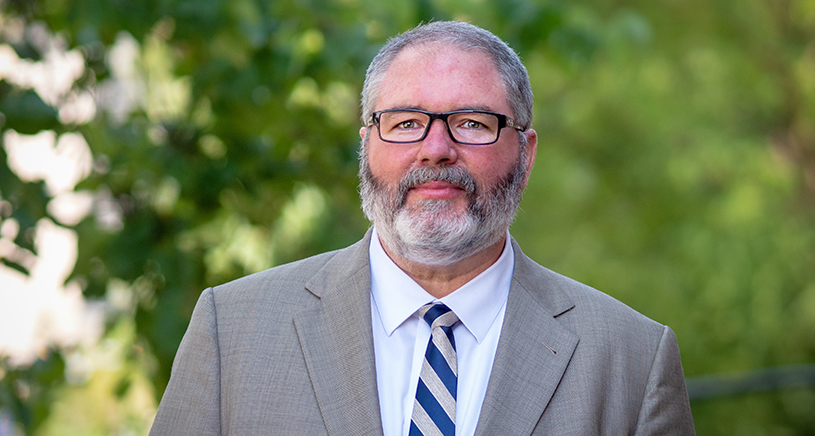
HMP635: Case Analysis & Competition Presentation
- Graduate level
- Residential
- Winter term(s) for residential students;
- 1 credit hour(s) for residential students;
- Instructor(s): Staff, Denise Anthony, (Residential);
- Prerequisites: HMP 600, HMP 615
- Description: This class is designed for students willing to represent the department at the next NAHSE intercollegiate team competition. The course will develop skills at analyzing strategically oriented cases in healthcare management. In addition, students learn presentation skills in a supportive environment with feedback from peers, faculty and alumni. Students selected to compete at NAHSE and other students selected based on performance in the initial term will be invited to be facilitators in the following winter term.

HMP637: Artificial Intelligence For Health Care Policy
- Graduate level
- Residential
- Winter term(s) for residential students;
- 3 credit hour(s) for residential students;
- Instructor(s): Rahul Ladhania (Residential);
- Prerequisites: None
- Description: Understand the role of AI and machine learning in healthcare and policy, focusing on opportunities, limitations, and real-world applications. Through case studies, discussions, projects, and speaker sessions, students will gain a nuanced understanding of AI’s role in healthcare transformation, complemented by exposure to relevant programming tools.
- Learning Objectives: Get a basic understanding of application of Machine Learning techniques: Identify key machine learning methods, understand their application in healthcare delivery, clinical decision-making, and risk prediction, and apply these techniques to health data - Critically Evaluate AI/ML in Healthcare: Analyze and critique the use of AI/ML in various domains of healthcare and health policy, understanding both its potential benefits and limitations. - Address Ethical and Social Implications: Evaluate the fairness, bias, and privacy concerns in AI applications, and understand the ethical and policy considerations relevant to healthcare - Gain introductory exposure to data analysis tools: Develop basic proficiency in using features of programming tools such as R to apply to relevant health data problems - Engage in Professional Development through Invited Guests and Project Work: Collaborate on a group project that explores a pressing AI/health policy topic, incorporating a data analysis component, and presenting findings through both written and oral presentations - Communicate Effectively in AI and Health Policy Contexts: Communicate complex AI/ML concepts clearly to both technical and non-technical audiences, and participate effectively in discussions around AI’s impact on healthcare.

HMP638: Measuring and Monitoring Population Health
- Graduate level
- Residential
- Winter term(s) for residential students;
- 3 credit hour(s) for residential students;
- Instructor(s):
- Not offered 2025-2026
- Prerequisites: .
- Undergraduates are allowed to enroll in this course.
- Description: This course is an introduction to the measurement and monitoring of population health. Fundamentals of measuring population health including the measurement of life expectancy, healthy life expectancy, infant and maternal mortality, fertility, reproductive, and contraceptive measures, and the population attributable risk fraction will be covered.
HMP640: Program Evaluation in Public Health
- Graduate level
- Residential
- Winter term(s) for residential students;
- 3 credit hour(s) for residential students;
- Instructor(s): Shawna Smith (Residential);
- Not offered 2025-2026
- Prerequisites: grad status
- Description: The Purpose of this course is to provide students with an understanding of the fundamentals of evaluation and research as applied to public health programs, policies and other types of interventions. The course covers impact, outcomes, process and participatory evaluation, and a number of research designs common in public health evaluation research, Students will gain skills in framing evaluation questions. In addition, students will gain skills needed to understand and critique published evaluation literature, and skills in measurement/data collection strategies. Class format includes lecture, discussion articles, and small group exercises. For final project, students will design and write and evaluation plan in the format of a proposal for funding.
- Syllabus for HMP640

HMP641: Practice For Human Resource Management For Health Care Administrators
- Graduate level
- Residential
- Winter term(s) for residential students;
- 1.5 credit hour(s) for residential students;
- Instructor(s): Staff (Residential);
- Prerequisites: HMP 600
- Advisory Prerequisites: HMP 600
- Description: This course provides students with the knowledge and skills necessary to understand the strategic role of human resources management in healthcare organizations. It explores the challenges and opportunities facing HR professionals in this field, including personnel management, employee engagement, and legal principles. Students will examine best practices for HR operations, with a focus on organizational development initiatives that enable HR to become a strategic business partner. By the end of the course, students will have a comprehensive understanding of the functional areas within HR and their contributions to a fully functional program that supports an organization's goals and objectives.
- Learning Objectives: 1. Understand the operations and strategic importance of HR in healthcare organizations, including its impact on achieving organizational goals. 2. Analyze and discuss HR issues that are likely to arise in healthcare organizations in the next 5-10 years. 3. Develop knowledge of strategic HR initiatives, including organizational and human resource assessments, development plans, recruitment, and metrics models. 4. Evaluate the role of organizational leaders and HR in shaping organizational culture and strategic HR initiatives. 5. Assess how HR contributes to the strategic and operational goals of healthcare organizations. 6. Understand the role of Strategic Human Resources Management in creating a positive work environment. 7. Develop strategies to increase the healthcare labor supply and decrease labor demand. 8. Analyze how various functions of HR, such as recruitment, selection, compensation, benefits, and training and development, impact employee performance and productivity. 9. Recognize and comply with employment laws that affect Human Resource Management in healthcare organizations. 10. Compare and contrast employee and management relations in both unionized and non-unionized environments. 11. Apply motivation theories to enhance employee engagement in healthcare organizations. 12. Design and evaluate compensation models that motivate employees and meet legal requirements. 13. Utilize Behavioral Event Interviewing techniques to improve recruitment and selection in healthcare organizations.
HMP653: Law and Public Health
- Graduate level
- Residential
- Winter term(s) for residential students;
- 3 credit hour(s) for residential students;
- Instructor(s): Victoria Convertino (Residential);
- Not offered 2025-2026
- Prerequisites: Grad Status
- Undergraduates are allowed to enroll in this course.
- Description: The purposes of this course are to examine the legal context of the relationship between the individual and the community, and to understand public health regulation in the context of a market-driven system. The goals of the course are for students to understand generally: constitutional authority and limits on governmental intervention in public health (i.e., individual rights vs. society's rights); the functions of and interactions between courts, legislatures, and regulators; how law will affect students as strategic thinkers in public health positions; how to recognize legal issues and communicate with attorneys; and the process of public health regulation and potential legal barriers to public health intervention strategies. Specific topics will vary, but will usually include: the nature and scope of public health authority; constitutional constraints on public health initiatives; tobacco control; youth violence; injury prevention; the spread of communicable disease; and regulating environmental risk. This class can be taken as an elective, in fulfillment of the law/politics requirement, or as a BIC requirement.
- Syllabus for HMP653
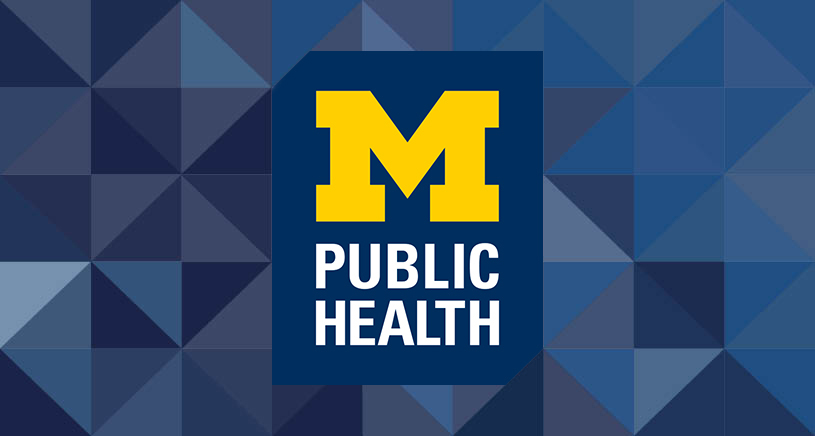
HMP663: Introduction to Economic Evaluation using Cost-Effectiveness
- Graduate level
- Residential
- Winter term(s) for residential students;
- 1 credit hour(s) for residential students;
- Instructor(s): David Hutton, Elisa Maffioli, (Residential);
- Prerequisites: HMP 600 and HMP 660
- Description: Survey course using cost-effectiveness tools to inform decisions about improving health. Analytical tools such as cost benefit analysis, decision analysis, and sensitivity analysis are utilized. Students will learn theoretical justifications for these tools as well as their limitations.
- Syllabus for HMP663


HMP669: Data Management And Visualization In Healthcare
- Graduate level
- Both Residential and Online MPH
- This is a second year course for Online students
- Winter term(s) for residential students; Winter term(s) for online MPH students;
- 1.5-3 credit hour(s) for residential students; 3 credit hour(s) for online MPH students;
- Instructor(s): Rahul Ladhania (Residential); Rahul Ladhania (Online MPH);
- Prerequisites: None
- Advisory Prerequisites: Graduate Standing
- Description: This course is an introduction to the use of relational databases and data visualization tools for decision-making. It covers: A. design and implementation of, and data retrieval from, small-to-medium relational database systems using Microsoft Access; and B. data manipulation, analysis and visualization using the R programming language.
- Syllabus for HMP669

HMP673: Health Program Management and Evaluation in Resource Poor Countries
- Graduate level
- Residential
- Winter term(s) for residential students;
- 2 credit hour(s) for residential students;
- Instructor(s):
- Not offered 2025-2026
- Prerequisites: EPID554
- Description: This course will introduce future leaders to the skills and techniques required in order to become effective program managers of health projects in resource poor countries. The course covers a diverse set of topics within the context of health programs in resource poor countries that include: project and process management; project sustainability and quality assurance; proposal/grant writing; human resource management; project and process management software and technology; and financial budget development and monitoring. Each session of two hours will consist of a one hour seminar followed by one hour of practical exercises through group discussion and application of skills/techniques to real world scenarios. The course will primarily rely on case study analysis, readings from a variety of management, global health other social science journals and personal experiences of invited SPH faculty/guest speakers.
- Learning Objectives: Students will have an understanding of the language and application of program management and evaluation tools/techniques to health programs in resource poor countries. Students will also appreciate the challenges of health program management in resource poor countries and how to identify appropriate tools/techniques to mitigate them through interactive exercises and hands-on applications. Other learning objectives are: 1) develop and enhance professional skills in program design, program monitoring and evaluation and resource allocation; 2) acquire the confidence, knowledge and skills needed to become effective program managers in global health practice; 3) equip students with the skills that are necessary to work effectively as a team member or team leader/facilitator; and 4) enable students to design, manage and evaluate health programs in resource poor countries.
HMP674: The Economics of Health Management and Policy II
- Graduate level
- Residential
- Winter term(s) for residential students;
- 2 credit hour(s) for residential students;
- Instructor(s): Edward Norton, Elisa Maffioli, (Residential);
- Prerequisites: HMP 660
- Description: The focus of the course is on how the demand for and supply of health care services interact to yield market outcomes (prices and quantities) in health and health care. The purpose of the course is to give students experience analyzing health management and health policy issues using economic tools.
- Syllabus for HMP674


HMP676: Introduction To Health Informatics
- Graduate level
- Executive Masters
- Winter term(s) for Executive Masters students;
- 3 credit hour(s) for Executive Masters students;
- Instructor(s): Theodore Hanss (Executive Masters);
- Prerequisites: None
- Advisory Prerequisites: None
- Description: Health informatics applies to a wide range of health-related application domains a set of methods to create and study information resources intended to improve individual to population health. The course explores the domains of clinical informatics, consumer health informatics, and public health informatics.
- Learning Objectives: 1. Describe challenges currently faced by individuals seeking to improve health using information resources in each of four application domains presented in the course, Clinical, Consumer Health, Public Health, and Biomedical Research. 2. Articulate what is required to develop and deploy health information resources that are truly assistive and helpful for their direct and indirect users, including the phases of developing proposals, developing implementations, and managing operations along with the necessary organizational change management methods. 3. Explain how and why the key methods, such as standards development, natural language processing, image processing, etc., used in health informatics are essential to creating information resources that have the potential to improve health. 4. Describe the components of a computing system’s architecture and how those components support the storage, manipulation, transformation, and use of health data. 5. Effectively link or connect the four concepts of infrastructure, health information exchange, interoperability, and standards in a manner that helps explain how these concepts interrelate to enable potentially improved health information resources. 6. Read and assess health informatics literature critically. 7. Assess key stakeholders and describe the implications of health informatics adoption for each stakeholder. 8. Be able to concisely explain confusing or challenging health informatics concepts (including policies, evaluation methods, and technical approaches) through your own writing and be able to argue for or against others’ positions about health informatics topics in your own words. 9. Describe, with depth of understanding and in detail, what health informatics is and is not, or what health informatics entails and does not entail, for an expert audience and also for an audience unfamiliar with the field.
- Syllabus for HMP676

HMP677: Health Care Organization: An International Perspective
- Graduate level
- Residential
- Fall, Winter term(s) for residential students;
- 3 credit hour(s) for residential students;
- Instructor(s): Jersey Liang (Residential);
- Not offered 2025-2026
- Prerequisites: Grad Status
- Undergraduates are allowed to enroll in this course.
- Description: Course examines health care systems in approximately eight developed and developing nations (e.g., United States, Germany, Japan, Canada, United Kingdom, China, Mexico, and Kenya). Comparisons made in: population health, health care financing and control,health professionals and their patients, health care organization, and health system performance and reform strategies.

HMP680: Special Topics in Health Management and Policy
- Graduate level
- Residential
- Fall, Winter term(s) for residential students;
- 1-3 credit hour(s) for residential students;
- Instructor(s): Staff (Residential);
- Prerequisites: none
- Description: Lecture, seminars and readings selected on a current or emerging topic or theme in health, management and policy. The specific material and format will vary by semester and instructor.
HMP681: Special Topics In Health Management And Policy
- Graduate level
- Residential
- Fall, Winter term(s) for residential students;
- 1-3 credit hour(s) for residential students;
- Instructor(s): David Mendez, Rahul Ladhania, Richard Hirth, Matthew Comstock,Staff, April Zeoli, (Residential);
- Prerequisites: None
- Undergraduates are allowed to enroll in this course.
- Description: Lecture, seminars and readings selected on a current or emerging topic or theme in health, management and policy. The specific material and format will vary by semester and instructor.
- Learning Objectives: Will vary by topic and instructor.





HMP682: Integrated Learning Experience in Health Management and Policy
- Graduate level
- Both Executive Masters and Residential
- Winter term(s) for Executive Masters and residential students;
- 3 credit hour(s) for Executive Masters and residential students;
- Instructor(s): Matthew Comstock, Christine La Jeunesse, (Residential/Executive Masters);
- Prerequisites: None
- Advisory Prerequisites: Second year HMP masters candidate or Perm Instr
- Description: Capstone experience for all 2nd year HMP students that blends theory and practice beyond classroom problem-solving. Students utilize the skills and competencies developed during other courses to solve an actual problem or question within an organization.
- This course is cross-listed with .
- Syllabus for HMP682


HMP685: The politics of Public Health Policy
- Graduate level
- Residential
- Winter term(s) for residential students;
- 3 credit hour(s) for residential students;
- Instructor(s): Holly Jarman, Scott Greer, (Residential);
- Not offered 2025-2026
- Prerequisites: Grad Standing
- Description: Policy requires politics: behind every positive or negative decision governments make, there are elected politicians, politically skilled officials, journalists, and other stakeholders. Understanding the world of politics is crucial to influencing and implementing policies for public health. Indeed, it is impossible to understand public health policy outside of its political context. This class presents the basic institutions and politics of contemporary public health policymaking through studies of institutions and contemporary policy debates. Through analysis of case studies including obesity, state health plans, smoking and pharmaceutical regulation, students will explore the influence of politics on the definitions and decisions of public health issues. They will leave the class with an understanding of how politics explains current public health policymaking debates and an improved ability to understand the politics of major public health policy issues. This class can be taken as an elective, as a BIC requirement, or in fulfillment of the HMP law/politics requirement.
- Syllabus for HMP685


HMP687: Health Care Negotiation
- Graduate level
- Residential
- Winter term(s) for residential students;
- 3 credit hour(s) for residential students;
- Instructor(s):
- Not offered 2025-2026
- Prerequisites: None
- Description: Changes in health care require collaboration between disciplines and professionals. Negotiation, a fundamental of organized behavior, is especially challenging in health care because of the large number of stakeholders and the sensitivity around care itself. Conflict management can be achieved through the use of negotiating techniques, with significant economic savings.
HMP690: Readings in Health Management and Policy
- Graduate level
- Residential
- Fall, Winter, Spring-Summer term(s) for residential students;
- 1-4 credit hour(s) for residential students;
- Instructor(s): Staff (Residential);
- Prerequisites: Grad Status and Perm Instr
- Description: Directed readings or research on selected topics and problems relevant to health management and policy. May be elected more than once.
HMP803: Doctoral Seminar in Health Services and Systems Research I
- Graduate level
- Residential
- Winter term(s) for residential students;
- 1 credit hour(s) for residential students;
- Instructor(s): Denise Anthony (Residential);
- Prerequisites: None
- Description: The health services research module will provide an introduction to the philosophy, history, and approaches of health services research and a sample of research topics that have been approached by health services systems researchers.
- Learning Objectives: Students should gain a better understanding of the content of the field of health services research and the diverse approaches and uses of this research.

| Department | Program | Degree | Competency | Specific course(s) that allow assessment | HMP | Health Services Organization and Policy | PhD | Critically evaluate the prior literature in health services organization and policy, including motivation, theory, data quality, methods, results, conclusions, and policy recommendations | HMP802, HMP803, HMP804, HMP805, HMP806, HMP835 | HMP | Health Services Organization and Policy | PhD | Develop research questions grounded in theory to expand knowledge about health services organization and policy | HMP802, HMP803, HMP804, HMP805, HMP806, HMP835 |
|---|
HMP806: Doctoral Seminar in Health Services and Systems Research IV
- Graduate level
- Residential
- Winter term(s) for residential students;
- 1 credit hour(s) for residential students;
- Instructor(s): Richard Hirth (Residential);
- Prerequisites: None
- Description: The economics module will provide an introduction to economic reasoning and methods and a sample of research topics that have been approached by economists working on health and health care. Readings will be a mix of classic papers and recent papers that illustrate this approach yet are accessible to both economists and students training in other disciplines.
- Learning Objectives: Students should gain a better understanding of the role economics has played in health services research and public health and be able to identify how the approaches and questions addressed by economists compare to those taken by researchers specializing in other social science disciplines.
- Syllabus for HMP806

| Department | Program | Degree | Competency | Specific course(s) that allow assessment | HMP | Health Services Organization and Policy | PhD | Critically evaluate the prior literature in health services organization and policy, including motivation, theory, data quality, methods, results, conclusions, and policy recommendations | HMP802, HMP803, HMP804, HMP805, HMP806, HMP835 | HMP | Health Services Organization and Policy | PhD | Develop research questions grounded in theory to expand knowledge about health services organization and policy | HMP802, HMP803, HMP804, HMP805, HMP806, HMP835 |
|---|
HMP809: Methods Of Inquiry In Health Research
- Graduate level
- Residential
- Winter term(s) for residential students;
- 3 credit hour(s) for residential students;
- Instructor(s): Holly Jarman (Residential);
- Prerequisites: None
- Description: Explores the nature, process and ethics of systematic inquiry in the field of health research. The focus is on the fundamentals of research design and emphasis is placed on ethical principles and research procedures that are applicable in different research contexts (quantitative, qualitative, and mixed methods).
- This course is cross-listed with PSYCH 809 - I want to remove this cross listing in the Department of Psychology department.

| Department | Program | Degree | Competency | Specific course(s) that allow assessment | HMP | Health Services Organization and Policy | PhD | Create a rigorous study design to test the research questions posed and to understand the strengths and limitations of that study design | HMP826, HMP809, HMP835, HMP809 |
|---|
HMP815: Readings in Medical Care
- Graduate level
- Residential
- Fall, Winter, Spring, Spring-Summer, Summer term(s) for residential students;
- 1-4 credit hour(s) for residential students;
- Instructor(s): Staff (Residential);
- Prerequisites: Perm Instr
- Description: Directed readings in special areas. May be elected more than once. Primarily for doctoral students in Health Services Organization and Policy.
HMP826: Applied Econometrics in Health Services Research
- Graduate level
- Residential
- Winter term(s) for residential students;
- 3 credit hour(s) for residential students;
- Instructor(s): Edward Norton (Residential);
- Prerequisites: Econ571 or equivalent
- Description: Application of advanced econometric methods to health services research. Focuses on categorical data analysis, simultaneous equations, nonlinear expenditure models, duration models, and specification tests. Students will apply these techniques in weekly problems sets and an empirical term paper.
- Syllabus for HMP826

| Department | Program | Degree | Competency | Specific course(s) that allow assessment | HMP | Health Services Organization and Policy | PhD | Create a rigorous study design to test the research questions posed and to understand the strengths and limitations of that study design | HMP826, HMP809, HMP835, HMP809 | HMP | Health Services Organization and Policy | PhD | Apply advanced quantitative and/or qualitative methods appropriate for health services organization and policy research appropriately in one's own research | HMP826, HMP835 | HMP | Health Services Organization and Policy | PhD | Disseminate rigorous research findings through clear, persuasive written and oral communication to both peers and non-technical audiences. | HMP826, HMP835 |
|---|
HMP833: Research Topics in Sociology and Health Care Organization
- Graduate level
- Residential
- Fall, Winter term(s) for residential students;
- 3 credit hour(s) for residential students;
- Instructor(s): Staff (Residential);
- Prerequisites: HMP doctoral students or P.I.
- Description: HSOP Program requirements. A topic in sociology and health care organization-policy is selected each term for detailed critical, theoretical, and methodological analysis leading to development, in class, of propositions aimed at advancing scientific status of the area of inquiry. Analysis and development of content follows logic of the research paradigm. Required of students with a sociology cognate in the doctoral program in Health Services Organization and Policy
HMP835: Research Practicum
- Graduate level
- Residential
- Fall, Winter, Spring-Summer term(s) for residential students;
- 3-6 credit hour(s) for residential students;
- Instructor(s): Staff (Residential);
- Prerequisites: HMP 809, Perm Instr
- Description: The purpose of this course is to allow each student, early in his or her doctoral career, to gain experience in the actual performance of health services research. The experience will enable students to build sound research skills and to gain knowledge of the nature of inquiry in their discipline as well as in the field of health services research. Each student in the HSOP program is expected to elect a total of 6 credits in HMP 835.
| Department | Program | Degree | Competency | Specific course(s) that allow assessment | HMP | Health Services Organization and Policy | PhD | Critically evaluate the prior literature in health services organization and policy, including motivation, theory, data quality, methods, results, conclusions, and policy recommendations | HMP802, HMP803, HMP804, HMP805, HMP806, HMP835 | HMP | Health Services Organization and Policy | PhD | Develop research questions grounded in theory to expand knowledge about health services organization and policy | HMP802, HMP803, HMP804, HMP805, HMP806, HMP835 | HMP | Health Services Organization and Policy | PhD | Create a rigorous study design to test the research questions posed and to understand the strengths and limitations of that study design | HMP826, HMP809, HMP835, HMP809 | HMP | Health Services Organization and Policy | PhD | Apply advanced quantitative and/or qualitative methods appropriate for health services organization and policy research appropriately in one's own research | HMP826, HMP835 | HMP | Health Services Organization and Policy | PhD | Disseminate rigorous research findings through clear, persuasive written and oral communication to both peers and non-technical audiences. | HMP826, HMP835 |
|---|
HMP990: Dissertation/Precandidates
- Graduate level
- Residential
- Fall, Winter, Spring, Spring-Summer, Summer term(s) for residential students;
- 1-8 credit hour(s) for residential students;
- Instructor(s): Staff (Residential);
- Prerequisites: None
- Description: Election for dissertation work by doctoral students not yet admitted to status as candidate.
HMP995: Dissertation Research for Doctorate in Philosophy
- Graduate level
- Residential
- Fall, Winter, Spring, Spring-Summer, Summer term(s) for residential students;
- 8 credit hour(s) for residential students;
- Instructor(s): Staff (Residential);
- Prerequisites: None
- Description: Election for dissertation work by doctoral students admitted as candidates
NUTR510: Nutrition in the Life Cycle
- Graduate level
- Residential
- Winter term(s) for residential students;
- 3 credit hour(s) for residential students;
- Instructor(s): Olivia Anderson (Residential);
- Prerequisites: Introductory biology and introductory chemistry
- Undergraduates are allowed to enroll in this course.
- Description: Nutrition in the Life Cycle will cover nutritional needs of individuals during critical stages of development. Students will learn about the biological basis for nutritional requirements in normal development and maintaining health in adulthood. Consequences of over- and under-nutrition and how to identify and address these issues will be discussed.
- This course is cross-listed with PUBHLTH310.

NUTR518: Food Literacy for All
- Graduate level
- Residential
- Winter term(s) for residential students;
- 2 credit hour(s) for residential students;
- Instructor(s): Staff (Residential);
- Prerequisites: None
- Advisory Prerequisites: None
- Undergraduates are allowed to enroll in this course.
- Description: This course offers a unique opportunity for students to gain an interdisciplinary overview of crises and opportunities in today's food system through a weekly lecture series bringing high-profile speakers to campus from diverse sectors: academia, grassroots movements, public health, farming, and more. Designed as an academic-community partnership, the course is led by a UM faculty member (Leung) with a leader in food justice in Detroit (Hebron), along with the program manager of the UM Sustainable Food Systems Initiative (Shapiro).
- Learning Objectives: 1) Describe the term "food system" and influencing factors 2) Discuss how food systems impact public and environmental health 3) Describe strategies to promote health equity within local and national food systems 4) Propose opportunities for improving the food system and the social and environmental levels
- This course is cross-listed with EAS 639 ENVIRON 314 PUBHLTH 318 (pending) in the SEAS, LSA Program in the Environment, SPH department.
NUTR525: U.s. Food Policy
- Graduate level
- Residential
- Winter term(s) for residential students;
- 3 credit hour(s) for residential students;
- Instructor(s): Andrew Jones (Residential);
- Not offered 2025-2026
- Prerequisites: None
- Advisory Prerequisites: None
- Undergraduates are allowed to enroll in this course.
- Description: This course examines how food policies in the U.S. are developed and implemented as well as their impacts on public health, food security and societal well-being. It also examines theories of the policy process and frameworks for undertaking policy analysis.
- Learning Objectives: During this course, students will: 1) read and critically assess empirical analyses of U.S. food policies through texts, scientific articles, and policy case studies; 2) practice communicating critical analysis of research and policies through formal presentations; 3) facilitate in-class discussion and debate amongst peers; 4) practice developing legislative histories and policy memos that involve critical analysis of the policy process; 5) practice receiving constructive feedback from peers and incorporating it into theoretical thinking and writing; and 6) provide respectful and thoughtful feedback to their peers.

NUTR540: Maternal and Child Nutrition
- Graduate level
- Residential
- Winter term(s) for residential students;
- 2 credit hour(s) for residential students;
- Instructor(s): Suzanne Cole (Residential);
- Prerequisites: None
- Description: This course provides a comprehensive introduction to the nutritional requirements of pregnancy, lactation, infancy, childhood, and adolescence. Main topics include: physiologic and metabolic adaptations of pregnancy and lactation, maternal nutrition during pregnancy and lactation, composition of human milk and formula, feeding practices of infants and toddlers, and the nutrient requirements of infants, children, and adolescents. At the conclusion of this course, students will have gained a sufficient foundation in maternal and child nutrition to better understand the relevant scientific literature. Didactic lectures and guest presentations accompanied by class discussions will provide a breadth of maternal and child nutrition knowledge.

NUTR578: Practical Projects
- Graduate level
- Residential
- Fall, Winter, Spring-Summer term(s) for residential students;
- 1-4 credit hour(s) for residential students;
- Instructor(s): Staff (Residential);
- Prerequisites: None
- Description: Practical Projects is the application of theory and principles of Nutritional Sciences to individual community-based public health settings. Course requirements include an approved practical project related to Nutritional Sciences in consultation with a faculty advisor. The experience is documented in an integrative paper demonstrating the scientific application of NS theories and principles to the practical project. May be elected more than once. Enrollment is limited to NS students with at least two full terms completed prior to registration.
NUTR601: Interprofessional Education And Teamwork For The Nutrition Professional
- Graduate level
- Residential
- Winter term(s) for residential students;
- 1 credit hour(s) for residential students;
- Instructor(s): Susan Aaronson (Residential);
- Prerequisites: Must be enrolled in the Department of Nutritional Sciences
- Advisory Prerequisites: None
- Description: This course will familiarize nutrition students with IPE through the lens of an allied health team and the patient perspective. Learners will examine their unique role as the nutrition expert on an interprofessional team. Using the IPE online modules, LIFE program and in-person workshops with the instructor.
- Learning Objectives: LIFE Learning Objectives: 1.)Articulate understanding of interprofessional team roles and the value of each role in effective healthcare of patients and the community. 2.)Develop team work skills to work cooperatively and interdependently as a team member demonstrating preparedness, engagement and active collaboration using one’s unique professional knowledge and skills. 3.)Identify and describe responses, reactions, interactions of the various professional service providers that patients and families found beneficial or non-beneficial in their healthcare experience. 4.)Examine and articulate increased awareness of one’s own beliefs, culture, values and biases and how these impact engagement and care of patients and families. 5.)Identify and articulate an understanding of the social determinants impacting an individual patient’s illness experience and the impact on patient coping and functioning across the continuum of diagnosis, treatment and health outcomes. 6.)Consider a social-ecological model to reflect on diverse and multi-faceted dimensions of an individual patient-experience of illness including one’s sense of self, relationships, physical, mental and spiritual functioning, coping, etc. IPE module Learning Objectives: -Understand the value, context, and significance of IPE during health professional training to improve future licensed practice and patient health outcomes -Recognize and describe the 5 IPE competencies -Identify the attributes of a functioning interprofessional team, including how you might contribute to an effective team -Identify how diverse social identities and backgrounds of an interprofessional team (including the patient) will impact how care is delivered and received Overall course Learning Objectives: -Learn about and engage in interprofessional education (IPE) -Utilize reflective skills for lifelong learning -Express yourself as the nutritional professional -Seek feedback to meet and exceed personal standards of performance -Articulate the impact that your public health nutrition experiences have on yourself and society -Build and sustain a network of professional relationships

NUTR602: Communication, Leadership And Management In Dietetics
- Graduate level
- Residential
- Winter term(s) for residential students;
- 3 credit hour(s) for residential students;
- Instructor(s): Susan Aaronson (Residential);
- Prerequisites: Only open to MPH students and MS NUTR with a dietetics subplan
- Description: This course integrates communication skills necessary to become effective leaders and managers within the field of Dietetics. With this skill set and confidence, students will explore and apply leadership and management theories, principles, skills and tools required to manage and lead effectively.
- Learning Objectives: Uses effective and ethical communication, collaboration and advocacy skills Demonstrates leadership skills to guide practice Applies principles of organization management Applies project management principles to achieve project goals and objectives Apply effective and ethical communication skills and techniques to achieve desired goals and outcomes. Select mode of communication appropriate to the messaging to meet the needs of the audience. Communicate at the appropriate level and understands emotions and emotional situations. Engage in self-reflective practice activities to develop and maintain ongoing competence and professional behaviors. Disseminate skills, knowledge, and data obtained from summer experience or research work. Apply feedback to meet and exceed personal standards of performance. Develop confidence in your expertise as a nutrition public health professional.

NUTR615: Foundations In Maternal And Child Health
- Graduate level
- Residential
- Winter term(s) for residential students;
- 2 credit hour(s) for residential students;
- Instructor(s): Karen Peterson (Residential);
- Prerequisites: None
- Description: This course provides a foundation for advanced study and practice in maternal and child health. Students will explore how Title V MCH policies and programs at federal and state level shape health outcomes and service delivery across the life course. NUTR 615 is required for students completing the MCH Certificate.
- Learning Objectives: 1. Describe key theoretical frameworks relevant to human growth, development, and major life-course transitions across maternal and child health (MCH) populations, including women, infants, children, adolescents, and children and youth with special health care needs (CYSHCN). 2. Identify typical patterns of growth and development and explain how these relate to health outcomes across the life course, from the prenatal period through adulthood. 3. Describe the major social, cultural, biological, and environmental factors that influence health status and contribute to differences in health outcomes across MCH populations. 4. Describe key health indicators, data sources and surveillance systems used to assess the health of MCH populations and track progress toward national and state goals. 5. Describe major U.S. policies, programs, systems, and services designed to promote the health and well-being of MCH populations and their families. 6. Articulate the role of the federal Title V Maternal and Child Health Services Block Grant program in improving health outcomes across MCH populations. 7. Identify major federal public programs and financing mechanisms that support the health of women, infants, children, adolescents, CYSHCN, and their families.

NUTR620: Multivariate Analysis of Nutrition Related Studies
- Graduate level
- Residential
- Winter term(s) for residential students;
- 3 credit hour(s) for residential students;
- Instructor(s): Edward Ruiz-Narvaez (Residential);
- Prerequisites: BIOSTAT 521 or Instructor consent
- Description: This course will teach students how to use multivariate statistical techniques to analyze nutritional data. Students will develop skills for the understanding, interpretation, and communication of nutrition-related results on relation to different health outcomes. Students will present a final report with the synthesis and conclusions of all their analyses.
- Learning Objectives: The student will learn to: -Carry out multivariate analysis to evaluate association between dietary exposures, biomarkers, and health outcomes. -Derive, using principal component analysis, and interpret dietary patterns from dietary intake data. -Summarize, present, and discuss results of nutrition related studies. -Critically read relevant literature.

NUTR626: Controversial Topics In Nutrition
- Graduate level
- Residential
- Winter term(s) for residential students;
- 3 credit hour(s) for residential students;
- Instructor(s): Ana Baylin (Residential);
- Prerequisites: None
- Advisory Prerequisites: Encouraged to have some introductory knowledge of Epidemiology and Biostatistics
- Undergraduates are allowed to enroll in this course.
- Description: This public health oriented course will provide students the opportunity to advance their knowledge in nutrition and health research from a population perspective and help them to better interpret epidemiologic studies on nutrition

NUTR631: Metabolism of Vitamins & Minerals
- Graduate level
- Residential
- Winter term(s) for residential students;
- 3 credit hour(s) for residential students;
- Instructor(s): Young-Ah Seo (Residential);
- Prerequisites: EHS 630
- Description: This course provides an in-depth introduction to vitamin and mineral metabolism with particular emphasis on nutrient bioavailability and absorption, transport and tissue accumulation, regulation of nutrient metabolism and homeostasis, and nutrient function. Other topics include the health effects of inadequate and excessive micronutrient intake, methods used to estimate nutrient requirements and establish nutrient intake reference and upper limit levels. The depth of micronutrient metabolism covered in this course will provide a sufficient background for students to better understand the scientific literature of individual micronutrients. The course will consist of lectures on the major metabolic/regulatory topics for each micronutrient as well as discussions of nutrient-related topics from the current scientific literature.

| Department | Program | Degree | Competency | Specific course(s) that allow assessment | NUTR | MPH | Explain how macro- and micronutrient intake drive metabolic pathways and physiological function | NUTR630, NUTR631 | NUTR | MS | Deduce how specific micronutrient deficiencies relate to poor health including the mechanism(s) of action | NUTR631 | NUTR | Molecular and Biochemical Nutrition | PhD | Predict the consequences of nutrient deficiencies or excesses based on principles of macronutrient and micronutrient biochemistry | NUTR630, NUTR631, Doctoral Qualifying Exam | NUTR | Molecular and Biochemical Nutrition | PhD | Predict how genetic variations in enzymes, nutrient transporters or regulators could affect human health and disease | NUTR630, NUTR631, NUTR638, Doctoral Qualifying Exam | NUTR | Nutritional Epidemiology | PhD | Explain how the biological nature of vitamins and minerals relates to population health | NUTR631 | NUTR | Nutritional Interventions | PhD | Apply knowledge of macronutrients and micronutrients to nutrition policies and programs addressing health of populations | NUTR630, NUTR631 |
|---|
NUTR633: Evaluation of Global Nutrition Programs
- Graduate level
- Residential
- Winter term(s) for residential students;
- 3 credit hour(s) for residential students;
- Instructor(s): Andrew Jones (Residential);
- Not offered 2025-2026
- Prerequisites: None
- Advisory Prerequisites: At least one foundational course in both biostatistics and epidemiology.
- Description: This course will provide students with an understanding of the principles of program evaluation with an emphasis on global nutrition programs. The course will create a space for discussion and practice in which knowledge can be applied to current global nutrition issues through research and critical analysis.

| Department | Program | Degree | Competency | Specific course(s) that allow assessment | NUTR | MPH | Develop appropriate designs to rigorously monitor and evaluate nutrition programs and policies in diverse contexts | NUTR633, NUTR650, NUTR677 | NUTR | MPH | Apply public health theoretical frameworks and nutrition research evidence to inform public health actions | NUTR642, NUTR650, NUTR677, NUTR633 |
|---|
NUTR636: Medical Nutrition Therapy I
- Graduate level
- Residential
- Winter term(s) for residential students;
- 2 credit hour(s) for residential students;
- Instructor(s): Liz Hudson (Residential);
- Prerequisites: NUTR 630
- Description: Medical nutrition therapy and disease pathophysiology taught for malnutrition, starvation, metabolic stress, gastrointestinal, cardiovascular, diabetes and neoplasm. Current controversies are briefly introduced. Clinical nutrition screening, assessment, use of clinical laboratory data, and physical assessment are also introduced.

NUTR639: Pathophysiology of Obesity
- Graduate level
- Residential
- Winter term(s) for residential students;
- 3 credit hour(s) for residential students;
- Instructor(s): Peter Mancuso (Residential);
- Prerequisites: NUTR 630
- Description: This course provides a framework for understanding the etiology, pathophysiology, and treatment of obesity. The course content will emphasize the influence of physiologic factors that contribute to overconsumption of food, the pathophysiologic consequences of obesity, and current methods of treatment.

| Department | Program | Degree | Competency | Specific course(s) that allow assessment | NUTR | MPH | Suggest interventions that address the role of the environment, food, and lifestyle choices to enhance wellness in diverse individuals and populations | NUTR639 | NUTR | Molecular and Biochemical Nutrition | PhD | Articulate potential mechanisms by which specific dietary, behavioral factors, and physical activity contribute to weight gain and loss | NUTR639 |
|---|
NUTR642: Community Nutrition
- Graduate level
- Residential
- Winter term(s) for residential students;
- 2 credit hour(s) for residential students;
- Instructor(s): Suzanne Cole (Residential);
- Prerequisites: None
- Description: You will learn about the principles and programs developed to improve the nutritional status of individuals and groups in a community. Didactic lectures and guest presentations accompanied by a community assessment and a nutrition education project provide students the opportunity to integrate and apply knowledge through a hands-on approach.

| Department | Program | Degree | Competency | Specific course(s) that allow assessment | NUTR | MPH | Apply public health theoretical frameworks and nutrition research evidence to inform public health actions | NUTR642, NUTR650, NUTR677, NUTR633 | NUTR | MPH | Explain dietary influences on health outcomes, and identify population-based strategies to improve nutritional health | NUTR642, NUTR650, NUTR677 |
|---|
NUTR650: Socio-ecological Approaches to Child and Adolescent Nutrition
- Graduate level
- Residential
- Winter term(s) for residential students;
- 3 credit hour(s) for residential students;
- Instructor(s): Kate Bauer (Residential);
- Prerequisites: graduate student status,graduate student status
- Undergraduates are allowed to enroll in this course.
- Description: This course utilizes a socio-ecological approach to provide a comprehensive introduction to issues and current debates related to public health nutrition among children and adolescents. Throughout the semester, woven through all of these topics, there will be extensive consideration of appropriate research methodologies and critical reading of current scientific literature.
- Syllabus for NUTR650

| Department | Program | Degree | Competency | Specific course(s) that allow assessment | NUTR | MPH | Develop appropriate designs to rigorously monitor and evaluate nutrition programs and policies in diverse contexts | NUTR633, NUTR650, NUTR677 | NUTR | MPH | Apply public health theoretical frameworks and nutrition research evidence to inform public health actions | NUTR642, NUTR650, NUTR677, NUTR633 | NUTR | MPH | Explain dietary influences on health outcomes, and identify population-based strategies to improve nutritional health | NUTR642, NUTR650, NUTR677 | NUTR | Nutritional Interventions | PhD | Demonstrate familiarity of behavioral change theories and conceptual frameworks relevant to nutrition interventions in clinical and/or community contexts | NUTR650 |
|---|
NUTR651: Physical Activity and Nutrition
- Graduate level
- Residential
- Winter term(s) for residential students;
- 3 credit hour(s) for residential students;
- Instructor(s): Peter Mancuso (Residential);
- Prerequisites: NUTR 630 KINES 540,,NUTR 630 KINES 540,NUTR 630 KINES 540,,NUTR 630 KINES 540
- Description: Students will learn about the impact of physical activity on the nutrition requirements in active individuals and special populations with chronic disease. Students will also learn how to use exercise and diet modification for weight loss and maintenance through lectures and hands on activities.
- This course is cross-listed with KINES 543 in the Kinesiology department.

NUTR688: Research Topics in Nutritional Sciences
- Graduate level
- Residential
- Fall, Winter term(s) for residential students;
- 0.5 credit hour(s) for residential students;
- Instructor(s): Young-Ah Seo, Andrew Jones, (Residential);
- Prerequisites: None
- Description: This course will introduce students to current topics in nutrition research. Students will attend seminars focused on research that will demonstrate the impact of nutrition on human health. Students are encouraged to pose questions to the speaker and write 5-7 bullet points that provide a summary of each presentation.
- This course is cross-listed with .


| Department | Program | Degree | Competency | Specific course(s) that allow assessment | NUTR | MS | Interpret key findings from advanced nutritional research | NUTR688, NUTR698/9 | NUTR | Molecular and Biochemical Nutrition | PhD | Describe findings from presentations of novel nutritional research | NUTR688 | NUTR | Nutritional Epidemiology | PhD | integrate findings of novel nutrition research with existing knowledge of nutritional epidemiology | NUTR688 | NUTR | Nutritional Interventions | PhD | Integrate findings from presentations of novel nutritional research with existing knowledge of nutritional interventions | NUTR688 |
|---|
NUTR690: Supervised Experiential Learning
- Graduate level
- Residential
- Fall, Winter term(s) for residential students;
- 0.5-3 credit hour(s) for residential students;
- Instructor(s): Patti Ramos, Liz Hudson, Suzanne Cole, Kendrin Sonneville, (Residential);
- Prerequisites: Students must be enrolled in the Department of Nutritional Sciences MPH or MS (Clinical Nutrition or Nutritional Sciences) Dietetics program.
- Description: This course will provide Supervised Experiential Learning hours for students enrolled in the Dietetics, Path to RDN training program. The course will integrated experiential learning each semester, relevant to the didactic content.
- Learning Objectives: See syllabus for list of competencies that are specific to each course section.
- This course is cross-listed with .




NUTR691: Research Seminar For Clinical Nutrition I
- Graduate level
- Residential
- Winter term(s) for residential students;
- 2 credit hour(s) for residential students;
- Instructor(s): Olivia Anderson (Residential);
- Prerequisites: None
- Description: This course will support the development and preliminary defense of your clinical nutrition project proposal. You will actively learn about the steps required to create a strong research project proposal. Areas that we will focus on during class include, but are not limited to: conducting a literature review, developing a research aims, technical writing, addressing prioritized clinical audiences, and addressing feasibility. You will apply these various topics through activities such as small group share-outs, small group assistance on research methods development, writing workshops, journal clubs, or drafting communication to your advisors. Your work will culminate in a project proposal with an associated presentation (aka “defense of your project proposal”). Overall, this course will prepare you to embark on your individual clinical research journey.
- Learning Objectives: Familiarize yourself with health equity communication framework (or similar frameworks) and its application to clinical research and outward facing deliverables Conduct appropriate literature searches on relevant nutrition research Understand the components of a research manuscript Formulate a scientific research question and aims for a clinical research project Develop the major components of a research project proposal ??Practice oral presentation skills to defend your research project proposal

NUTR693: Research Seminar For Clinical Nutrition III
- Graduate level
- Residential
- Winter term(s) for residential students;
- 1 credit hour(s) for residential students;
- Instructor(s): Liz Hudson (Residential);
- Prerequisites: NUTR 692
- Description: This course is the final installment in the research seminar series and aims to support the creation and delivery of your clinical nutrition project presentations. We will build on the research and project development carried out in NUTR 691 and 692.
- Learning Objectives: 1. Communicate with clinical dietitians to share about your research/project findings 2. Develop a clear, concise, and logical presentation of your clinical nutrition research project 3. Practice oral presentations skills of your clinical nutrition project presentation (e.g., peer to peer practice) 4. Practice handling questions and feedback to improve the effectiveness of the presentation 5. Collaborate professionally with research teams (i.e., mentors) 6. Present research confidently to both professional and lay audiences

NUTR698: Research in Nutritional Sciences
- Graduate level
- Residential
- Fall, Winter term(s) for residential students;
- 1-6 credit hour(s) for residential students;
- Instructor(s): Staff (Residential);
- Prerequisites: None
- Description: Original research investigation of a special topic in nutritional sciences.
NUTR699: Masters Thesis in Nutritional Sciences
- Graduate level
- Residential
- Fall, Winter term(s) for residential students;
- 1 credit hour(s) for residential students;
- Instructor(s): Staff (Residential);
- Prerequisites: Perm of Thesis Advisor
- Description: This course shall be elected by students enrolled in Master's degree programs that require a formal written thesis as a condition of program completion. The thesis shall be defended in front of the student's thesis committee. The course grade will reflect the student's accomplishments relative to the thesis and its defense. The course is to be elected only once.
NUTR701: Research Methods In Nutritional Sciences
- Graduate level
- Residential
- Winter term(s) for residential students;
- 3 credit hour(s) for residential students;
- Instructor(s): Ana Baylin (Residential);
- Prerequisites: None
- Advisory Prerequisites: None
- Description: This course will introduce research methods to 1st year MS and PhD students. Students will develop their own research proposals, engage in the process of peer review, and present their final proposals to the class. Students will also learn data cleaning and management skills and write a data analysis plan.
- Learning Objectives: 1. Develop a framework for understanding nutrition and public health research 2. Critically evaluate nutrition research 3. Formulate a scientific research question and relevant hypotheses for a given topic 4. Conduct a review of the literature 5. Understand the components of a research manuscript and styles of scientific writing 6. Practice the art of peer review and providing constructive feedback 7. Develop the major components of a research proposal 8. Develop a data analysis plan 9. Apply data cleaning and management skills to large datasets

NUTR703: Research Methods in Nutritional Sciences III
- Graduate level
- Residential
- Winter term(s) for residential students;
- 3 credit hour(s) for residential students;
- Instructor(s): Erica Jansen (Residential);
- Prerequisites: None
- Advisory Prerequisites: NUTR701 and NUTR702, or equivalent (must have results from a research project completed and ready to be written for a publication)
- Description: This course is designed to guide 2nd year MS students through the writing of their thesis and the preparation of the thesis defense. Class sessions will include instruction on different aspects of writing and presentation, structured writing time, peer review, journal club discussions, and presentation practice.
- Learning Objectives: 1. Present research findings through tables, written results, PowerPoint presentations and orally 2. Compare/contrast study findings with current literature 3. Make public health recommendations and/or highlight future directions based on research findings 4. Engage in discussions of research findings with colleagues, synchronously (in-person) and asynchronously (written peer review) 5. Interpret key findings from advanced nutritional research 6. Understand the process of submitting an article to a journal for publication

NUTR796: Special Topics in Nutritional Sciences
- Graduate level
- Residential
- Fall, Winter term(s) for residential students;
- 1-6 credit hour(s) for residential students;
- Instructor(s): Dana Dolinoy, Suzanne Cole, Kendrin Sonneville, Karen Peterson, Peter Mancuso, Andrew Jones, Ana Baylin, Olivia Anderson, Susan Aaronson, (Residential);
- Prerequisites: None
- Undergraduates are allowed to enroll in this course.
- Description: This course will be used by faculty members to teach special topics related to Nutritional Sciences.









NUTR830: Advanced Topics in Macronutrient Metabolism
- Graduate level
- Residential
- Winter term(s) for residential students;
- 2 credit hour(s) for residential students;
- Instructor(s): Dave Bridges (Residential);
- Prerequisites: NUTR630 and NUTR631
- Description: This course is an elective designed for research-based molecular nutrition students. It will introduce topics and methods in biochemical and molecular nutrition research. We will use group discussions and individual projects to enhance critical analysis skills and learn how to follow in the rapidly advancing field of molecular nutrition.
- Learning Objectives: * Develop high critical thinking skills such as synthesis and projecting future studies within recent macromolecular nutrition topics. * Learn how to discuss the strengths and weaknesses of nutrition research. * Gain fluency in the molecular nutrition literature including how to assess the validity of claims. * Familiarize yourself with the process of developing research grant proposals and reviews. * Identify limitations in research articles, and how this affects the rigor and universality of their conclusions. * Interpret and evaluate modern molecular nutrition methods based on their implementation and appropriate controls. * Evaluate emerging themes in macromolecular nutrition that affect individual responses to the diet.

| Department | Program | Degree | Competency | Specific course(s) that allow assessment | NUTR | Molecular and Biochemical Nutrition | PhD | Create a rigorous study design to test a research question based on a critical evaluation of prior literature | NUTR990, NUTR995, NUTR830 |
|---|
NUTR899: Advanced Research in Nutritional Sciences
- Graduate level
- Residential
- Fall, Winter term(s) for residential students;
- 1-6 credit hour(s) for residential students;
- Instructor(s): Staff (Residential);
- Prerequisites: Must be a PhD student in Nutritional Sciences
- Description: Original investigations of a specific research topic in Nutritional Sciences. Designed for doctoral students performing research prior to passing their qualifying exams. Students will complete two separate rotations with faculty members for a minimum of 1 credit each. This course may be elected more than once.
NUTR990: Dissertation Research/Pre-Candidate
- Graduate level
- Residential
- Fall, Winter term(s) for residential students;
- 1-8 credit hour(s) for residential students;
- Instructor(s): Staff (Residential);
- Prerequisites: Nutritional Sciences Doctoral Student
- Description: Election for dissertation work by doctoral students not yet admitted to status as a candidate.
| Department | Program | Degree | Competency | Specific course(s) that allow assessment | NUTR | Molecular and Biochemical Nutrition | PhD | Create a rigorous study design to test a research question based on a critical evaluation of prior literature | NUTR990, NUTR995, NUTR830 | NUTR | Nutritional Interventions | PhD | Create a rigorous intervention study design to test a research question based on a critical evaluation of prior literature | NUTR990, NUTR995, Preliminary Exam |
|---|
NUTR995: Dissertation Research for Doctorate in Philosophy
- Graduate level
- Residential
- Fall, Winter term(s) for residential students;
- 1-8 credit hour(s) for residential students;
- Instructor(s): Staff (Residential);
- Prerequisites: Nutritional Sciences Doctoral Student
- Description: Election for dissertation work by doctoral student who has been admitted to status as a candidate
| Department | Program | Degree | Competency | Specific course(s) that allow assessment | NUTR | Molecular and Biochemical Nutrition | PhD | Create a rigorous study design to test a research question based on a critical evaluation of prior literature | NUTR990, NUTR995, NUTR830 | NUTR | Nutritional Interventions | PhD | Create a rigorous intervention study design to test a research question based on a critical evaluation of prior literature | NUTR990, NUTR995, Preliminary Exam |
|---|
PUBHLTH200: Health and Society: Introduction to Public Health
- Undergraduate level
- Residential
- Fall, Winter term(s) for residential students;
- 4 credit hour(s) for residential students;
- Instructor(s): Emily Youatt (Residential);
- Prerequisites: none
- Advisory Prerequisites: Introductory chemistry lecture and introductory biology lecture.
- Description:
This course is intended to serve as an introduction to the major issues of public health with a focus on the United States, although global health issues are considered as well. We will examine what those issues are, what determines them, and how they can be altered. As a survey of the entire field of public health, the course provides a broad overview for students wishing no more than an introduction to the field, as well as good grounding for students who wish to pursue additional coursework in public health.
The winter term offering is a blended learning course. It combines online content and activities with face-to-face learning.
- Learning Objectives: To give undergraduates a good understanding of what is really important in public health, what determines health, and how society influences health.
- Syllabus for PUBHLTH200

PUBHLTH305: The Environment And Human Health
- Undergraduate level
- Residential
- Winter term(s) for residential students;
- 4 credit hour(s) for residential students;
- Instructor(s): Staff (Residential);
- Prerequisites: None
- Description: This course introduces major issues of environmental health science. We will examine what those issues are, what determines them, and how they can be altered. The course provides an overview for students who want an introduction to environmental health as well as students planning to pursue additional environmental health coursework.
- Syllabus for PUBHLTH305
PUBHLTH306: Practical Tools for Conducting Public Health Research
- Undergraduate level
- Residential
- Winter term(s) for residential students;
- 3 credit hour(s) for residential students;
- Instructor(s): Staff (Residential);
- Offered Annually
- Prerequisites: None
- Description: This course provides students with fundamental principles of research methodologies relevant to public health research. We will review a range of methodologies, including randomized controlled trials, observational studies, and mixed-method approaches. We will develop enhanced capacity to understand and critically appraise data from scientific studies.
- Learning Objectives: 1. Acquire a knowledge base of research methodologies used in public health research 2. Become a critical consumer of public health research and interventions 3. Explain the role of quantitative and qualitative methods and sciences in describing and assessing a populations health 4. Explain the critical importance of evidence in advancing public health knowledge 5. Apply methodological principles toward planning public health research
- Syllabus for PUBHLTH306
PUBHLTH308: Black American Health: A Focus on Children, Families, and Communities
- Undergraduate level
- Residential
- Winter term(s) for residential students;
- 3 credit hour(s) for residential students;
- Instructor(s): Asari Offiong (Residential);
- Prerequisites: none
- Advisory Prerequisites: PUBHLTH 200
- Description: Given persistent challenges to Black American health in the US, this course explores fundamental systems aiding to and robust strengths resisting against health inequalities. Taking a culturally-specific approach to understanding lived experiences of Black Americans, we examine ways in which systems adapt to and must change for optimal health development.
- Learning Objectives: 1. To explore the mental and physical health trajectories of Black youth. 2. To understand how familial, community, and system-level factors impact the well-being of Black youth. 3. To consider (e.g., discover, discuss, and/or develop) effective interventions for Black children, families, and communities.
- Syllabus for PUBHLTH308

PUBHLTH309: Hunger In America: Building Skills To Feed Communities
- Undergraduate level
- Residential
- Winter term(s) for residential students;
- 2 credit hour(s) for residential students;
- Instructor(s): Kate Bauer (Residential);
- Last offered Winter 2022
- Prerequisites: None
- Advisory Prerequisites: None
- Description: In this course, we will move through critical stages of the life cycle (childhood, young adulthood, and older adulthood) to evaluate the causes, consequences, and solutions to food insecurity in the US.
- Learning Objectives: 1. Explain approaches to measuring household and individual food security. 2. Identify the relationships between social, economic, community, and personal circumstances that contribute to food insecurity. 3. Describe how food insecurity impacts social, physical, mental, and emotional well-being. 4. Reflect on the lived expertise of individuals with lived or living experience of food insecurity. 5. Evaluate how governmental and charitable food assistance programs impact food security.
- Syllabus for PUBHLTH309

PUBHLTH310: Nutrition in the life cycle
- Undergraduate level
- Residential
- Winter term(s) for residential students;
- 3 credit hour(s) for residential students;
- Instructor(s): Olivia Anderson (Residential);
- Prerequisites: None
- Advisory Prerequisites: Introductory chemistry lecture, Introductory biology lecture
- Description: Nutrition in the Life Cycle will cover nutritional needs of individuals during critical stages of development. Students will learn about the biological basis for nutritional requirements in normal development and maintaining health in adulthood. Consequences of over- and under-nutrition and how to identify and address these issues will be discussed.
- This course is cross-listed with A NUTR 500-level course.
- Syllabus for PUBHLTH310

PUBHLTH313: Lgbtq+ Health Promotion: Local And Global Strategies
- Undergraduate level
- Residential
- Winter term(s) for residential students;
- 3 credit hour(s) for residential students;
- Instructor(s): Gary Harper (Residential);
- Not offered 2025-2026
- Prerequisites: PUBHLTH 360 or permission of the instructor.
- Advisory Prerequisites: None
- Description: This skills-based course is focused on providing students with the background, knowledge, skills, and experience needed to create a range of LGBTQ+ health promotion products/materials, programs/interventions, and policies/structural change strategies for diverse populations in multiple settings - including strategies used in local U.S. settings and in global settings. Students will explore and understand health concerns experienced by LGBTQ+ people and communities, and examine the range of LGBTQ+ specific social determinants of health and health inequities. LGBTQ+ health promotion strategies that are delivered at multiple socioecological levels (i.e., individual, interpersonal, organizational, community, and structural/policy) will be reviewed and analyzed in order to explore benefits and challenges of each. Students will then critically analyze existing LGBTQ+ health promotion materials and products (both local and global); interventions and programs; and health policies and other structural change strategies. They will also produce their own LGBTQ+ health promotion product or material; concept sheet for the development of a new LGBTQ+ health promotion intervention or program; and LGBTQ+ specific health policy brief or fact sheet. Finally, students will work with a global LGBTQ+ focused community-based organization (CBO) to develop and produce an LGBTQ+ health promotion product, program concept, or policy brief to be used by the CBO.
- Learning Objectives: By the end of this course students should be able to: -Describe common health concerns experienced by LGBTQ+ people and communities in both local and global communities. -Describe a range of LGBTQ+-specific social determinants of health and health inequities. -Compare and contrast existing local and global LGBTQ+ health promotion strategies delivered at multiple socioecological levels, including individual, interpersonal, organizational, community, and structural/policy. -Critically analyze existing LGBTQ+ health promotion materials and products, and develop such materials/products that can be used in both local and global settings. -Critically analyze existing LGBTQ+ health promotion interventions/programs, and develop a concept sheet for the development of a new intervention/program. -Critically analyze existing LGBTQ+ health policies and other structural change strategies, and develop a health policy brief or fact sheet. -Work with a global community-based organization (CBO) to develop and produce an LGBTQ+ health promotion product, program concept, or policy brief to be used by the CBO.
- Syllabus for PUBHLTH313

PUBHLTH314: Public Health in U.S. Popular Culture
- Undergraduate level
- Residential
- Winter term(s) for residential students;
- 2 credit hour(s) for residential students;
- Instructor(s): Emily Youatt (Residential);
- Not offered 2025-2026
- Prerequisites: None
- Advisory Prerequisites: PUBHLTH 200
- Description: Public health has a public relations problem: it is under appreciated, underfunded, and - when working well - its contributions to population health are often invisible. Yet, public health issues engage political, economic, philosophical, moral, and religious questions that are universally - and sometimes personally -- relevant. Using the lens of popular culture, we will critically examine public health history, concepts, and contemporary challenges. In doing so, we will explore diverse perspectives and experiences, make connections between the past and present, and develop greater empathy for the factors shaping people's lives and influencing their health.
- Learning Objectives: By the end of this course students should be able to: 1. Identify public health concepts, themes, and challenges in popular culture texts. 2. Analyze the roles of setting (time and place), characters, narrative structure, and medium in portraying public health issues. 3. 3. Critique the ways assigned texts represent race, ethnicity, class, gender, sexual orientation, nativity status, and other social identities, and, when relevant the intersections between these representations and key public health issues. 4. Differentiate the contributions of academic versus popular culture texts in understanding public health issues. 5. Facilitate an effective, inclusive group discussion. 6. Reflect on how your own understanding of a public health issue (or those affected by it) changes based on viewing it through a popular culture text.
- Syllabus for PUBHLTH314

PUBHLTH319: 360-degree Perspective On The Experience Of Chronic Illness In America
- Undergraduate level
- Residential
- Winter term(s) for residential students;
- 3 credit hour(s) for residential students;
- Instructor(s): Minal Patel (Residential);
- Prerequisites: NA
- Advisory Prerequisites: NA
- Description: This experiential service learning course partners with Lori's Hands to provide hands-on community engagement with chronic illness patients. Students develop patient advocacy skills, learn disease management complexities, explore social determinants of health, and provide in-home assistance while gaining cultural humility and understanding of healthcare delivery systems.
- Learning Objectives: -Demonstrate comprehensive understanding of self-management modalities, and psychosocial impacts of major chronic illnesses -Demonstrate competency in developing educational, mutually respectful partnerships with clients that transcend differences in age, health, or socioeconomic status. -Analyze the roles and challenges of formal and informal caregivers in chronic disease management and identify strategies to support caregiver well-being. -Evaluate the concrete realities and abstract identity changes that accompany chronic illness diagnosis and management for both patients and their families. -Assess the diverse roles and responsibilities of healthcare providers within the American healthcare delivery system. -Assess/understand the role of community resources in supporting patients and in the healthcare system -Critically examine the concept of "home" as it relates to healthcare delivery, aging in place, and quality of life for individuals with chronic conditions
PUBHLTH326: The U.s. Healthcare System
- Undergraduate level
- Residential
- Winter term(s) for residential students;
- 2 credit hour(s) for residential students;
- Instructor(s):
- Prerequisites: None
- Advisory Prerequisites: PUBHLTH 200
- Description: This course provides an overview of the current U.S. Health Care System with the emphasis on the components and challenges of the Organization, Delivery, and Financing of health care today.
- Learning Objectives: Upon successfully completing this course, the student will be able to: a. Describe the major stages in the development of healthcare delivery in the U.S. b. Describe the major economic, social and political stages in the development of Health Care Delivery c. Describe the Current U.S. Health Care Delivery System and Challenges facing Care Providers. d. Describe the current financing opportunities and challenges in health care delivery. e. Assess and describe the current challenges in the US Health Care Delivery system within the context of Personal Care Delivery: cost, quality and access to care.
- Syllabus for PUBHLTH326
PUBHLTH328: Community Health Issues For Asian Americans And Pacific Islanders
- Undergraduate level
- Residential
- Winter term(s) for residential students;
- 3 credit hour(s) for residential students;
- Instructor(s): James Huynh (Residential);
- Prerequisites: N/A
- Advisory Prerequisites: N/A
- Description: This interdisciplinary course explores the critical intersection of Asian and Pacific Islander American Studies and Public Health, focusing on the unique challenges and opportunities related to Asian American and Pacific Islander (AAPI) community health. Students will examine the social, cultural, and systemic factors influencing the health of AAPI communities.
- Learning Objectives: (1) Analyze the social, cultural, and systemic factors that influence health outcomes in Asian American and Pacific Islander communities. (2) Develop evidence-based strategies to promote well-being and address health inequities within these populations. (3) Synthesize knowledge from Asian and Pacific Islander American Studies and Public Health to critically examine community health issues.

PUBHLTH333: Emerging Issues In Public Health
- Learn more about each section of the Public Health Topics Course
- Undergraduate level
- Residential
- Fall, Winter term(s) for residential students;
- 1-4 credit hour(s) for residential students;
- Instructor(s):
- Prerequisites: None
- Description: This course will be used by faculty members to teach special or emerging topics in Public Health. The specific material and format will vary by semester and instructor.
- Learning Objectives: Learning objectives will vary by topic and instructor.
- This course is cross-listed with .
PUBHLTH345: Public Health Data Visualization
- Undergraduate level
- Residential
- Winter term(s) for residential students;
- 2 credit hour(s) for residential students;
- Instructor(s): Philip Boonstra (Residential);
- Prerequisites: None
- Advisory Prerequisites: STAT250
- Description: This course teaches both the principles and practice of effective data visualization using the R statistical environment, with a special focus on public health data sets. Historical and contemporary examples of data visualizations will be assessed with respect to their effectiveness and integrity.
- Learning Objectives: 1. To understand the principles of effective and accurate graphical representation of different data types; 2. To draw conclusions from graphical representations about relationships and trends in variables; 3. To understand how graphical representations of data can be used to mislead or exaggerate relationships; 4. To create and improve data visualizations using the R statistical environment;

PUBHLTH350: Global Public Health: Challenges and Transformations
- Undergraduate level
- Residential
- Winter term(s) for residential students;
- 4 credit hour(s) for residential students;
- Instructor(s): Abram Wagner (Residential);
- Prerequisites: None
- Description: This course integrates foundational principles of political science and international studies in an exploration of epidemiological transitions, goal-setting in international organizations, and other global public health challenges. Students will investigate health disparities between countries and between socioeconomic groups within a country, and will discuss key communicable and non-communicable health conditions.
- Syllabus for PUBHLTH350

PUBHLTH357: Behavioral And Social Science Research In Hiv: Methods And Perspectives For Sexual & Gender Minority Communities
- Undergraduate level
- Residential
- Fall, Winter term(s) for residential students;
- 3 credit hour(s) for residential students;
- Instructor(s):
- Not offered 2025-2026
- Prerequisites: None
- Description: This intensive course is exclusively for SOAR students (Student Opportunities for AIDS/HIV Research). Rising juniors enrolled at the Ann Arbor campus are eligible to apply to participate in the SOAR program. During their junior and senior years, students will complete a two-year-long research experiences and a short-term summer research experience or internship. Learn more about the program and apply at irwg.umich.edu/soar
- Learning Objectives: Class sessions will cover interdisciplinary learning about HIV and sexual and gender minority health populations, with a focus on theoretical and methodological frameworks such as intersectionality and HIV, critical race theory and HIV, queer theory and HIV, and minority stress theory and HIV. Specific sections of the course will include interdisciplinary explorations of health inequities and social determinants of health, especially as they apply to HIV, ethnic/racial minorities, sexual and gender minorities and women. Research ethics will be covered in these meetings as well, deeply situated in a historical study of events such as the Tuskegee experiments, J. Marion Sim’s gynecological experimentation on enslaved Black women, and ACT UP’s treatment activism and collaboration in the early days of the AIDS crisis.
- This course is cross-listed with WGS 377 in the College of Literature, Science, and the Arts department.
PUBHLTH380: Leadership And Teamwork: From Personal Growth To Professional Achievement
- Undergraduate level
- Residential
- Winter term(s) for residential students;
- 1 credit hour(s) for residential students;
- Instructor(s): Staff (Residential);
- Prerequisites: None
- Description: PUBHLTH 380 is an intensive 7-week course that focuses on foundational leadership and teamwork skills to foster both professional and personal growth through the lens of emotional intelligence. Throughout the course, students will gain insights into diverse leadership styles and their effective application in diverse scenarios.
- Learning Objectives: 1. Identify multiple leadership styles and their applicability. 2. Understand cultural humility and inclusive leadership. 3. Understand the importance of collaboration and teamwork in leadership. 4. Identify common challenges in teamwork and strategies to overcome them. 5. Learn consensus-building and decision-making skills. 6. Develop skills to engage in difficult conversations effectively. 7. Understand the importance of continuous improvement and self-renewal. 8. Define the four key domains of emotional intelligence and its significance in leadership. - Explore self-awareness, including critical self reflection, emotional self-awareness, and accurate self-assessment. - Explore social awareness and reflect on one's social identity and its impact on leadership. - Explore self-management skills, including emotional control, stress management, empathy and listening skills. - Explore relationship management, communication styles, and conflict resolution.
PUBHLTH382: Population Health Determinants & Disparities
- Undergraduate level
- Residential
- Winter term(s) for residential students;
- 3 credit hour(s) for residential students;
- Instructor(s): Roshanak Mehdipanah (Residential);
- Prerequisites: PUBHLTH 200 and PUBHLTH 381
- Description: This course explores the social and environmental factors that impact disease susceptibility across populations. Students will learn of the complexities and interactions of factors that influence patterns of disease and health at multiple levels. The course will introduce key analytic frameworks and metrics for evaluating public health problems.
- Learning Objectives: 1. Define population health within the context of public health 2. Describe the importance of context in understanding population health 3. Explain the nature of health and disease at individual and societal levels 4. Identify how health is defined culturally and describe how cultural factors influence health 5. Identify key risk factors at multiple behavioral and genetic levels 6. Distinguish health disparities in relation to race, ethnicity, gender, sexual orientation, age, geographic location, and other socio-economic dimensions 7. Critically apply key concepts and analytic frameworks to address population health issues 8. Describe the role of data in assessing, describing and evaluating the complex interactions among multiple determinants of health and disease
- Syllabus for PUBHLTH382

PUBHLTH383: Data Driven Solutions In Public Health
- Undergraduate level
- Residential
- Winter term(s) for residential students;
- 4 credit hour(s) for residential students;
- Instructor(s): Matt Zawistowski (Residential);
- Prerequisites: PUBHLTH 200 and PUBHLTH 381 and one of: STATS 206, STATS 250, STATS 280, STATS 412, IOE 265, or ECON 451.
- Description: This course introduces the importance of data in public health, including collection, analysis, interpretations, and dissemination. It provides examples of data used to evaluate public health decisions, policy and resource allocation. It is an introduction to biostatistical and epidemiological methods, informatics, and big data including usage, management and challenges.
- Learning Objectives: 1)Identify key strategies and methods for obtaining current public health data 2)Explain the use of basic epidemiological methods in study design and implementation to generate new data and metrics to address public health issues 3)Illustrate how analyses and results are used to inform intervention development and influence appropriate public health policies. 4)Apply statistical methods in order to describe data, make inferences and test hypotheses regarding population parameters 5)Apply results from data analyses to explore, define, identify and prioritize public health challenges and solutions
- Syllabus for PUBHLTH383

PUBHLTH405: Social history of infectious disease
- Undergraduate level
- Residential
- Winter term(s) for residential students;
- 3 credit hour(s) for residential students;
- Instructor(s): Jonathan Zelner (Residential);
- Prerequisites: None
- Description: We will focus on five specific pathogens that have had an outsize impact on the trajectory of human health and societies: Cholera, Polio, Tuberculosis, Influenza, and HIV.
- Learning Objectives: 1. Understand the concept of infectious disease "natural history" of infection. 2. Understand and enumerate key infectious diseases in human history. 3. Understand the key social and historical mechanisms underlying the emergence and transmission of infectious diseases.
- Syllabus for PUBHLTH405

PUBHLTH407: Links between Infectious and Non-Communicable Diseases
- Undergraduate level
- Residential
- Winter term(s) for residential students;
- 3 credit hour(s) for residential students;
- Instructor(s): Melissa Beck (Residential);
- Prerequisites: PUBHLTH370 (or equivalent)
- Advisory Prerequisites: an introductory microbiology and immunology course or an introductory infectious disease course and an introductory non-communicable disease course.
- Description: This course introduces the students to the etiology, pathogenesis, and the evolution of epidemiology of major infectious and non-communicable diseases. It discusses the links between major infectious and non-communicable diseases, including epidemiological evidence, the underlying mechanisms, and their public health implications.
- Learning Objectives: 1. Gain an understanding of the international statistical classification of diseases and related health problems. 2. Describe the etiology, history, pathogenesis, and evolution of major infectious and non-infectious diseases in different populations. 3. Review epidemiological evidence for links between major infectious and non-communicable diseases 4. Identify methodologies required for studying links between infectious and non-communicable diseases and for exploring the underlying mechanisms of such links. 5. Discuss the public health implications of epidemiological transitions of human diseases and the infectious and non-communicable disease links.
- Syllabus for PUBHLTH407
PUBHLTH410: Making Change: Public Health Policy Advocacy in Principle and Practice
- Undergraduate level
- Residential
- Winter term(s) for residential students;
- 3 credit hour(s) for residential students;
- Instructor(s): Staff (Residential);
- Prerequisites: PUBHLTH 200
- Description: This class will provide students with skills to advocate for public health policies at all levels of government. Through lectures, class discussions, and group projects on "live" public health issues, students develop the skills to create opportunities to inform policymaking, and become more effective communicating in the policymaking environment.
- Learning Objectives: 1. Appraise the political landscape and stakeholders that are important for making policy change on a given public health topic. 2. Apply principles of policy-making, policy change theory, and policy advocacy to real life public health problems. 3. Effectively advocate for public health change at the local, state and federal level. 4. Develop strong written and verbal communication skills. 5. Define and frame public health problems in such a way that inspires policy change. 6. Analyze the legislative, administrative and judicial intervention points for policymaking and identify where to effectively target advocacy efforts. 7. Identify and evaluate advocacy strategies, such as coalition building, grassroots engagement, and paid and earned media outreach, in order to create specific advocacy campaigns. 8. Develop personal and communication skills to effectively translate and advocate for public health improvements to policymakers, the press and the public.
- Syllabus for PUBHLTH410
PUBHLTH411: Making Change: Experiential Learning in Effective Public Health Policy Advocacy
- Undergraduate level
- Residential
- Winter term(s) for residential students;
- 1 credit hour(s) for residential students;
- Instructor(s): Staff (Residential);
- Prerequisites: No enforced prereq. This course is a corequisite to PUBHLTH 410 - students who elect this course must also be enrolled in PUBHLTH 410.
- Description: In this course, students will apply knowledge obtained in Professor Wolfson's course to a current state policy issue pending in Lansing. Students will gain strong written and verbal communication skills by developing an advocacy strategy, preparing written materials, and meeting with policymakers in Lansing to advance their policy goal.
- Learning Objectives: 1. Appraise the political landscape and stakeholders that are important for making policy change on a given public health topic. 2. Apply principles of policy-making, policy change theory, and policy advocacy to real life public health problems. 3. Effectively advocate for public health change at the local, state and federal level. 4. Develop strong written and verbal communication skills. 5. Define and frame public health problems in such a way that inspires policy change. 6. Analyze the legislative, administrative and judicial intervention points for policymaking and identify where to effectively target advocacy efforts. 7. Identify and evaluate advocacy strategies, such as coalition building, grassroots engagement, and paid and earned media outreach, in order to create specific advocacy campaigns. 8. Develop personal and communication skills to effectively translate and advocate for public health improvements to policymakers, the press and the public.
PUBHLTH414: Population Approaches to Mental Health
- Undergraduate level
- Residential
- Fall, Winter term(s) for residential students;
- 3 credit hour(s) for residential students;
- Instructor(s): Michael Swain (Residential);
- Prerequisites: None
- Advisory Prerequisites: A grade of B or better in an introductory course in psychology/sociology and in an introductory quantitative science course (statistics, mathematics, physics, etc.).
- Description: Overview of population mental health in the US context. Case-examples (autism, depression, substance use, etc.) will be used to illustrate social patterning, issues of nosology and measurement, and mental health treatment/services. Students will consider how social stigma impacts assessment and services for mental health conditions through readings the course project.
- Learning Objectives: 1. Become familiar with data and surveillance systems for population mental health in the US 2. Understand the role of social, biological, and environmental determinants of mental health 3. Discuss the role of social stigma in the assessment and treatment of mental disorders 4. Interact with various stakeholders in public mental health systems
- Syllabus for PUBHLTH414
PUBHLTH450: Critical Reflections on Global Public Health
- Undergraduate level
- Residential
- Winter term(s) for residential students;
- 3 credit hour(s) for residential students;
- Instructor(s):
- Not offered 2025-2026
- Prerequisites: PUBHLTH350 or permission of instructor
- Description: This advanced seminar is intended to interrogate global public health practice from multiple disciplinary perspectives. We will juxtapose historical analysis and contemporary observation to critique ways in which the health issues of developing countries are discussed, studied, and intervened upon by global health actors, especially those from the United States.
- Learning Objectives: Students taking this course are expected to: 1. Understand the historical origins of global public health as a field and draw connections between historical movements in global health and current practice. 2. Critique how social, political and economic forces influence how global health priorities are set, how studies and programs are designed, and how studies and programs are evaluated and reported. 3. Analyze current trends in global health practice, research and training, evaluate those trends based on principles of equity, and discuss opportunities to implement principles of 'responsible global health citizenship' in their future work.
- Syllabus for PUBHLTH450
PUBHLTH457: Translating Hiv Research Into Policy And Practice For Sgm Communities
- Undergraduate level
- Residential
- Fall, Winter term(s) for residential students;
- 1-2 credit hour(s) for residential students;
- Instructor(s): Gary Harper (Residential);
- Prerequisites: None
- Description: This course is required course for seniors in the SOAR program. Students will work on professional development for research careers, including applying to graduate programs, discussing behavioral and social science career issues in a group setting, and working on research products such as articles for publication or policy briefs.
- Learning Objectives: -Describe a range of SGM-specific HIV-focused social determinants of health and health inequities. -Compare and contrast existing local and global efforts to translate and disseminate findings from SGM-focused HIV prevention and treatment research delivered at multiple socio-ecological levels, including individual, interpersonal, organizational, community, and structural/policy. -Critically analyze existing SGM-focused HIV prevention and treatment health promotion materials and products, and develop such materials/products that can be used in both local and global settings. -Critically analyze existing SGM-focused HIV prevention and treatment policies and other structural change strategies, and develop a health policy brief or fact sheet. -Describe the type of research career they wish to pursue, including the additional training and experiences they will need to pursue such a career. -Develop a detailed strategic plan focused on short, medium, and long-term goals related to gaining the appropriate training and skills needed to obtain their desired research career.
- This course is cross-listed with WGS 482 in the LSA department.

PUBHLTH460: Introduction To Bacterial Pathogenesis
- Undergraduate level
- Residential
- Winter term(s) for residential students;
- 3 credit hour(s) for residential students;
- Instructor(s): Alex Rickard (Residential);
- Prerequisites: Pubhlth 370 or Bio 207, AND Pubhlth 311 or Bio 305
- Description: Microbial structures and their relation to basic mechanisms of bacterial pathogenesis; structure, function, and genetics of bacterial toxins; and host resistance and immunity. Discussions of pathogenic organisms of major public health importance, diseases caused, and their epidemiology.
- Learning Objectives: 1. Understand the role played by bacteria in human health and disease. 2. Understand how genetic transfer mechanisms can lead to bacteria with increased virulence and antibiotic resistance. 3. Understand how bacterial toxins and other virulence factors help bacteria cause disease. 4. Understand public health approaches to preventing bacterial diseases. 5. Understand how antibiotics kill bacteria and how bacteria become resistant to them.
- This course is cross-listed with EPID 560 in the Epidemiology, SPH department.
- Syllabus for PUBHLTH460

PUBHLTH465: The Science of Medicine
- Undergraduate level
- Residential
- Winter term(s) for residential students;
- 3 credit hour(s) for residential students;
- Instructor(s): Lewis Morgenstern (Residential);
- Prerequisites: None
- Description: The class studies evidence-based medicine. It begins with a thorough review of study design, and then uses these skills to explore relevant issues to Public Health and medical practice. The first half of each class is interactive lecture; the second half is a flipped classroom with activity-based learning.
- Learning Objectives: Students taking this course are expected to learn about: 1. Evidence-based medicine 2. The scientific underpinnings of diagnosis and treatment 3. The ethics of medical decision making; strategies for communication and special populations
- This course is cross-listed with MEDPREP 470. Additionally Kinesiology and Biology are considering cross-listing. in the Medical school department.
- Syllabus for PUBHLTH465

PUBHLTH477: Readings in Public Health
- Undergraduate level
- Residential
- Fall, Winter term(s) for residential students;
- 1-3 credit hour(s) for residential students;
- Instructor(s): Staff (Residential);
- Prerequisites: None
- Description: Review of literature or directed readings on selected topic related to one or more areas of public health.
- Learning Objectives: By the end of the term, students should be able to find and appropriately interpret and critically evaluate the findings in peer-reviewed scientific literature.
PUBHLTH478: Practical Projects in Public Health
- Undergraduate level
- Residential
- Fall, Winter term(s) for residential students;
- 1-3 credit hour(s) for residential students;
- Instructor(s): Staff (Residential);
- Prerequisites: None
- Description: Practical projects allows undergraduate students to explore community-based public health settings. Project must be related to public health practice and developed in consultation with a faculty advisor. Students will write an integrative paper analyzing the organization's role in the public health system and critically reflecting on their experience.
- Learning Objectives: As part of this course students will consider the following concepts: 1. Health promotion at a population level 2. Community dynamics and the cultural context in which public health professionals work 3. Organizational structure and dynamics, including the organization's role in the public health system 4. How to operate professionally in a public health organization (including but not limited to: personal work ethic, professionalism, teamwork, and leadership)
PUBHLTH479: Independent Research in Public Health
- Undergraduate level
- Residential
- Fall, Winter term(s) for residential students;
- 1-3 credit hour(s) for residential students;
- Instructor(s): Staff (Residential);
- Prerequisites: None
- Description: Students conduct independent research on a specific public health topic under the supervision of a public health faculty member.
- Learning Objectives: After completing this course, students will: 1. Understand how to form a research question; 2. Be able to identify relevant literature or data sources to address a research question; 3. Better understand the role of data in understanding public health problems.
PUBHLTH501: Developing Public Health Solutions
- Graduate level
- Residential
- Winter term(s) for residential students;
- 6 credit hour(s) for residential students;
- Instructor(s): Liz Hudson (Residential);
- Prerequisites: NONE
- Advisory Prerequisites: NONE
- Description: How do we decide what form of intervention might best address a given public health issue? How do we develop a plan to advocate for a public health intervention? In this course, you will build on your investigation of your team's public health issue during the fall semester to consider how to develop a culturally-sensitive and effective solution to their team's problem, whether it be a behavioral, environmental, or policy-based intervention to promote health equity. You will additionally conduct formative research on the need for the intervention, consult key stakeholders and interprofessional experts, and create a plan to evaluate and advocate for their proposed intervention using theories and evidence-based strategies. Your learning will be supported by a series of formative assessments, including quizzes, reflections, case studies, and response papers. The semester's work will culminate in each team completing a program plan, an authentic summative assessment that showcases student's learning over the course of the semester.
- Learning Objectives: See syllabus

PUBHLTH503: Service Learning for Health Professionals
- Graduate level
- Residential
- Winter term(s) for residential students;
- 2 credit hour(s) for residential students;
- Instructor(s): Staff (Residential);
- Not offered 2025-2026
- Prerequisites: None
- Undergraduates are allowed to enroll in this course.
- Description: An interdisciplinary service-based course required for all pharmacy students and elective for students of other health science disciplines. Learning experiences will focus on social justice and professional responsibilities for civic engagement. Through class participation, reflection, and guided discussions, students will explore issues of health disparities, poverty, and the medically under-served. Students participate in community service in addition to regular classroom discussion sessions.
- This course is cross-listed with PHARM 503, SW 573, KINESLGY 581, MOVESCI 481.
PUBHLTH510: Communication Fundamentals
- Graduate level
- Online MPH only
- This is a first year course for Online students
- Winter term(s) for online MPH students;
- 1 credit hour(s) for online MPH students;
- Instructor(s): Brian Zikmund-Fisher (Online MPH);
- Prerequisites: SPH MPH and SPH MHSA Residential Students Only or By Instructor Permission
- Description: This course will cover fundamental skills in how to communicate science and health information clearly to both scientific and non-scientific audiences. This course uses a blended format combining in-person sessions and online tasks to maximize students' ability to practice these skills.
- This course is required for the school-wide core curriculum


PUBHLTH511: Nutrition and Public Health
- Graduate level
- Both Residential and Online MPH
- This is a second year course for Online students
- Fall, Winter term(s) for residential students; Fall term(s) for online MPH students;
- 2 credit hour(s) for residential students; 2 credit hour(s) for online MPH students;
- Instructor(s): Olivia Halibicky (Residential);
- Prerequisites: SPH MPH and SPH MHSA Residential Students Only or By Instructor Permission
- Description: Introduce MPH students to important topics in nutrition and public health, program planning and program evaluation. PUBHLTH511 is an introductory course to nutrition research and will cover topics, such as healthful diet patterns, methods of dietary assessment, nutritional epidemiology, nutrition through the life cycle, and nutritional needs of diverse populations. This course will have a hybrid style (online & in-class) of instruction.
- Learning Objectives: Students will be able to: 1) apply nutrition indicators for different public health purposes, including: estimating prevalence, monitoring and surveillance, and investigating diet and disease relationships, identifying at-risk individuals and groups, and evaluating programs; 2) apply public health conceptual frameworks and nutrition research evidence to inform public health actions; 3) use evidence-based knowledge to develop nutrition programs and interventions for diverse populations; and 4) develop appropriate designs to rigorously monitor and evaluate nutrition programs and policies in diverse contexts.
- This course is required for the school-wide core curriculum

| Department | Program | Degree | Competency | Specific course(s) that allow assessment | Population and Health Sciences | MPH | Design multisector collaborations that will support all phases of population health improvement (assessment, planning, implementation, evaluation) | PUBHLTH515, HBHEQ590, HBHEQ591, PUBHLTH511 | Population and Health Sciences | MPH | Recommend evidence-based interventions that engage broad and diverse community stakeholders for population health improvement | PUBHLTH515, EPID591, NUTR597, PUBHLTH511 |
|---|
PUBHLTH512: Principles of Epidemiology for Public Health
- Graduate level
- Both Residential and Online MPH
- This is a first year course for Online students
- Fall, Winter term(s) for residential students; Fall term(s) for online MPH students;
- 3 credit hour(s) for residential students; 3 credit hour(s) for online MPH students;
- Instructor(s): Alison Mondul, Elizabeth Levin-Sparenberg, (Residential); Carrie Karvonen-Gutierrez, C. Leigh Pearce, (Online MPH);
- Prerequisites: SPH MPH and SPH MHSA Residential Students Only or By Instructor Permission
- Advisory Prerequisites: BIOSTAT 501 or equivalent course
- Description: This course provides a foundation to the principles of epidemiology for applications to public health. This introductory epidemiology course is for students who are NOT pursuing an Epidemiology MPH. The course will overview the fundamental concepts of epidemiology including measures of frequency and association, study design, data collection and interpretation. This course will have a hybrid style (online & in-class) of instruction.
- This course is required for the school-wide core curriculum
- Syllabus for PUBHLTH512




| Department | Program | Degree | Competency | Specific course(s) that allow assessment | EHS | Industrial Hygiene | MS | Analyze, interpret, and apply statistical and epidemiological data | PUBHLTH512, EPID601, Thesis |
|---|
PUBHLTH513: Public Health Systems, Policy and Management
- Graduate level
- Both Residential and Online MPH
- This is a first year course for Online students
- Winter term(s) for residential students; Winter term(s) for online MPH students;
- 3 credit hour(s) for residential students; 3 credit hour(s) for online MPH students;
- Instructor(s): Michael Rubyan, Sheela Kennedy, (Residential); Michael Rubyan (Online MPH);
- Prerequisites: SPH MPH Students Only
- Description: This course will introduce students to the public health system, public health policy development, and fundamental management concepts for managing public health organizations. Topics covered include organization, financing and history of public health, public health policy-making, advocacy, and basic principles of finance and human resource management in public health organizations.
- Learning Objectives: (1) Students should be able to describe how public health and health care are organized and financed in the United States. (2) Students should be able to provide a brief history of public health. (3) Students should be able to explain key aspects of health care reform. (4) Students should be able to describe the core functions of public health and the 10 Essential Services. (5) Students should be able to describe the importance of financial and human resource management in public health and health care organizations (6) Students should be able to apply negotiation and mediation skills to address interpersonal and interorganizational challenges. (7) Students should be able to discuss the format and use of different types of budgets, prepare simple operating budgets and conduct variance analysis. (8) Students should be able to discuss the public health policy-making process. (9) Students should be able to describe the role of ethics in policy making. (10) Students should be able to advocate for political, social or economic policies and programs that will improve health in diverse populations. (11) Students should be able to propose strategies to identify stakeholders and build coalitions and partnerships for influencing public health outcomes. (12) Students should be able to write and deliver effective testimony.
- This course is required for the school-wide core curriculum


PUBHLTH514: Public Health Sciences and the Environment
- Graduate level
- Both Residential and Online MPH
- This is a first year course for Online students
- Winter term(s) for residential students; Winter term(s) for online MPH students;
- 2 credit hour(s) for residential students; 2 credit hour(s) for online MPH students;
- Instructor(s): Richard Neitzel (Residential); Richard Neitzel (Online MPH);
- Prerequisites: MPH, MHI, or MHSA Residential Students Only or By Instructor Permission
- Description: Many public health outcomes are directly influenced by human contact with the environment. This course will explore an important discipline within public health, environmental health sciences- that is, the study of how environmental factors affect human health and disease. We will apply environmental health and systems thinking principles to evaluate several major threats to public health: climate change, the built environment, and environmental justice issues. We will also assess the effectiveness of policies designed to address and reduce the threats presented by these and other issues.
- Learning Objectives: After completion of the course, students should be able to: --Explain the critical importance of evidence in advancing public health knowledge (CEPH LO 6)--Explain effects of environmental factors on a population's health (CEPH LO 7, linked to competency M1, CEPH C15) --Explain how globalization affects global burdens of disease (CEPH LO 11, linked to competency CEPH C22) --Apply process mapping methods to systematically evaluate the generation and movement of environmental hazards on the public (linked to competency CEPH C22) --Explain the impact of pollution control policies on public health outcomes (linked to competency CEPH C15) --Explain how environmental and occupational exposures can be measured and connected to human health (linked to competency M1) --Explain why a focus on sensitive and vulnerable groups is critical in environmental health science (linked to competency CEPH C15) --Explain strategies that can be applied to reduce environmental and occupational hazards
- This course is required for the school-wide core curriculum

PUBHLTH515: Population Health
- Graduate level
- Online MPH only
- This is a first year course for Online students
- Winter term(s) for online MPH students;
- 3 credit hour(s) for online MPH students;
- Instructor(s): Miatta Buxton (Online MPH);
- Prerequisites: Biostat501 or higher, PubHlth 512 or higher
- Advisory Prerequisites: Pubhlth511
- Description: This course is intended to serve as an introduction to population health from both the vantage point of both public health and healthcare. We will examine the key components of community health needs assessments, how they are used, and how to compare population health assessments across subpopulations and time. We will also explore the epidemiological sources and criteria by which to select high quality data sources to estimate population health indicators and to select evidence-based interventions to improve population health. Finally, we will design of multisector collaborations that support the phases of population health improvement. As a survey of the population health, the course provides an overview for students wishing no more than an introduction to the field, as well as good grounding for students who wish to pursue additional coursework in population health.
- Learning Objectives: 1. Explain differences between population health assessments for public health and healthcare. 2. Understand the key components of community health needs assessments (CHNA). 3. Analyze how public health and healthcare will use a CHNA to improve population health. 4. Estimate key population health indicators for social determinants of health, chronic disease outcomes, and opioid abuse. 5. Categorize data sources by epidemiologic criteria. 6. Analyze differences between subpopulations and across time trends. 7. Design multisector collaborations that support population health improvement. 8. Outline a plan for population health improvement. 9. Recommend evidence-based interventions based on epidemiologic criteria and community suitability.

| Department | Program | Degree | Competency | Specific course(s) that allow assessment | Population and Health Sciences | MPH | Analyze the focus and function of population health assessments between public health and health care systems across local, state, and national settings | PUBHLTH515 | Population and Health Sciences | MPH | Compare population health indicators across subpopulations, time, and data sources | PUBHLTH515, BIOSTAT592, EPID590, EPID592, EPID643, BIOSTAT595, BIOSTAT501 | Population and Health Sciences | MPH | Estimate population health indicators from high quality data resources from diverse sources | PUBHLTH515, EPID643, NUTR590, BIOSTAT592, BIOSTAT501 | Population and Health Sciences | MPH | Design multisector collaborations that will support all phases of population health improvement (assessment, planning, implementation, evaluation) | PUBHLTH515, HBHEQ590, HBHEQ591, PUBHLTH511 | Population and Health Sciences | MPH | Recommend evidence-based interventions that engage broad and diverse community stakeholders for population health improvement | PUBHLTH515, EPID591, NUTR597, PUBHLTH511 |
|---|
PUBHLTH516: Leadership Skills For Interprofessional Practice
- Graduate level
- Both Residential and Online MPH
- This is a second year course for Online students
- Winter term(s) for residential students; Winter term(s) for online MPH students;
- 1 credit hour(s) for residential students; 1 credit hour(s) for online MPH students;
- Instructor(s): Laura Power (Residential);
- Not offered 2025-2026
- Prerequisites: None
- Undergraduates are allowed to enroll in this course.
- Description: PUBHLTH 516 is an accelerated 7-week course that highlights foundational leadership skills needed by public health professionals to effectively work in interprofessional teams. Course themes include self-reflection on leadership style, growth mindset, fostering collaboration, motivating teams to accomplish goals, leading change, and guiding decision making.
- Learning Objectives: Students should be able to: 1. Identify their leadership style. 2. Explain the importance of active learning and resilience in strengthening leadership skills. 3. Understand leadership structures across health sectors and the roles of public health professionals in leading change. 4. Describe the key domains of interprofessional practice. 5. Develop a mission, vision, and values to guide the work of teams. 6. Describe strategies to foster collaboration among interprofessional groups. 7. Compare strategies for motivating and influencing teams to accomplish goals. 8. Explain the relationship between leadership and learning through growth mindset principles. 9. Describe how interpersonal agility inspires risk-taking and collaboration.
- Syllabus for PUBHLTH516

PUBHLTH554: Applications in Global Public Health
- Graduate level
- Residential
- Winter term(s) for residential students;
- 3 credit hour(s) for residential students;
- Instructor(s):
- Prerequisites: School of Public Health Graduate Student
- Description: This course is intended to serve as an introduction to the major issues of global public health through an investigation of global public health data sources and primary literature. Students will learn to aggregate available information convey public health data in a concise and meaningful format.
PUBHLTH555: Chatgpt/AI And Public Health
- Graduate level
- Residential
- Fall, Winter term(s) for residential students;
- 1-2 credit hour(s) for residential students;
- Instructor(s): Sharon Kardia (Residential);
- Prerequisites: none
- Advisory Prerequisites: NA
- Undergraduates are allowed to enroll in this course.
- Description: In this seminar course, we will explore the challenges and opportunities for advancing public health values and goals through artificial general intelligence (AGI) platforms, such as chatGPT. Students will select a key area of interest, develop a plan, document their exploration/results, and present their findings in a collective public forum.
- Learning Objectives: -Articulate human values that drive public health mission and describe the ways in which AI tools could undermine them -Identify the unique challenges and opportunities GAI technology poses -Apply critical AI literacy, critical thinking, and systems thinking to a public issue -Use critical AI literacy to develop best practices for incorporating AI into public health work

PUBHLTH580: Leadership & Management In Today's Health Care Environment
- Graduate level
- Residential
- Winter term(s) for residential students;
- 1 credit hour(s) for residential students;
- Instructor(s):
- Not offered 2025-2026
- Prerequisites: Graduate public health student
- Description: In this course students will explore the goals, evaluation, and leadership opportunities and challenges in the delivery of health care today. This course will offer students an opportunity to reflect on their own leadership style and professional goals, with the guidance of an instructor and guest lecturers with long, diverse careers in public health, healthcare, and consulting settings.
- Learning Objectives: Upon completion of the course, students should be able to: 1. Have an understanding of the leadership/clinical management needs and structures of complex Health Care Organizations. 2. Have an understanding of the differences and similarities between management and leadership. 3. Have an understanding of the critical roles of collaboration between administrators and healthcare providers: physicians, nurses and others. 4. Have an enhanced insight into career pathways and enhanced professional skills to successfully enter the workforce.
PUBHLTH615: Public Health in Action: National
- Graduate level
- Residential
- Winter term(s) for residential students;
- 2 credit hour(s) for residential students;
- Instructor(s): Sade Richardson (Residential);
- Prerequisites: Permission of Instructor
- Undergraduates are allowed to enroll in this course.
- Description: An intensive course to prepare students for a culminating week-long practice-based experience designed to address existing and emerging public health priorities as defined by the respective communities and their academic partners. Students will be engaged directly with communities and exposed to the contextual, cultural, political and economic factors impacting health.
PUBHLTH616: Public Health In Action: International
- Graduate level
- Residential
- Winter term(s) for residential students;
- 3 credit hour(s) for residential students;
- Instructor(s): Sade Richardson (Residential);
- Prerequisites: Permission by Instructor
- Description: Public Health 616 is an intensive course designed to provide students with hands-on applied learning through direct involvement in population health research, translation, and development. This course will focus on population health in a global context, working in partnership with governmental and non-governmental organizations.
PUBHLTH622: Entrepreneurship and Innovation in Public Health: New Business Models for a public health economy
- Graduate level
- Residential
- Winter term(s) for residential students;
- 1 credit hour(s) for residential students;
- Instructor(s):
- Not offered 2025-2026
- Prerequisites: none
- Undergraduates are allowed to enroll in this course.
- Description: This course builds on the premise that in order to improve the public's health, we need to create a new economy - a public health economy. To develop new business models for improving public health we need to understand the role innovation plays in business generally and startup culture specifically.
PUBHLTH681: Applied Practice And Integrative Experience Ii
- Graduate level
- Online MPH only
- This is a second year course for Online students
- Winter term(s) for online MPH students;
- 2 credit hour(s) for online MPH students;
- Instructor(s): Elizabeth Levin-Sparenberg, Alexa Eisenberg, Elizabeth Levin-Sparenberg, Alexa Eisenberg, (Online MPH);
- Prerequisites: PubHlth 512, Biostats 501
- Description: Students will continue with research, analysis, evaluation and writing to complete their capstone project. They will also explore different professional writing formats.
- Learning Objectives: Objectives: - Complete integrated learning experience project, through research, analysis and evaluation - Produce a written capstone in a professional format - Understand how to tailor written product (aka your capstone) to a specific audience (intended readers of student's work) - Be able to develop effective written and oral communications - Get practice using conventions specific to practice-based and/or academic writing - Further develop writing process through reflection and trying new approaches - Revise own writing based on feedback from advisor - Explain the critical importance of evidence in advancing public health knowledge


PUBHLTH741: Interdisciplinary Problem Solving
- Graduate level
- Residential
- Fall, Winter term(s) for residential students;
- 1-3 credit hour(s) for residential students;
- Instructor(s): Staff (Residential);
- Prerequisites: none
- Advisory Prerequisites: graduate standing
- Description: "Interdisciplinary Problem Solving" is a course offered at the Law School through the Problem Solving Initiative (PSI). Through a team-based, experiential, and interdisciplinary learning model, small groups of U-M graduate and professional students work with faculty to explore and offer solutions to emerging, complex problems.
- Learning Objectives: Will vary term to term
- This course is cross-listed with LAW741/PUBPOL710/SW741 in the Law School, Public Policy, Social Work department.
PUBHLTH796: Special Topics in Public Health
- Graduate level
- Residential
- Fall, Winter, Spring-Summer term(s) for residential students;
- 1-5 credit hour(s) for residential students;
- Instructor(s): Staff (Residential);
- Prerequisites: none
- Description: This course will be used by faculty members to teach special or emerging topics related to Public Health. The specific material and format will vary by semester and instructor.
- Learning Objectives: Will vary by topic and instructor.
